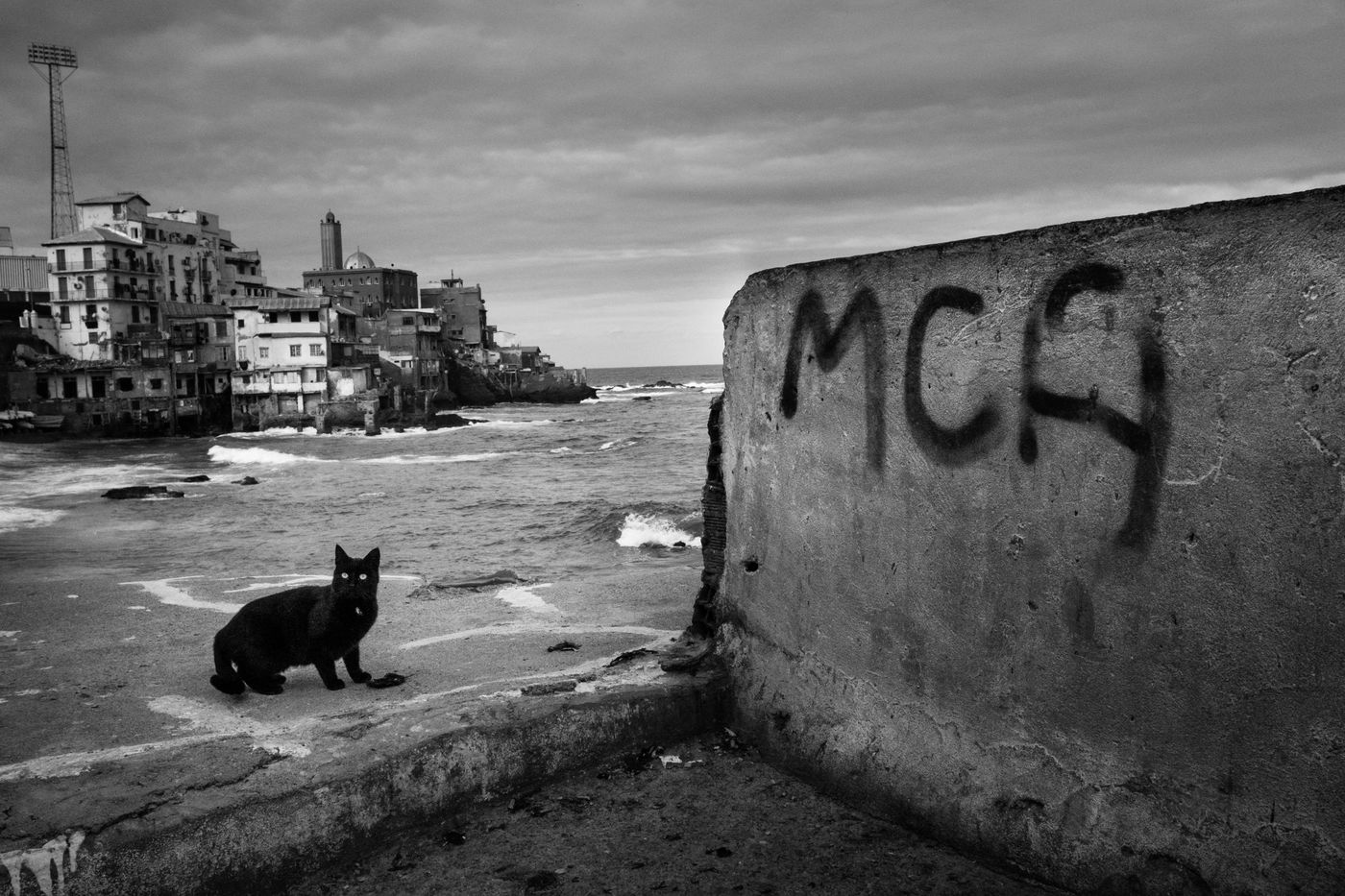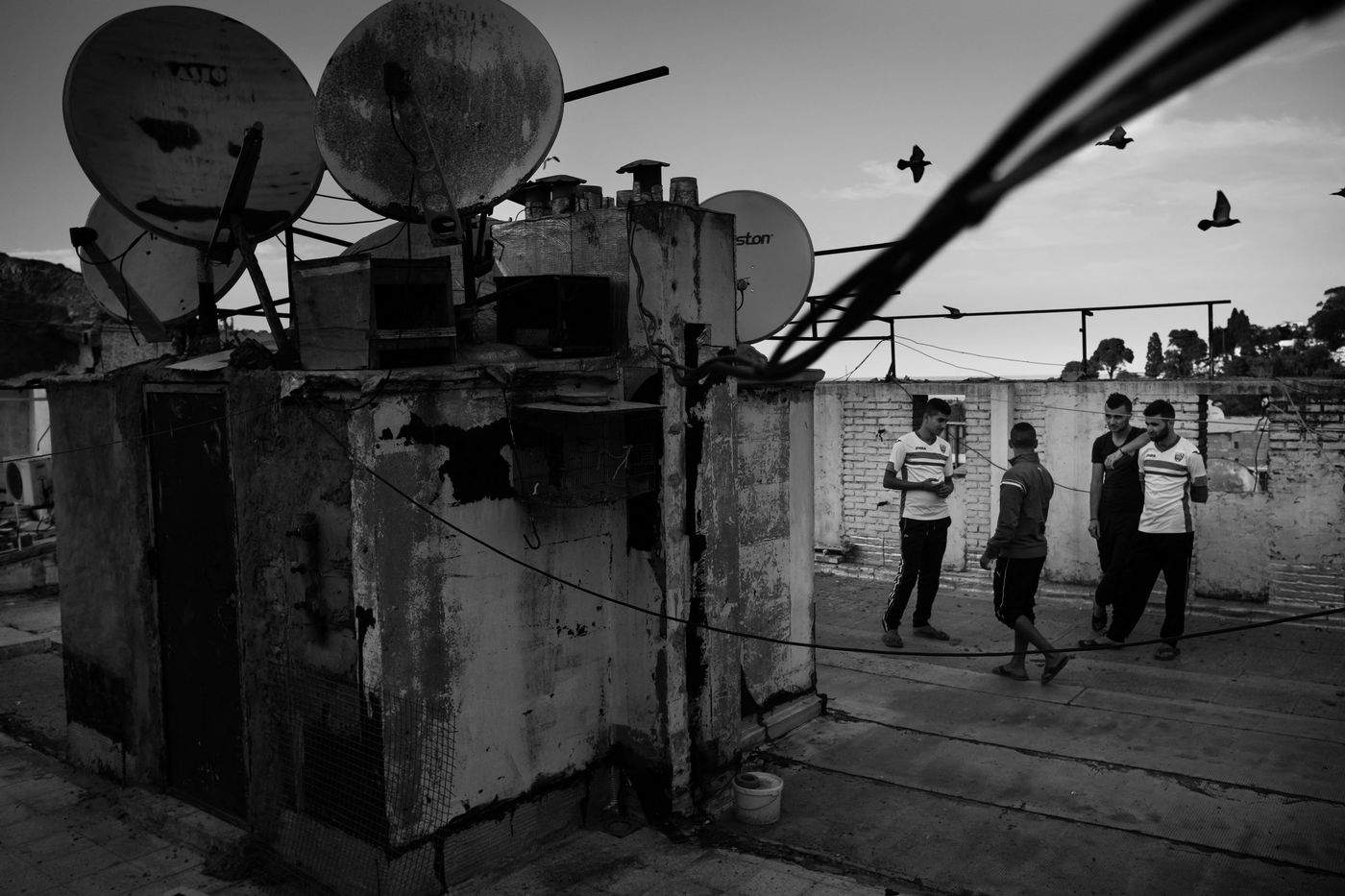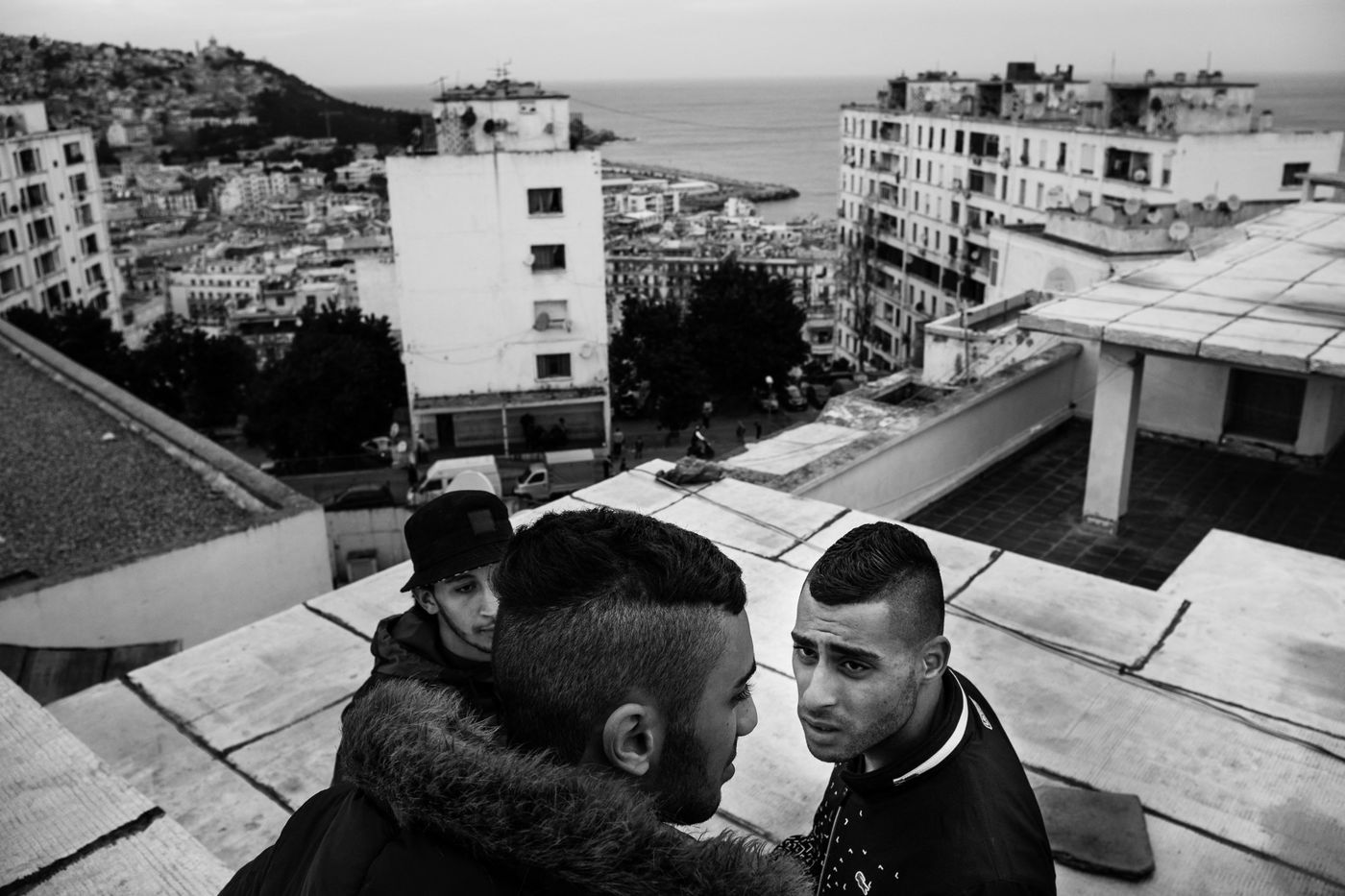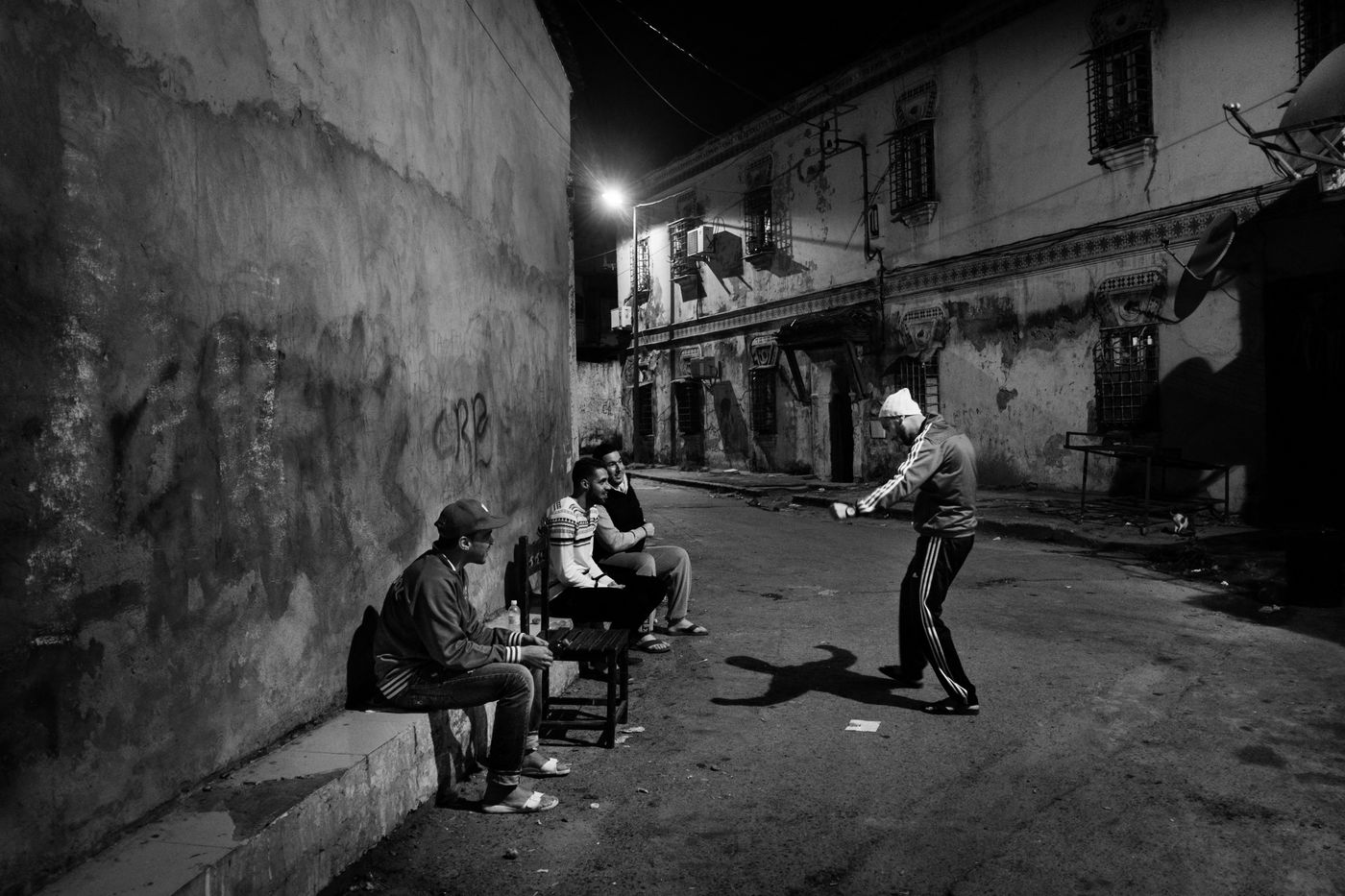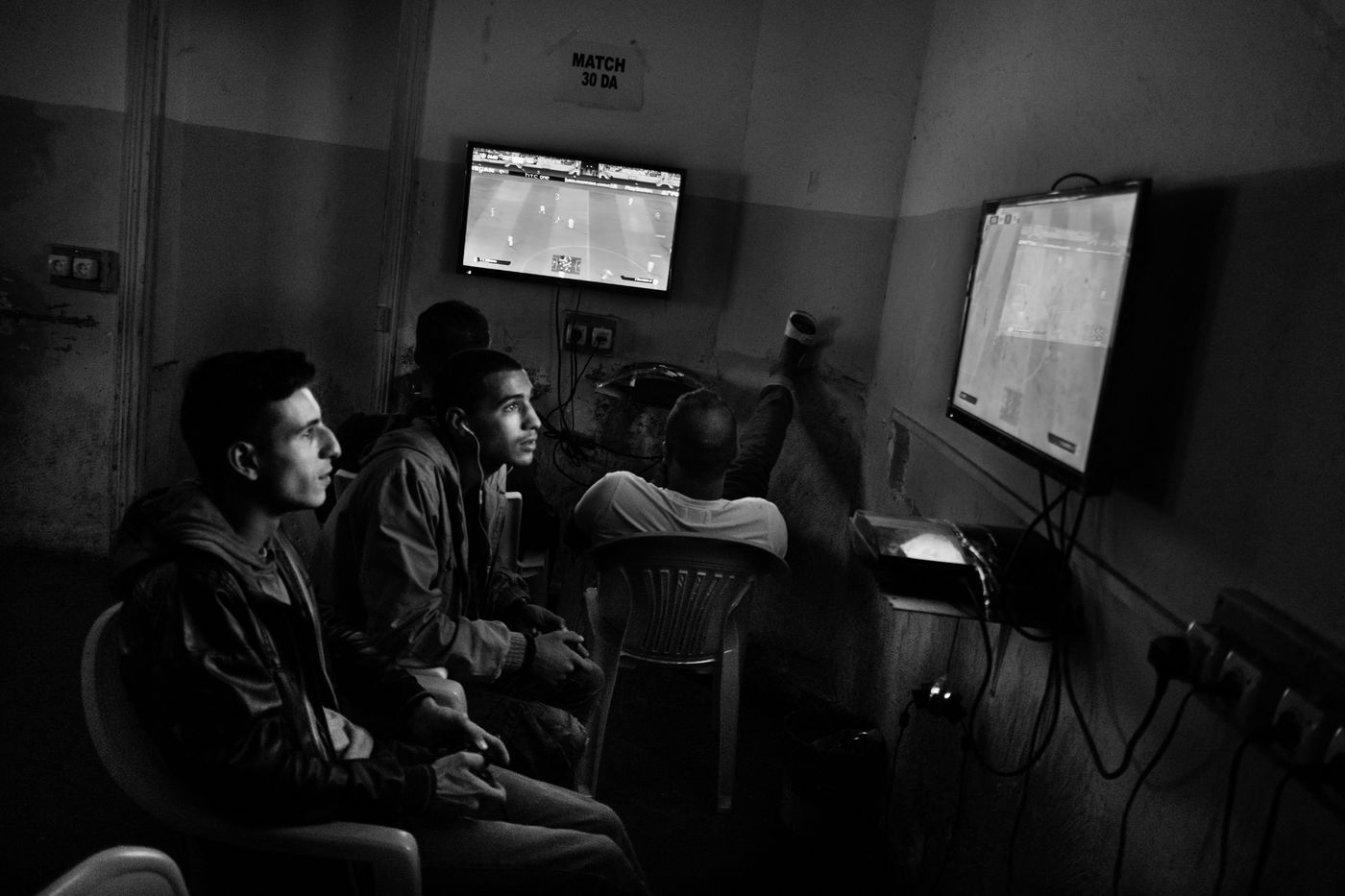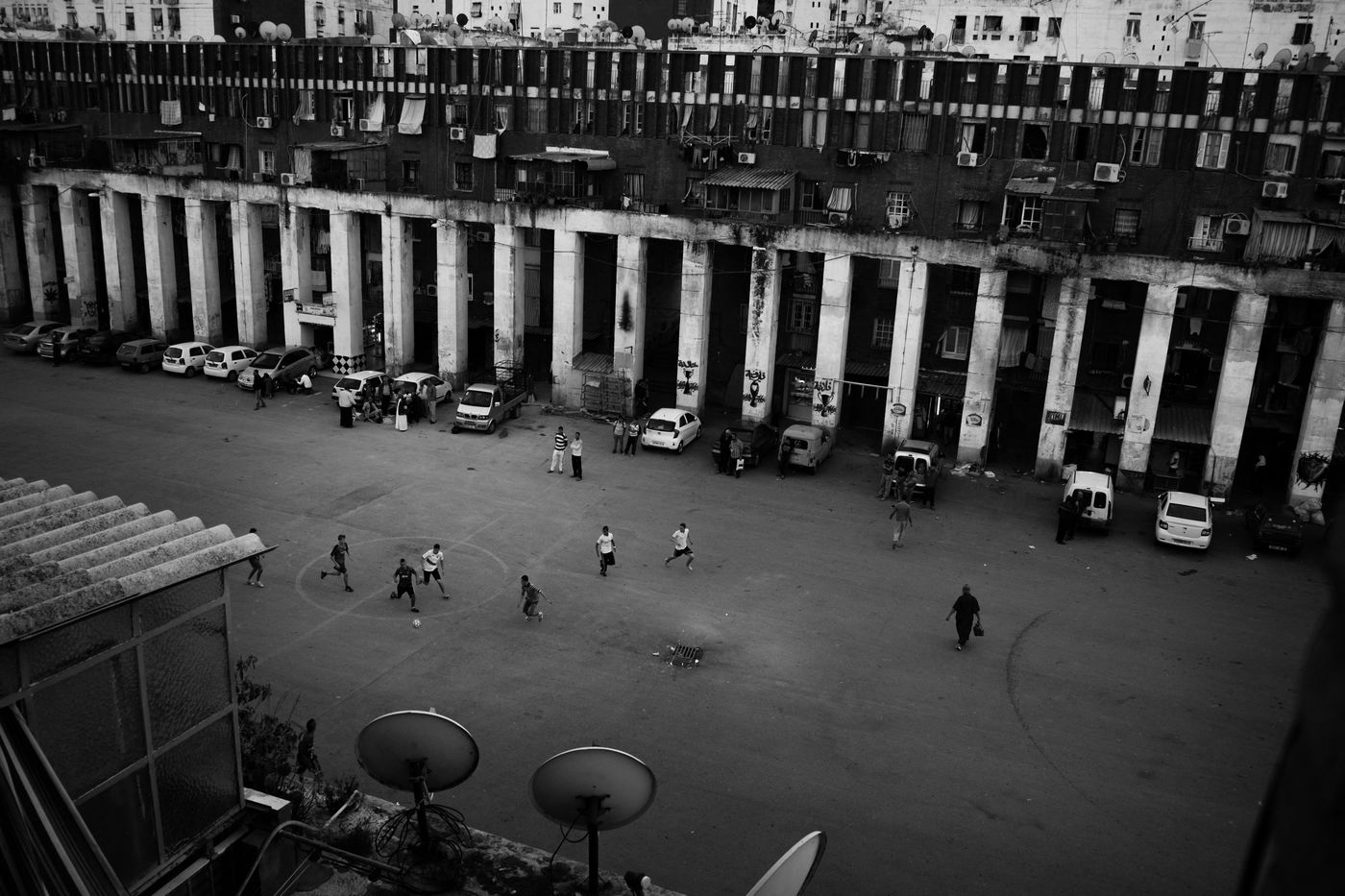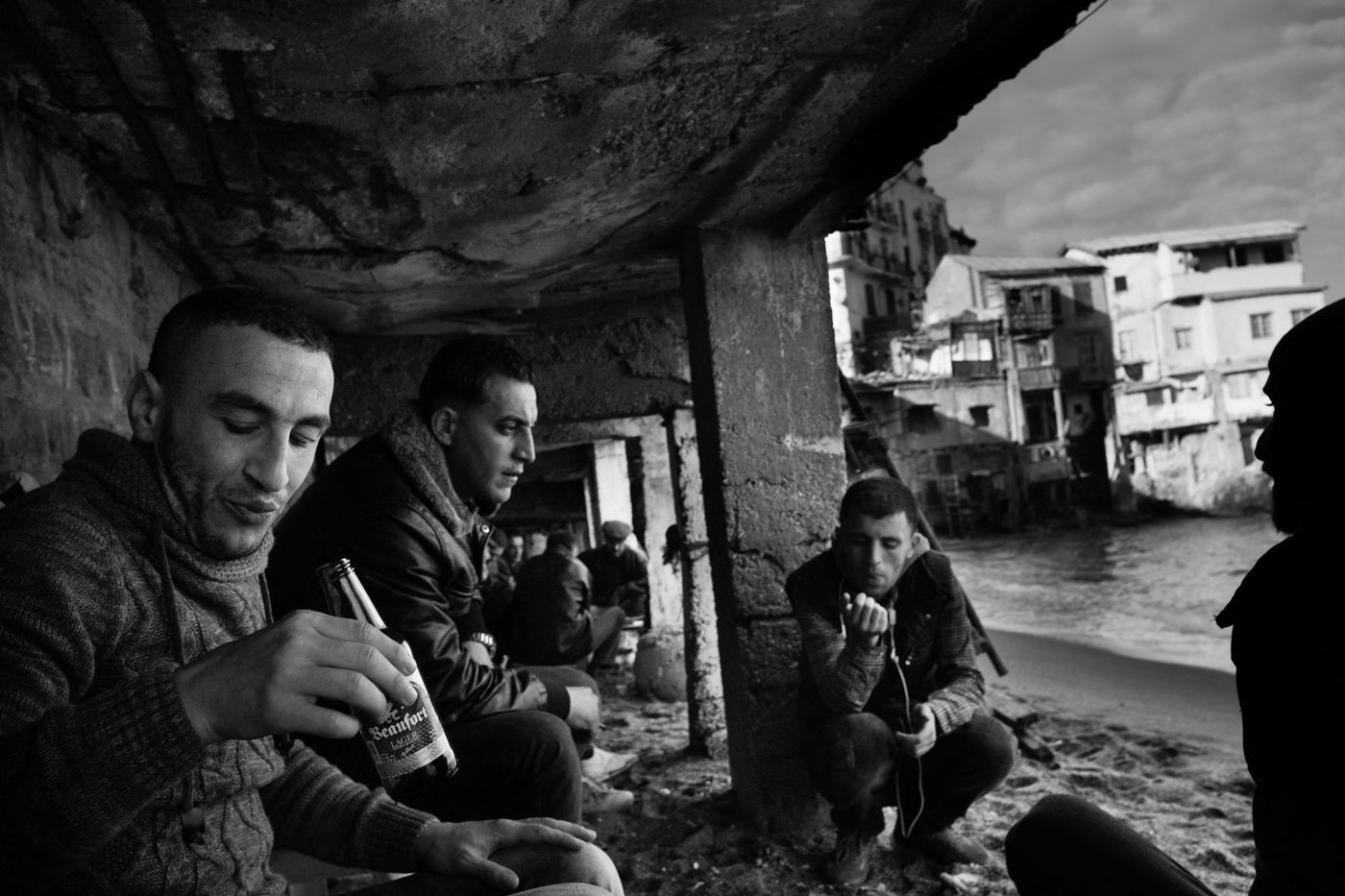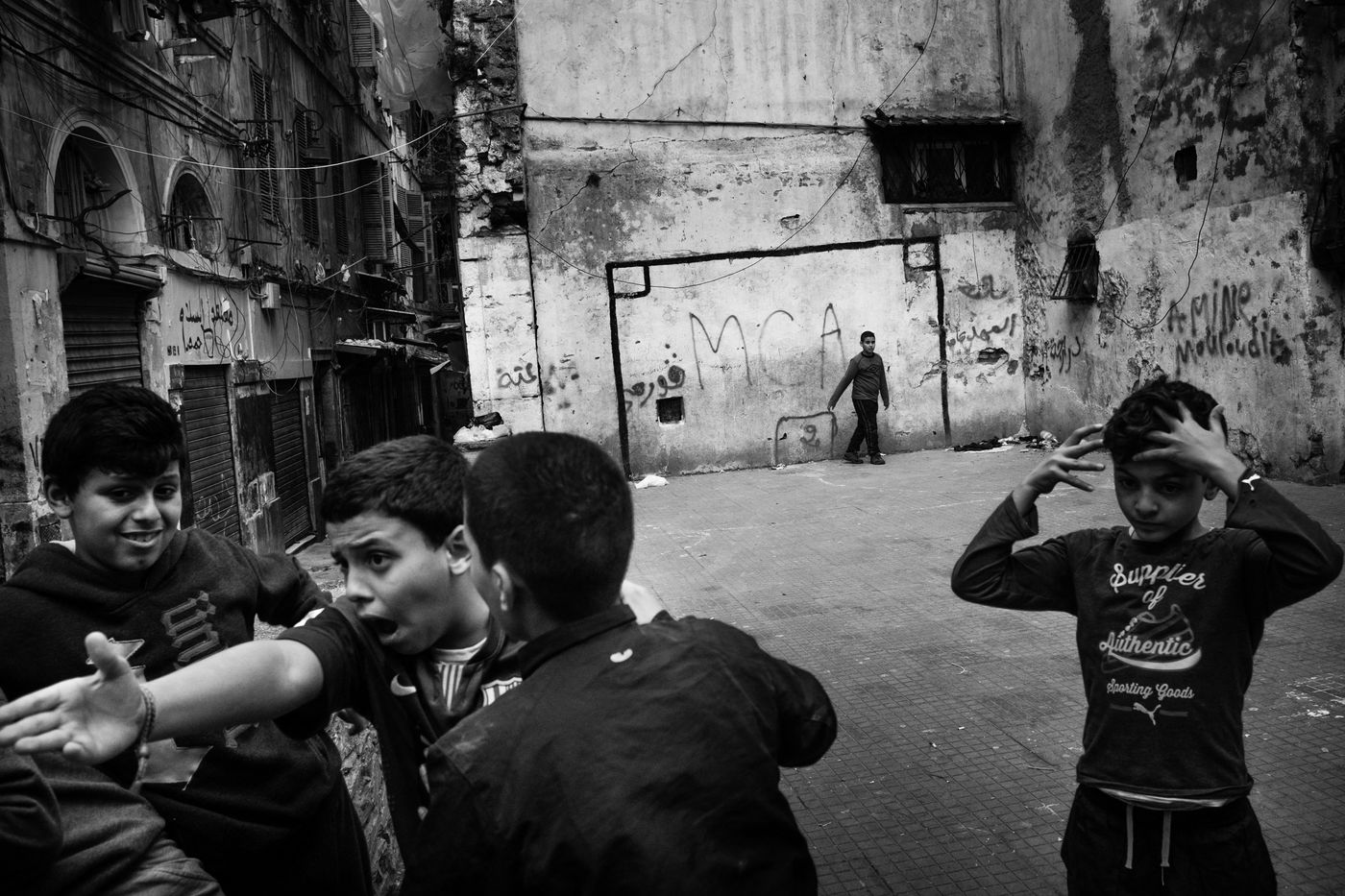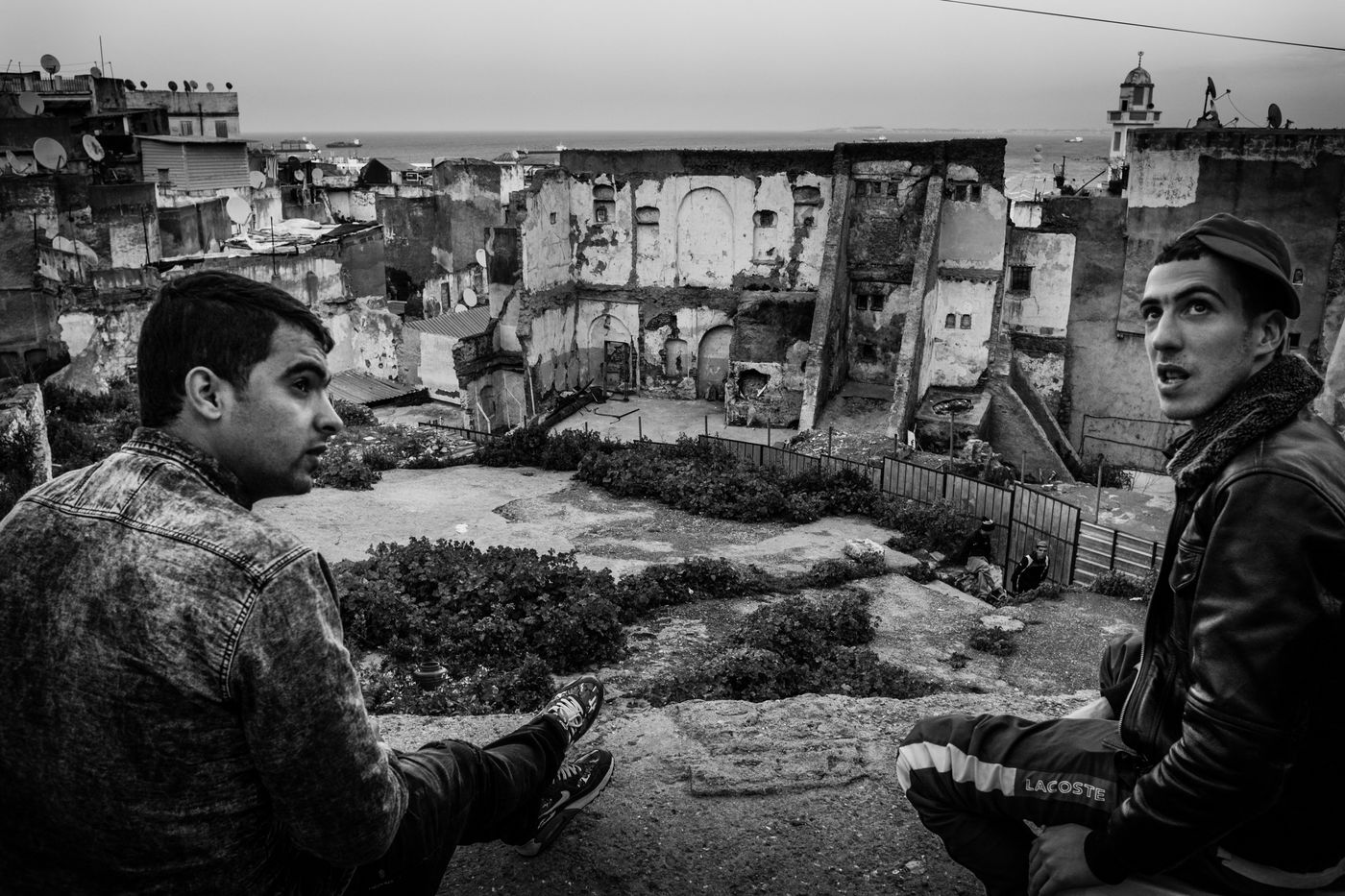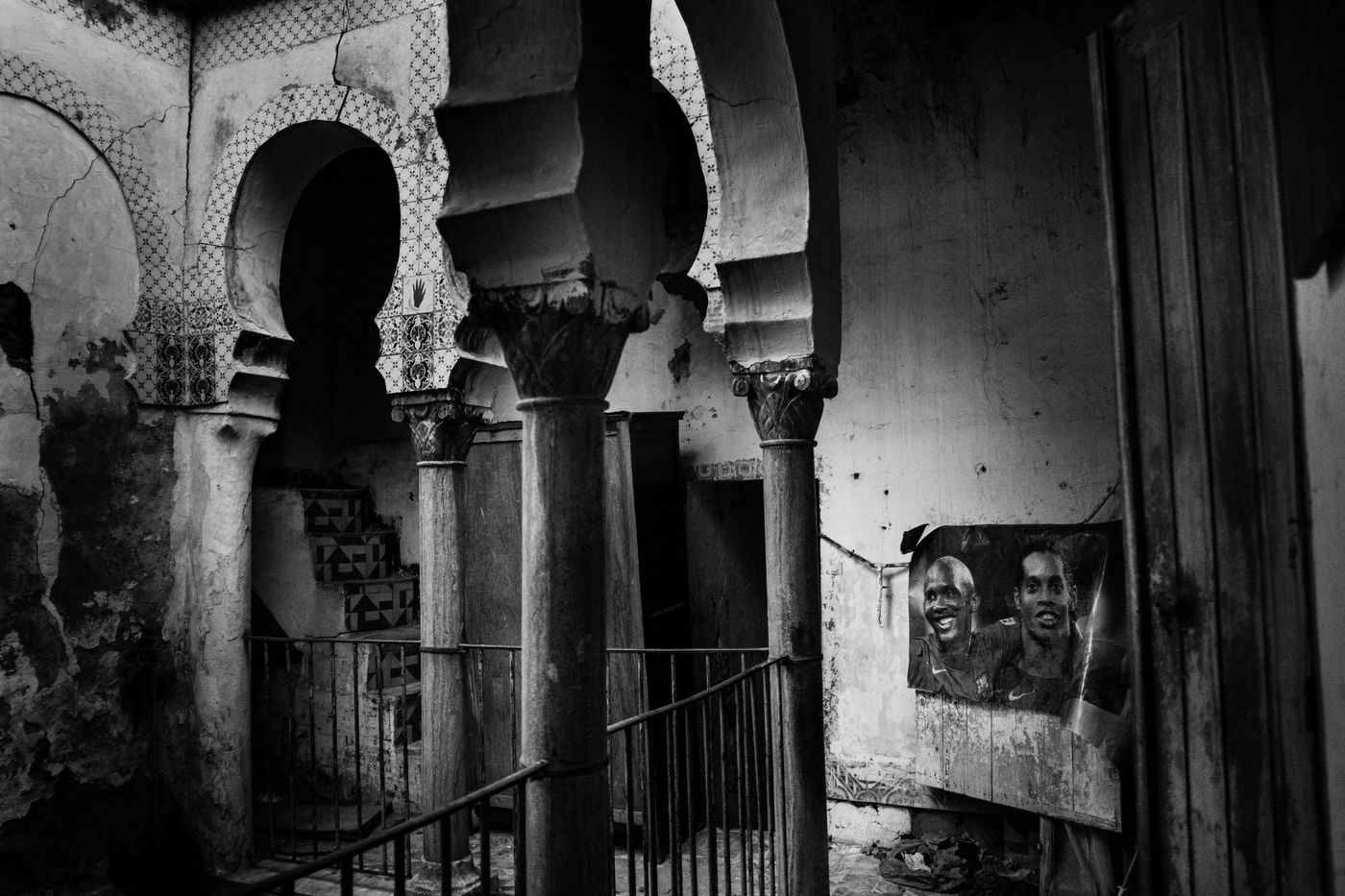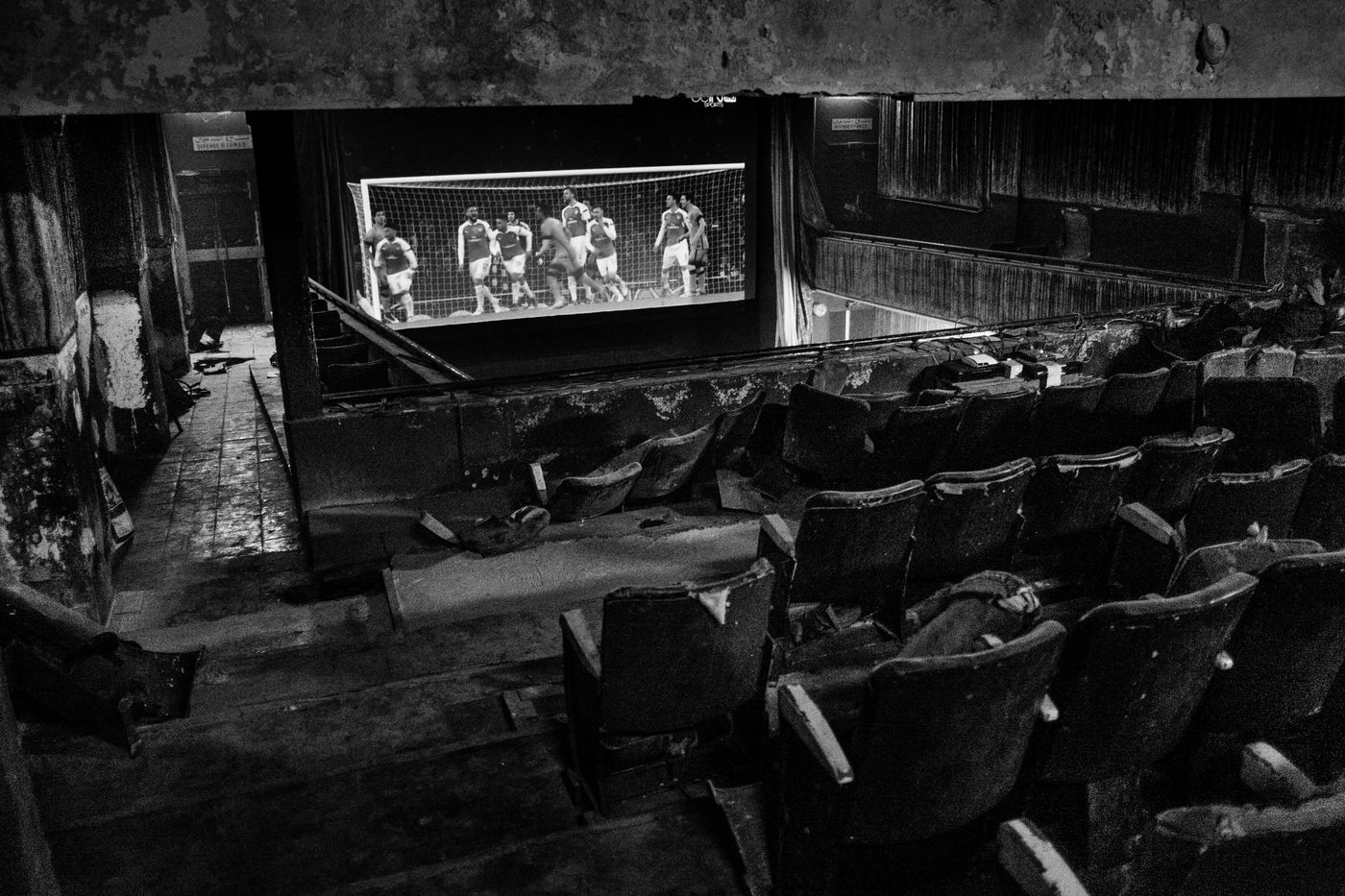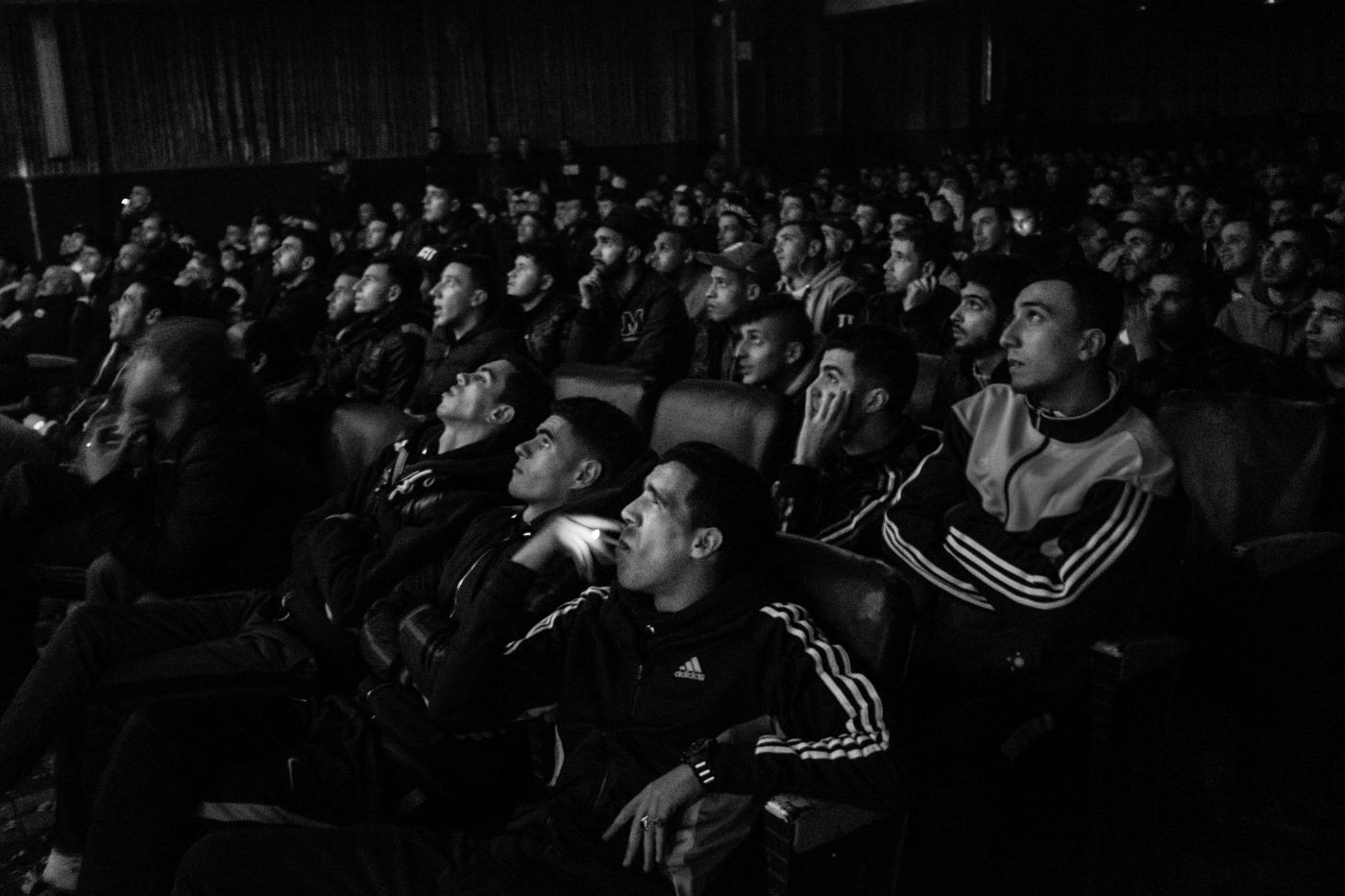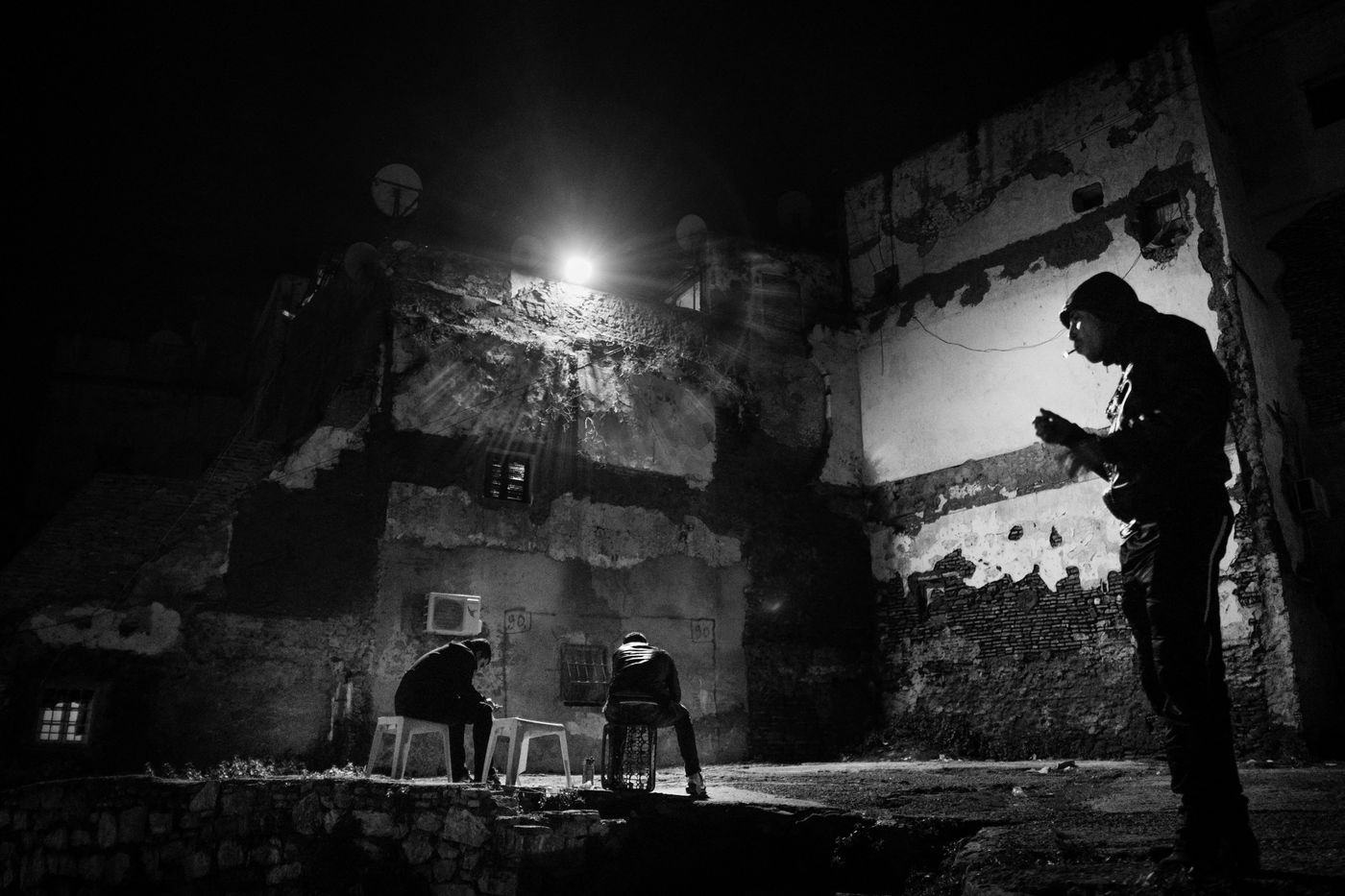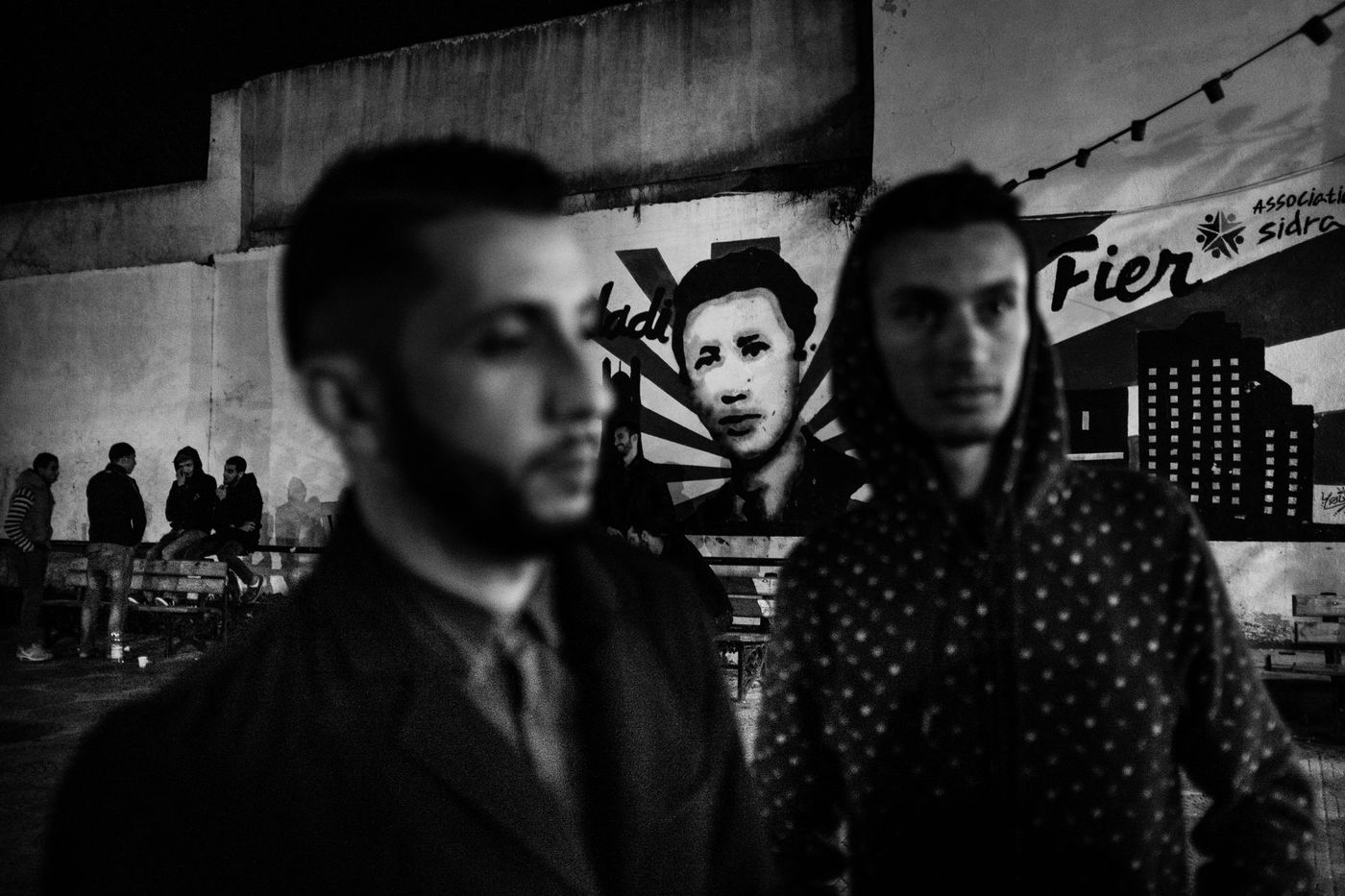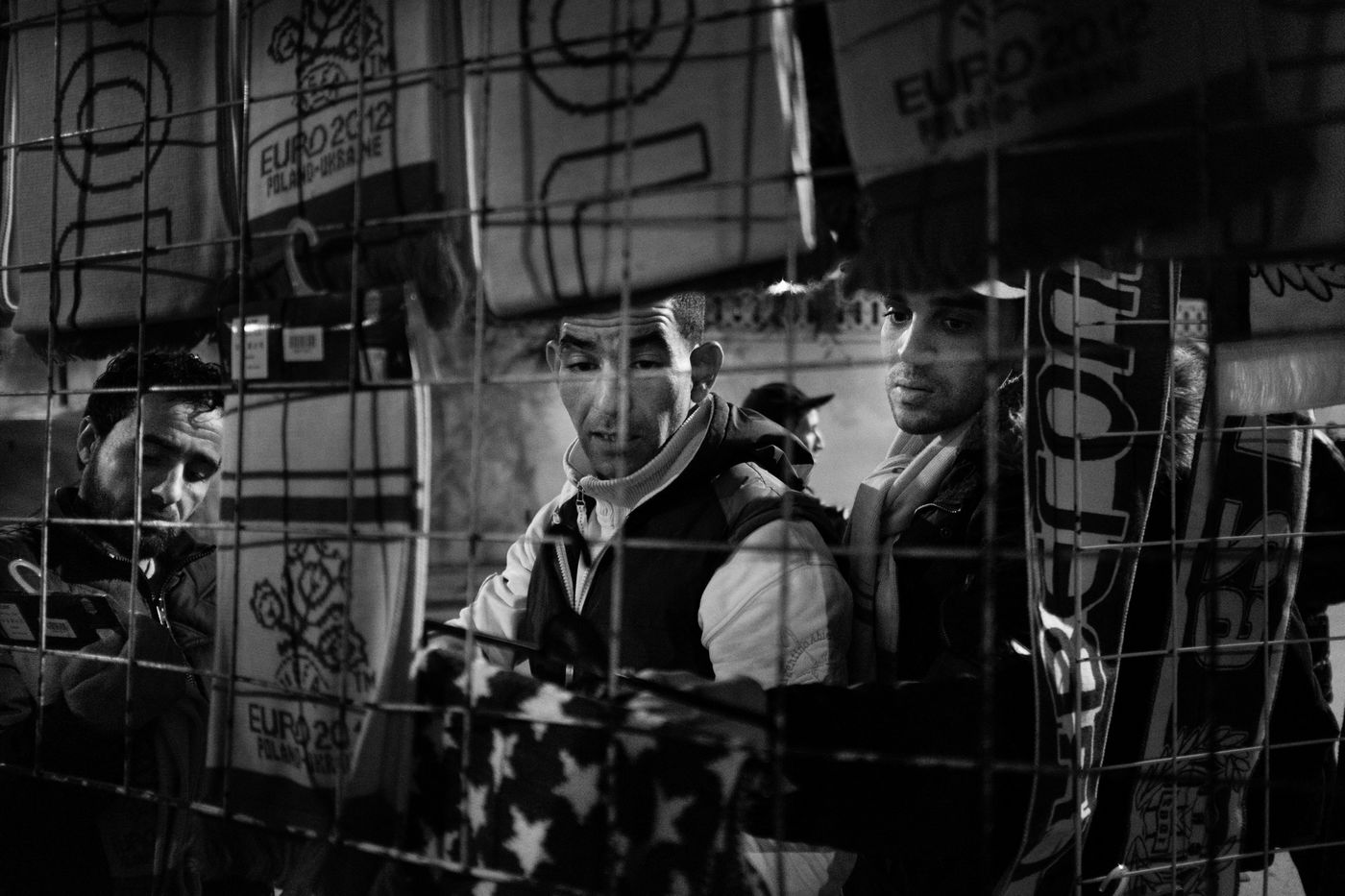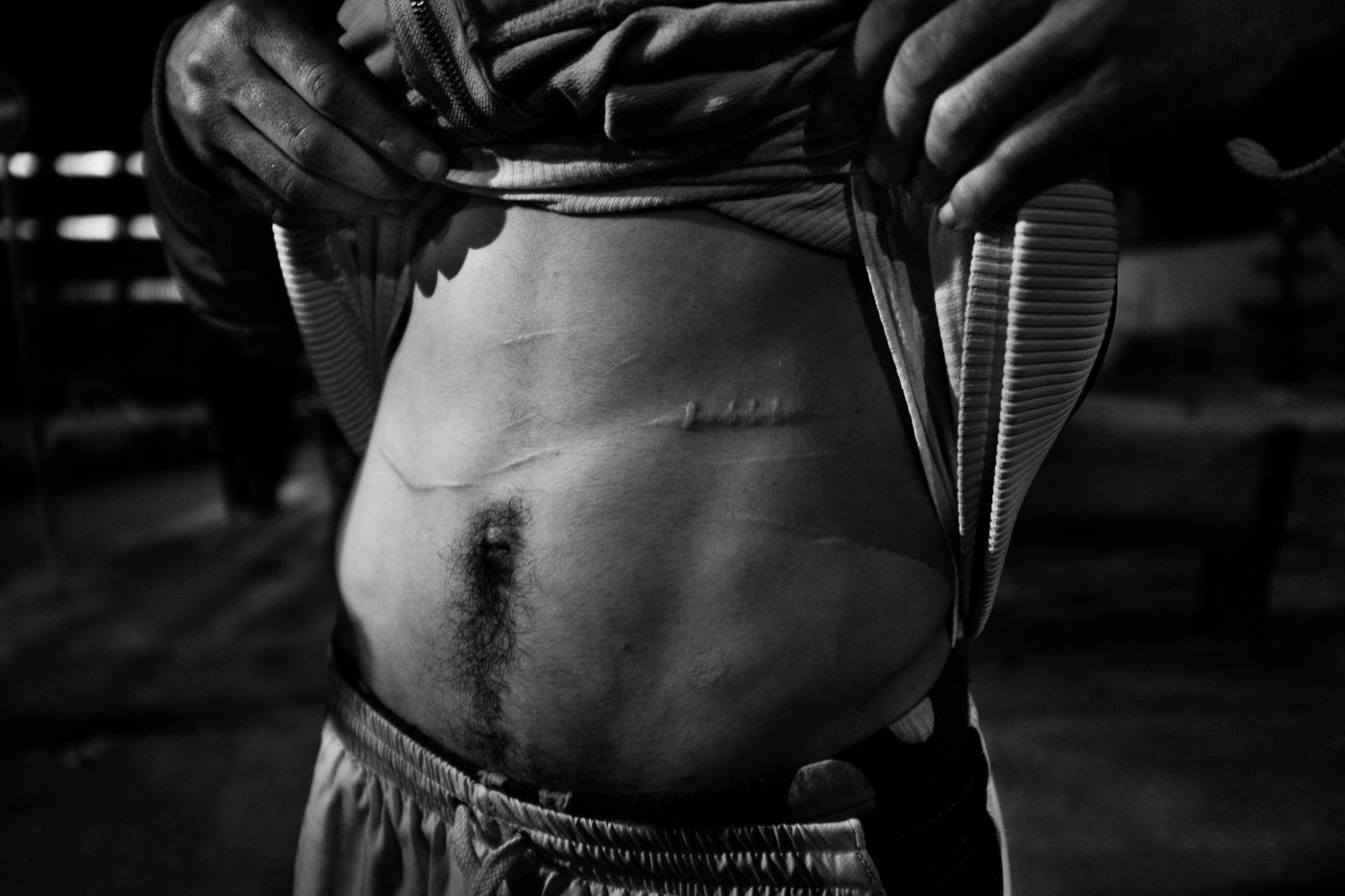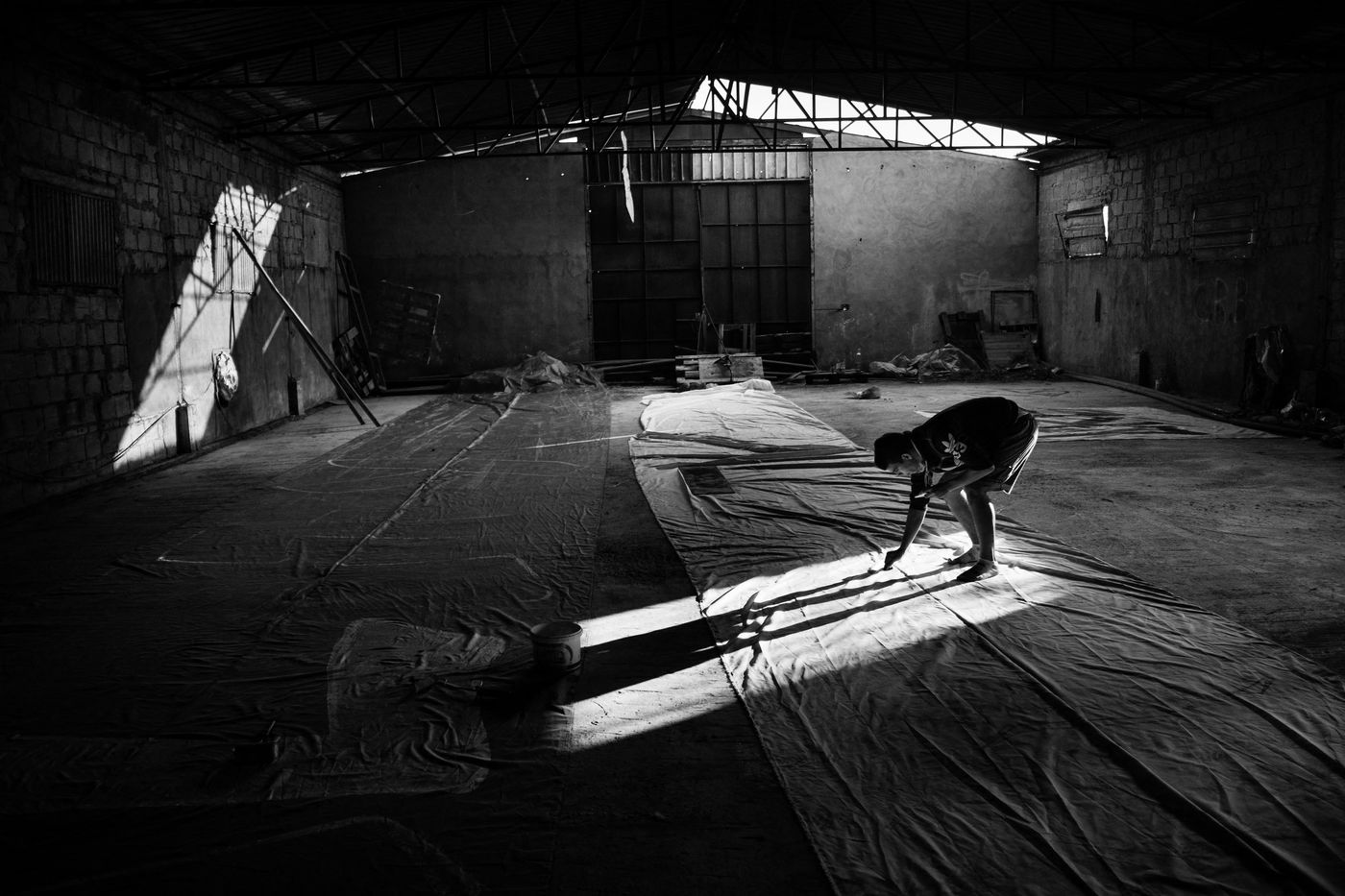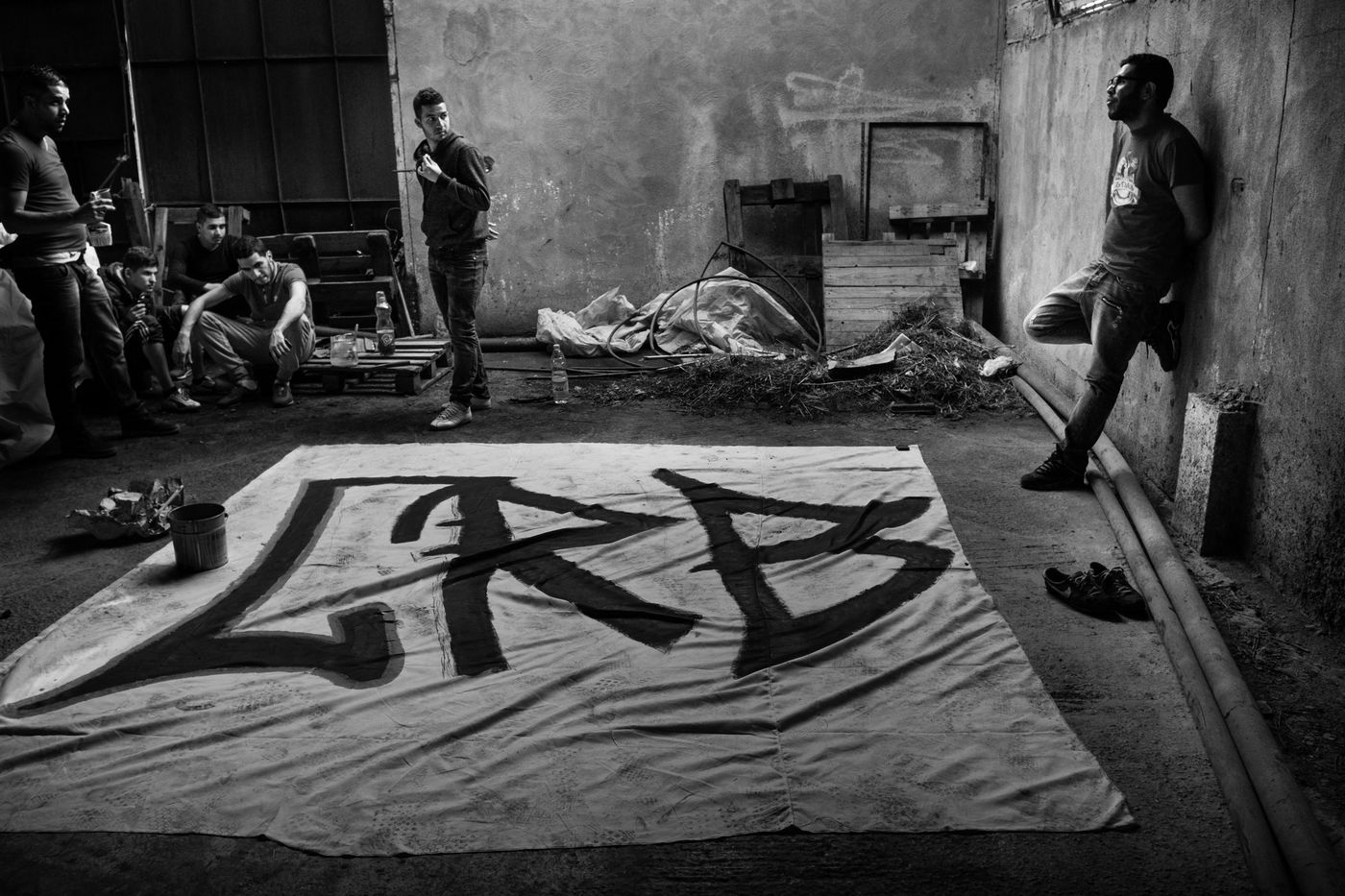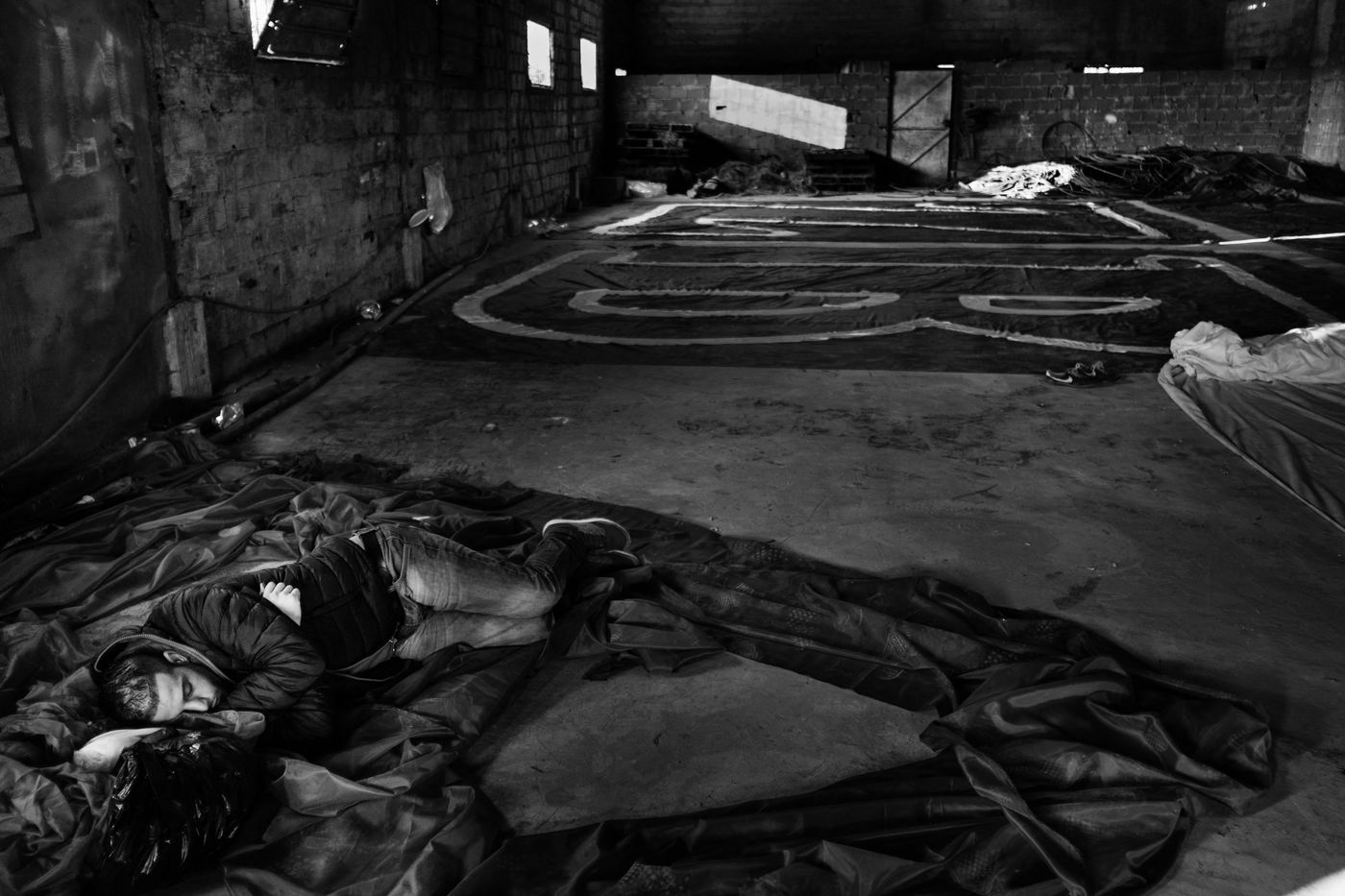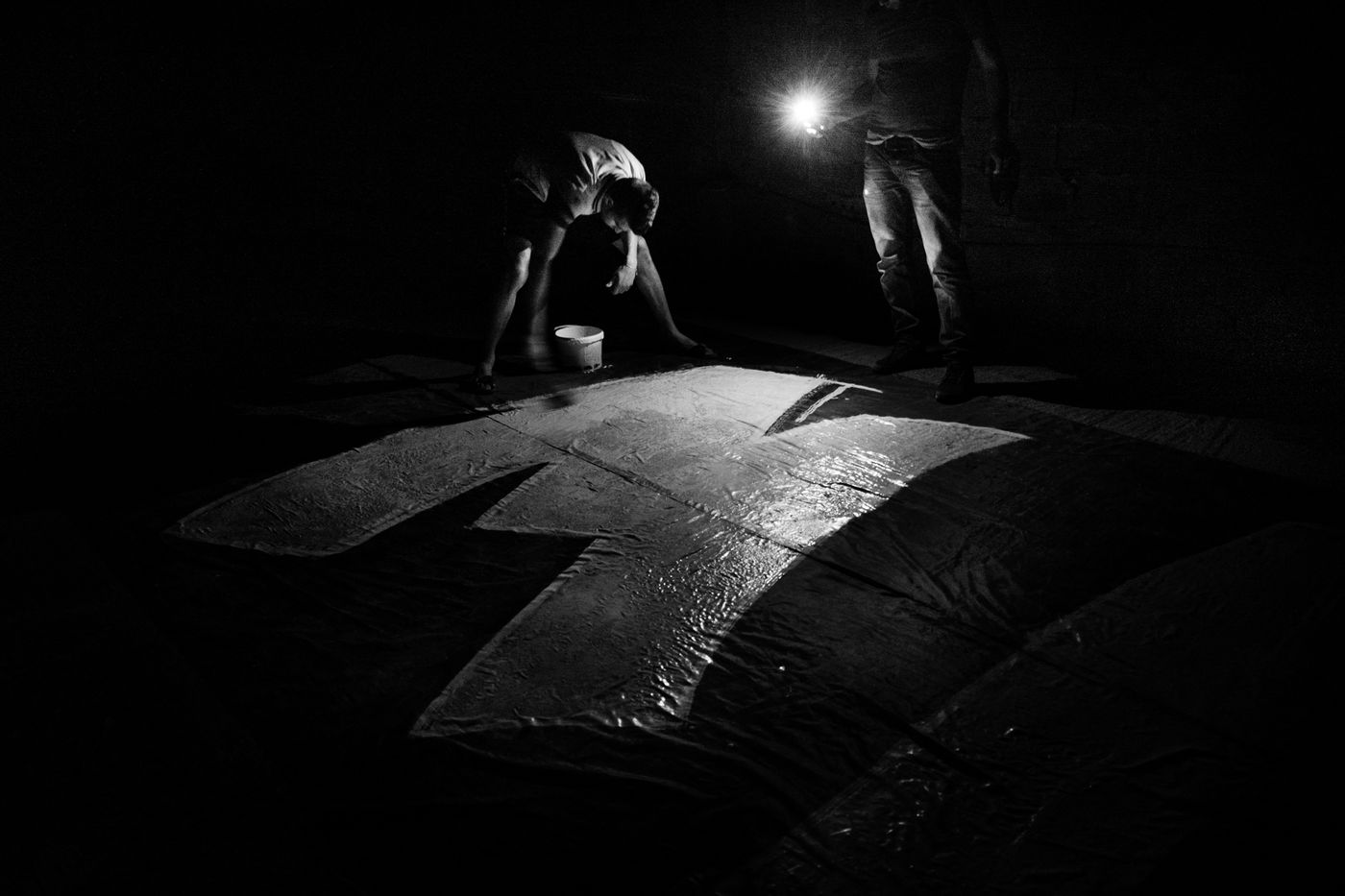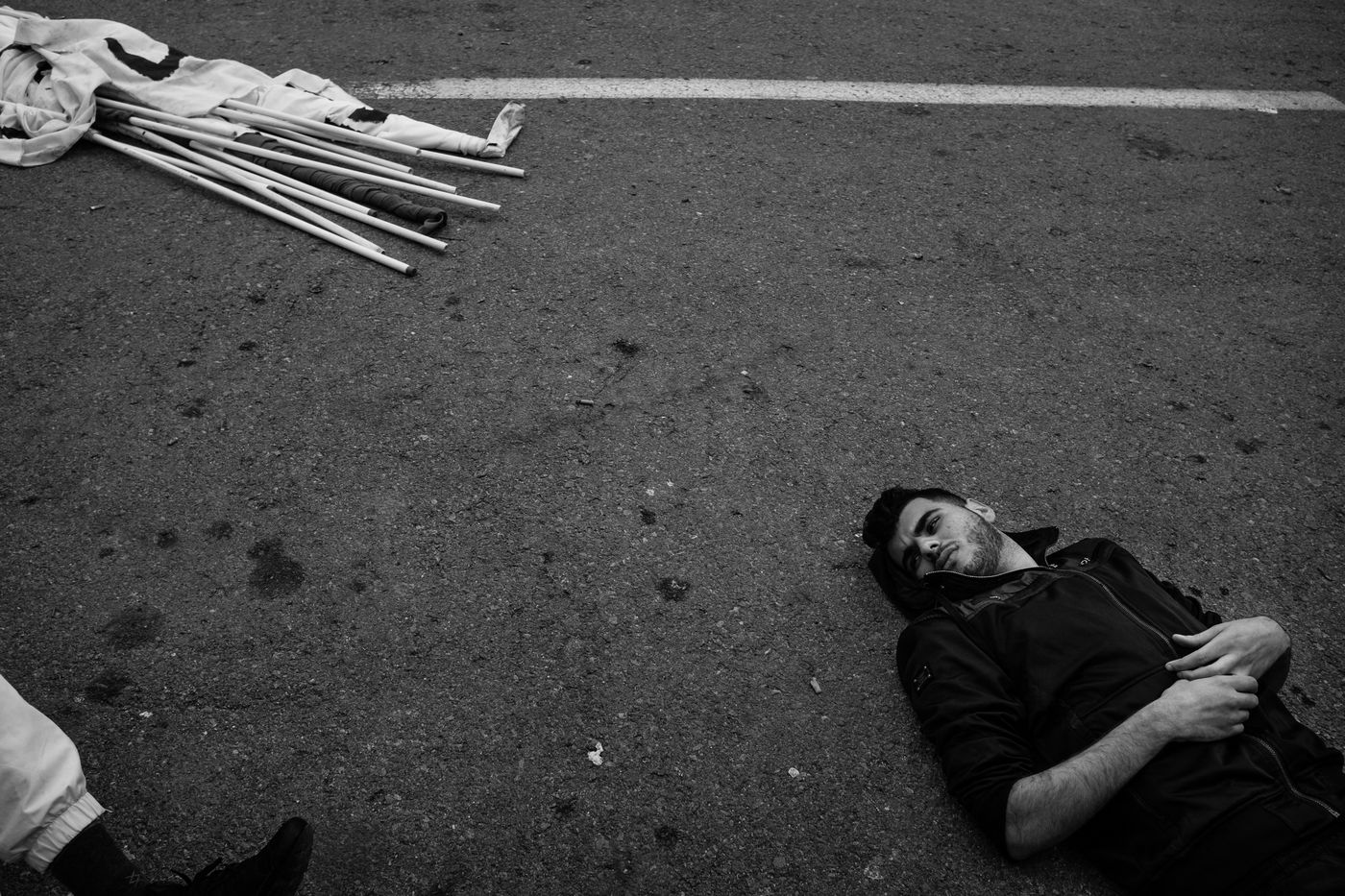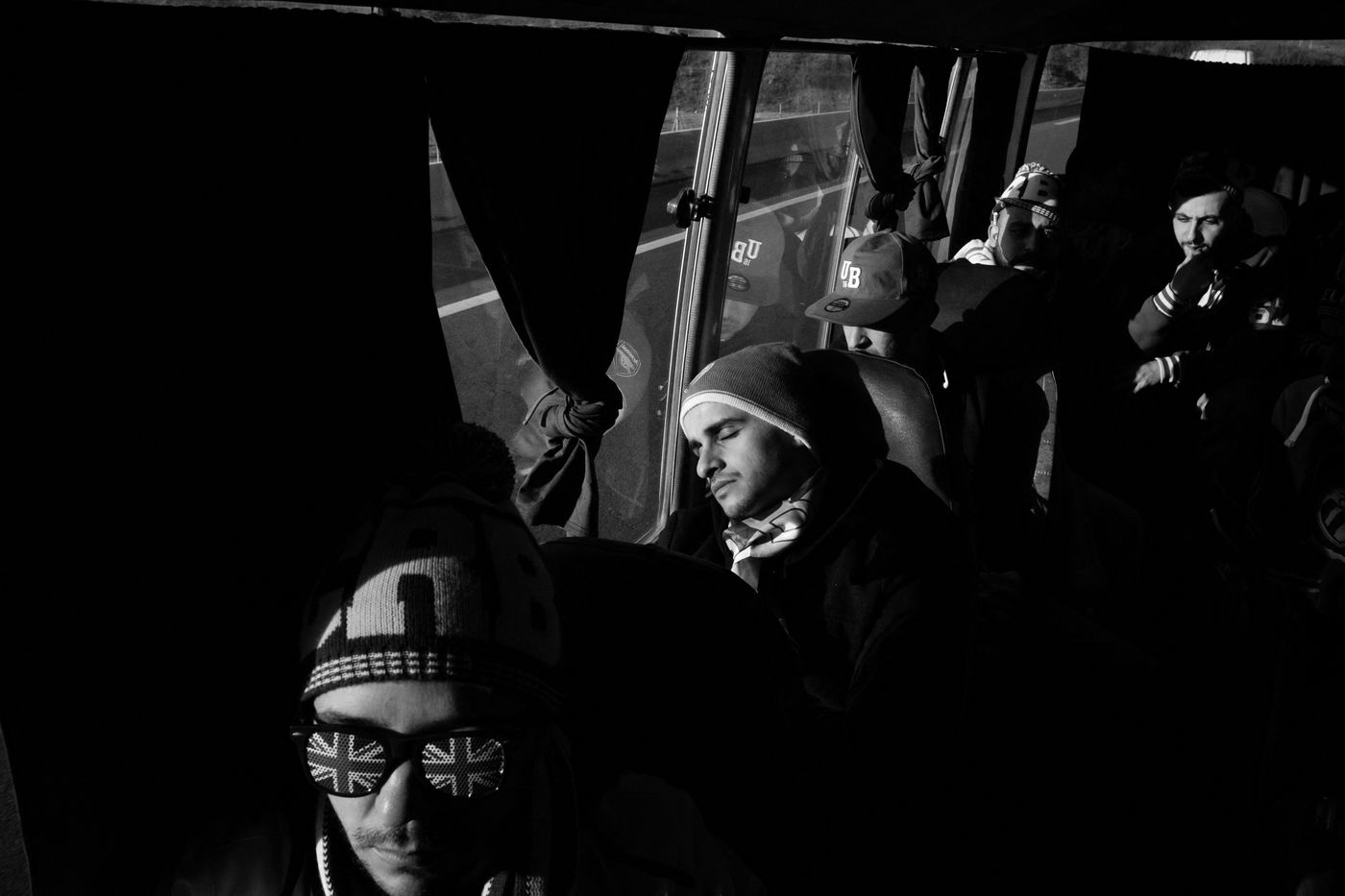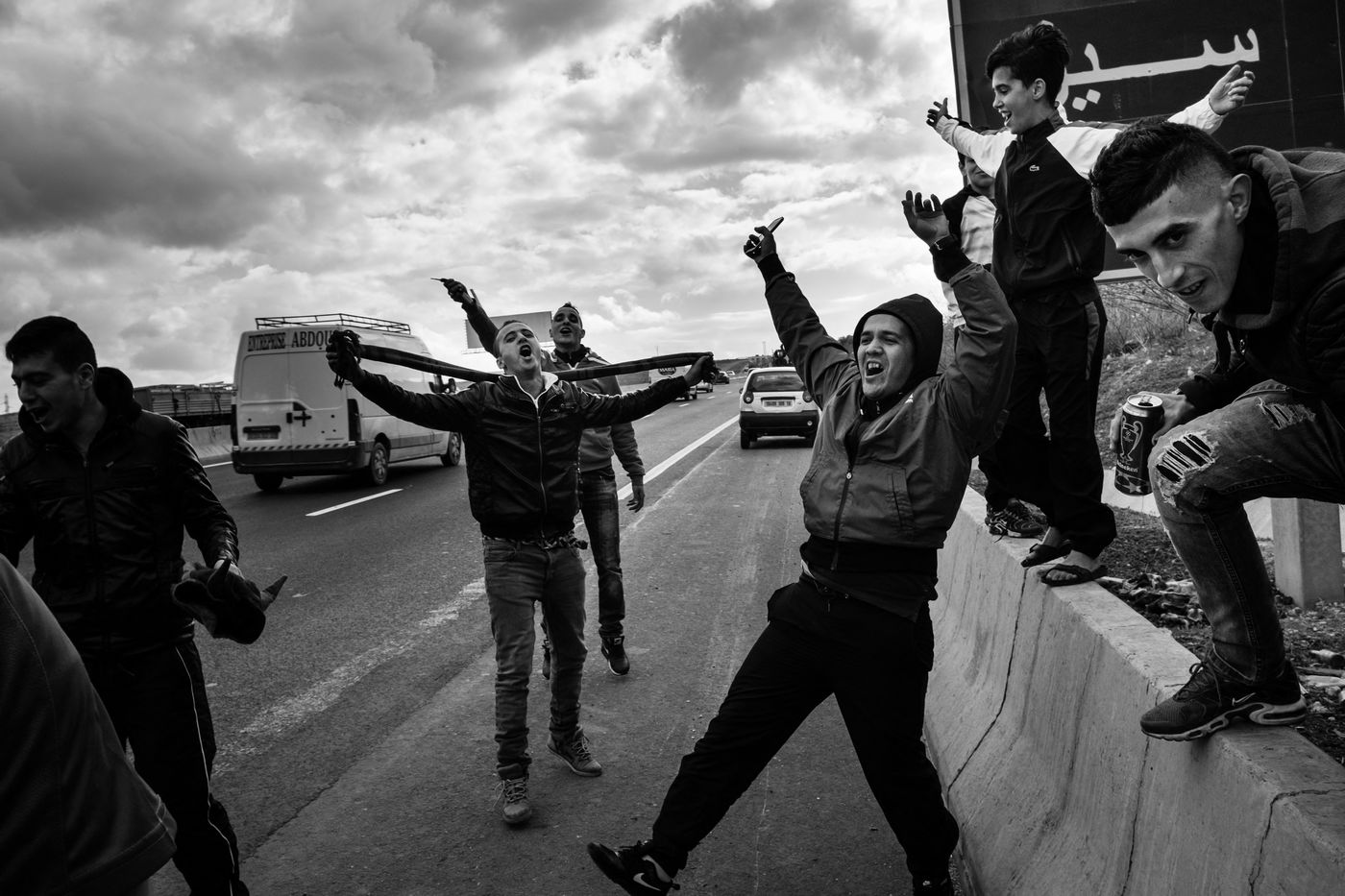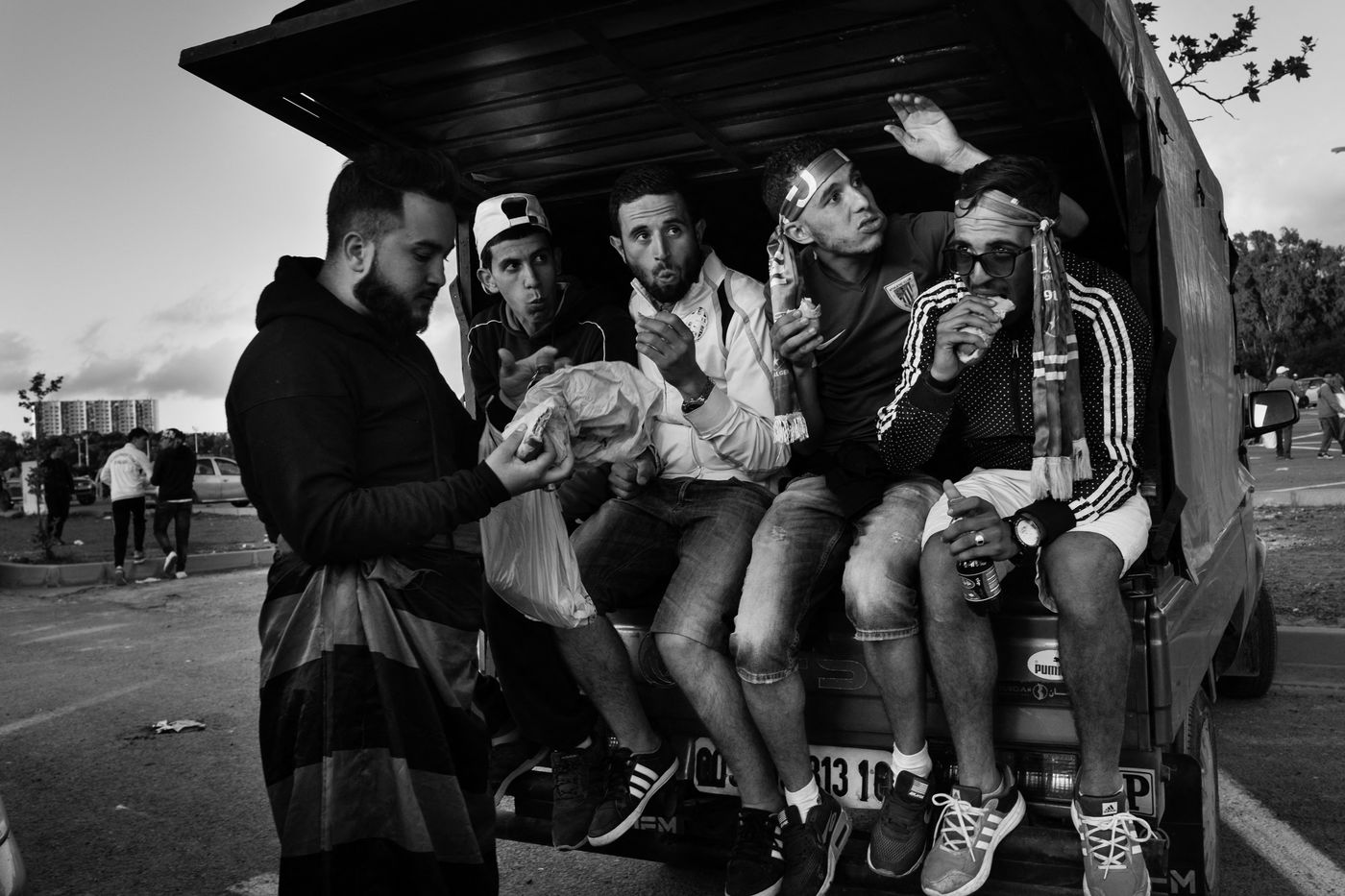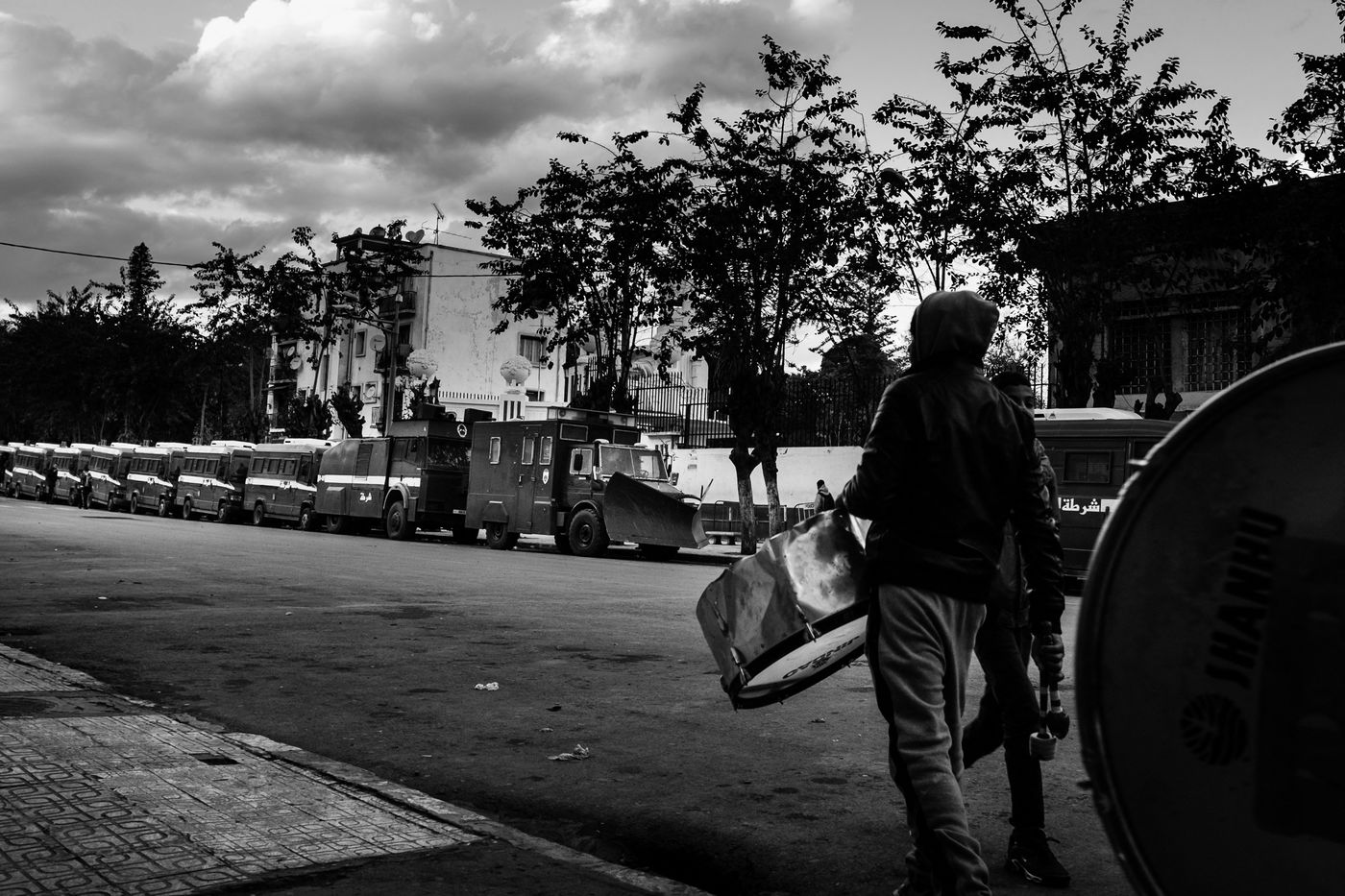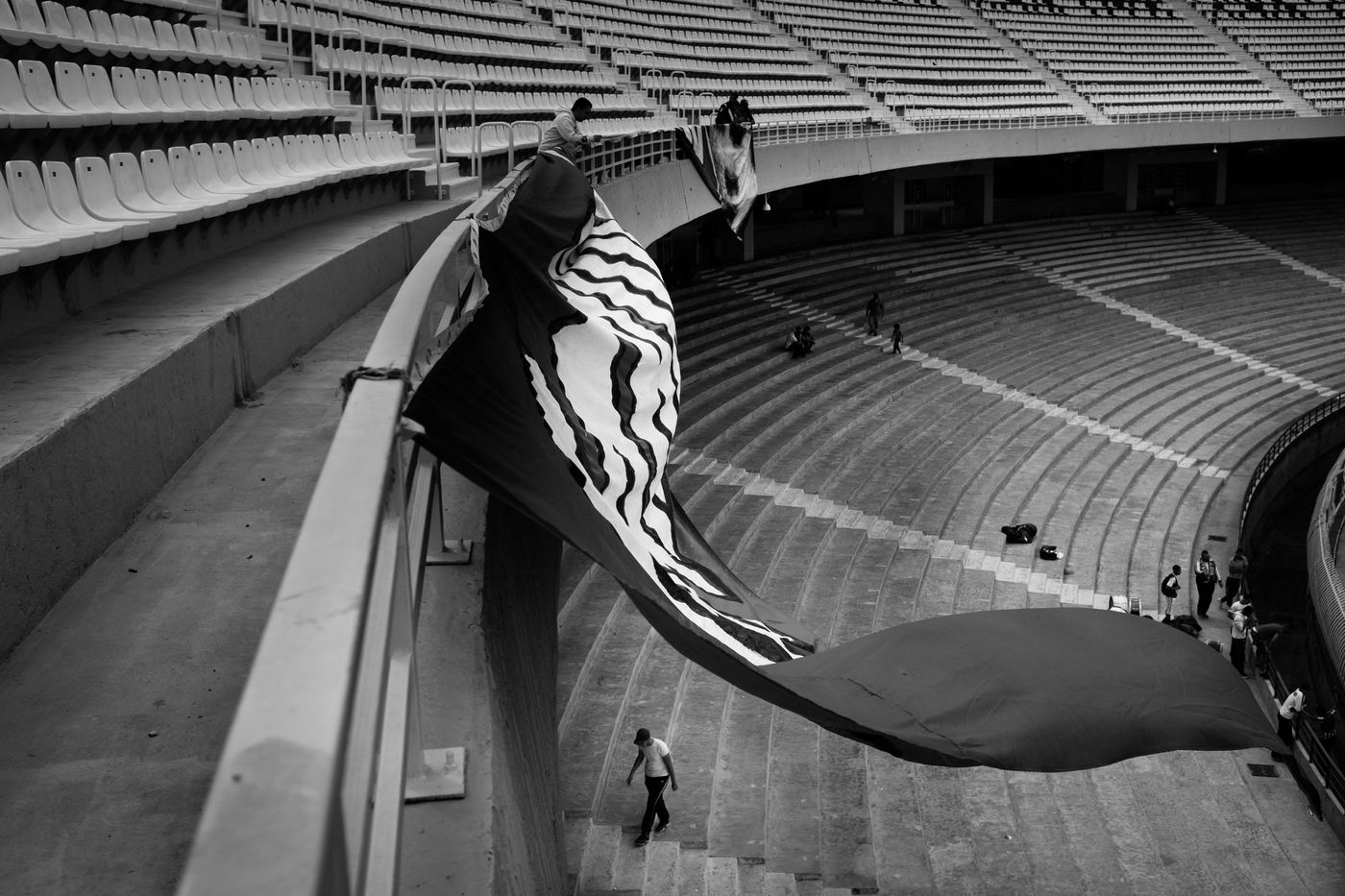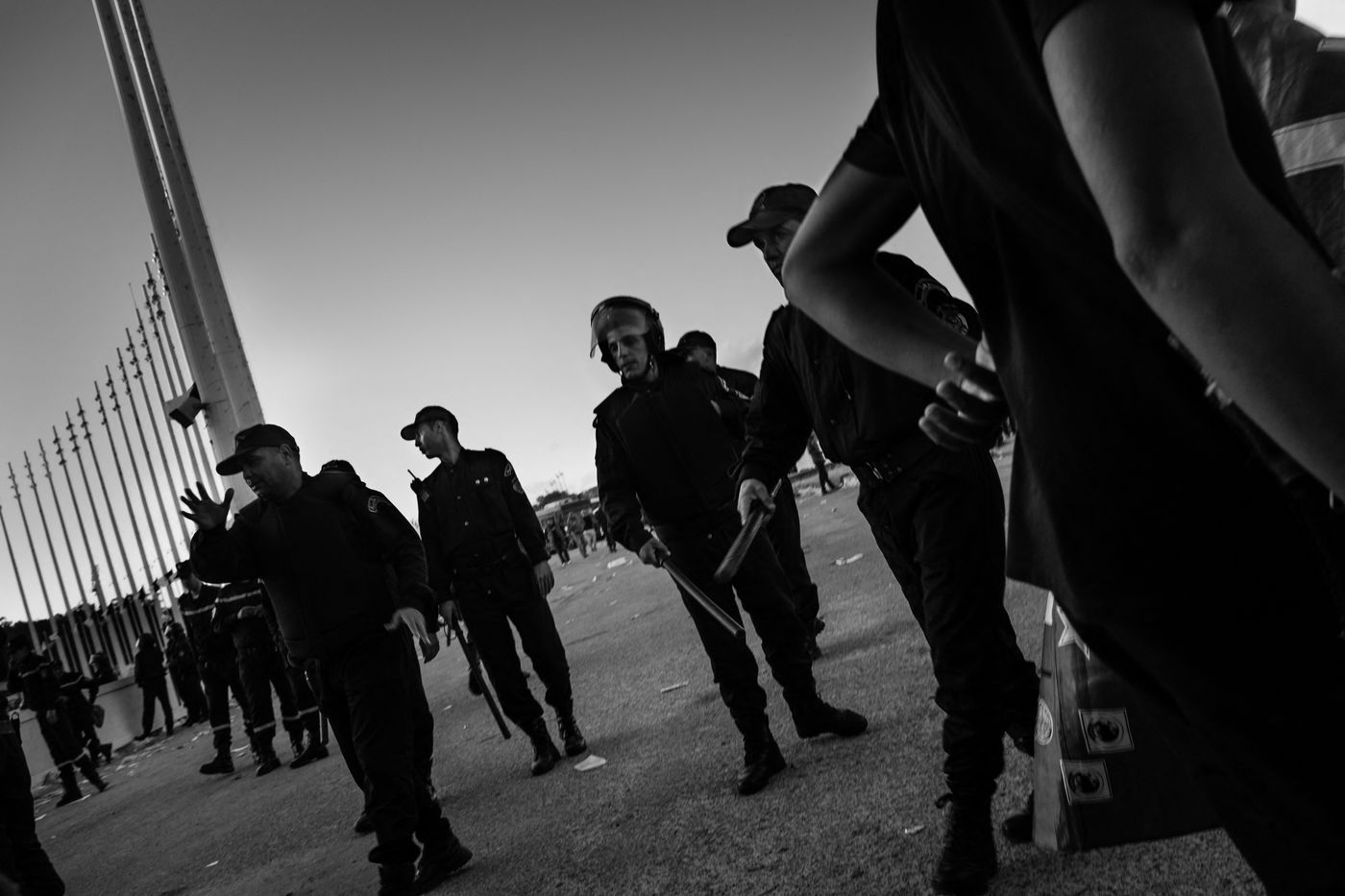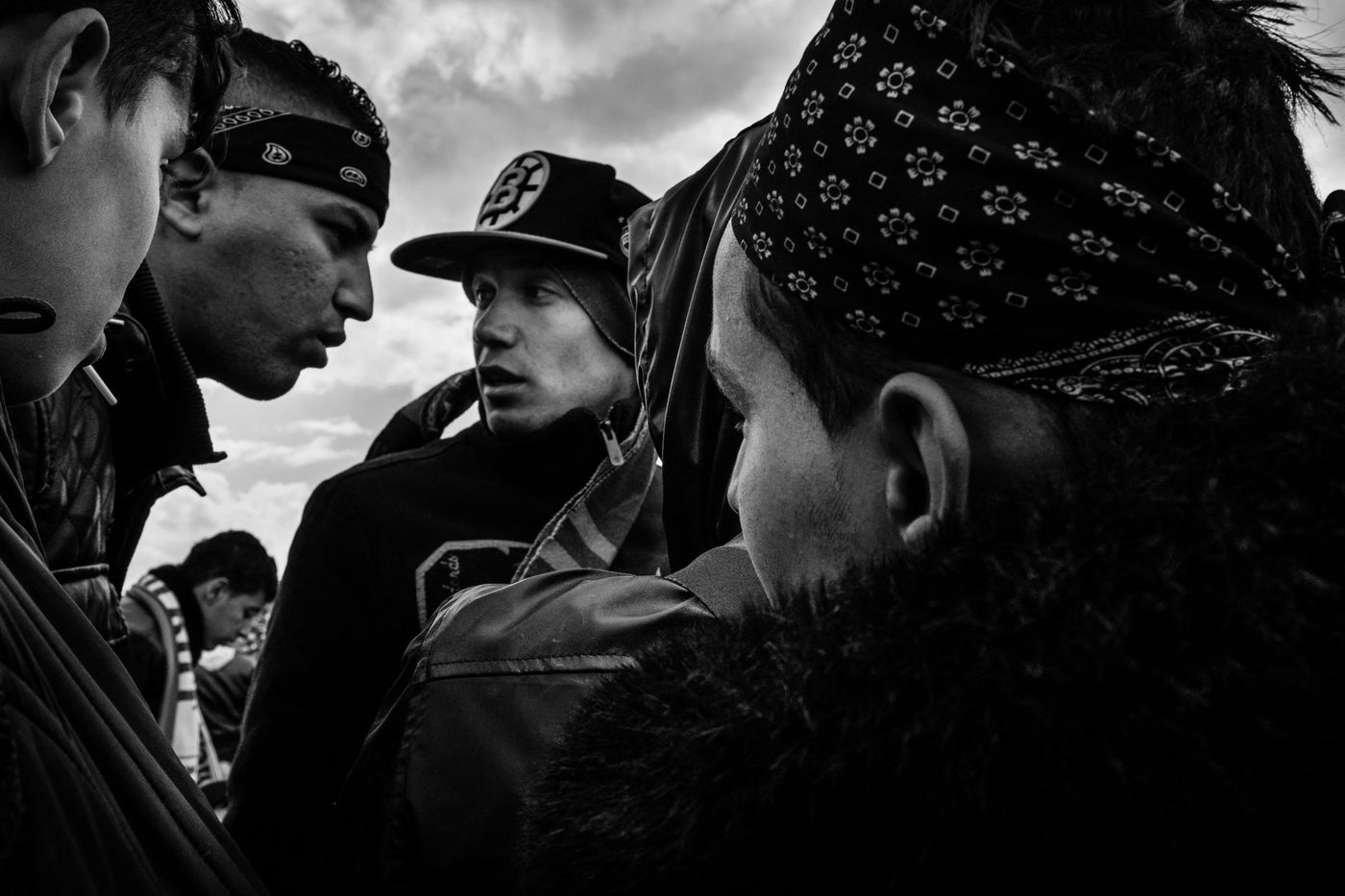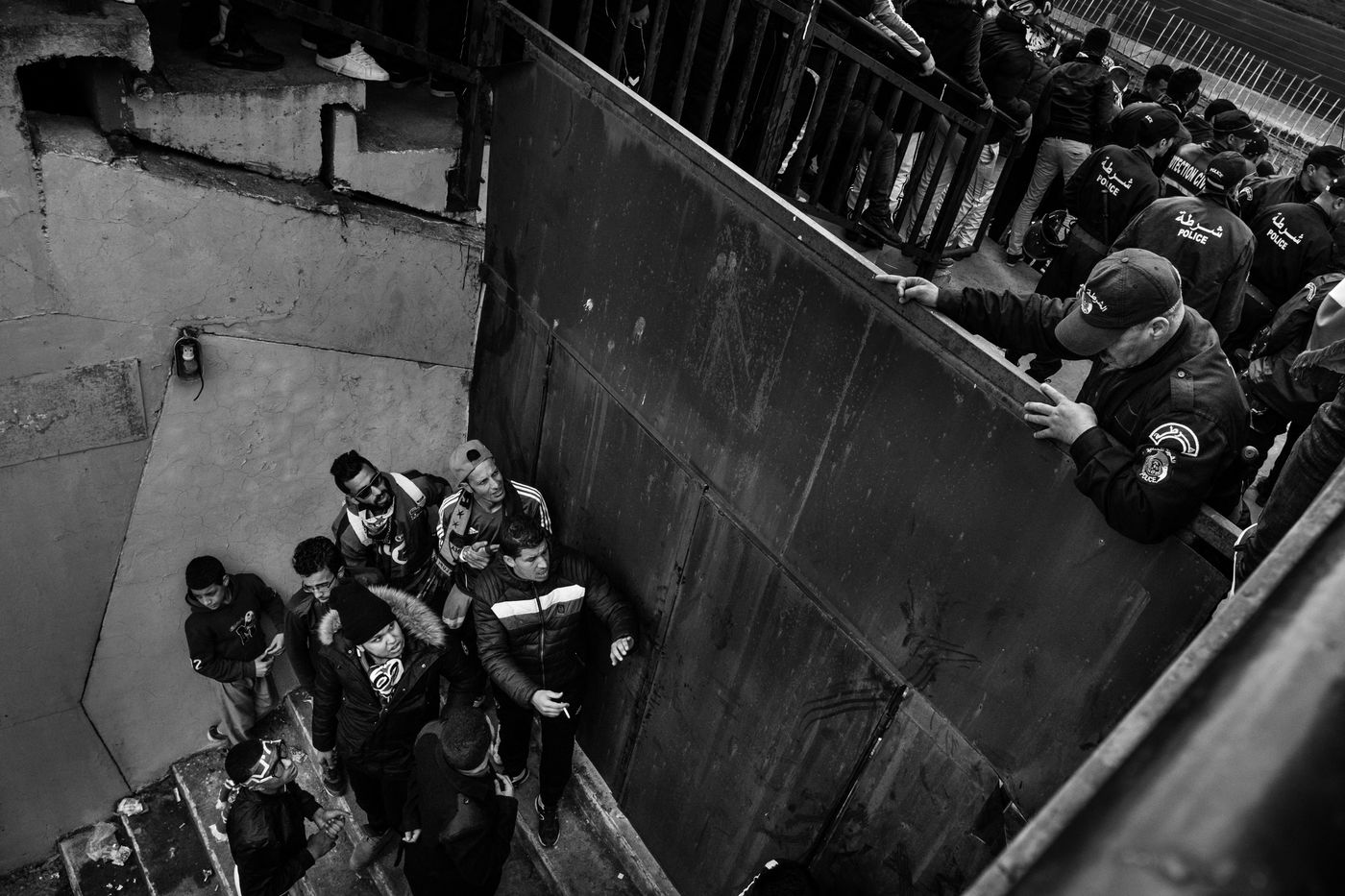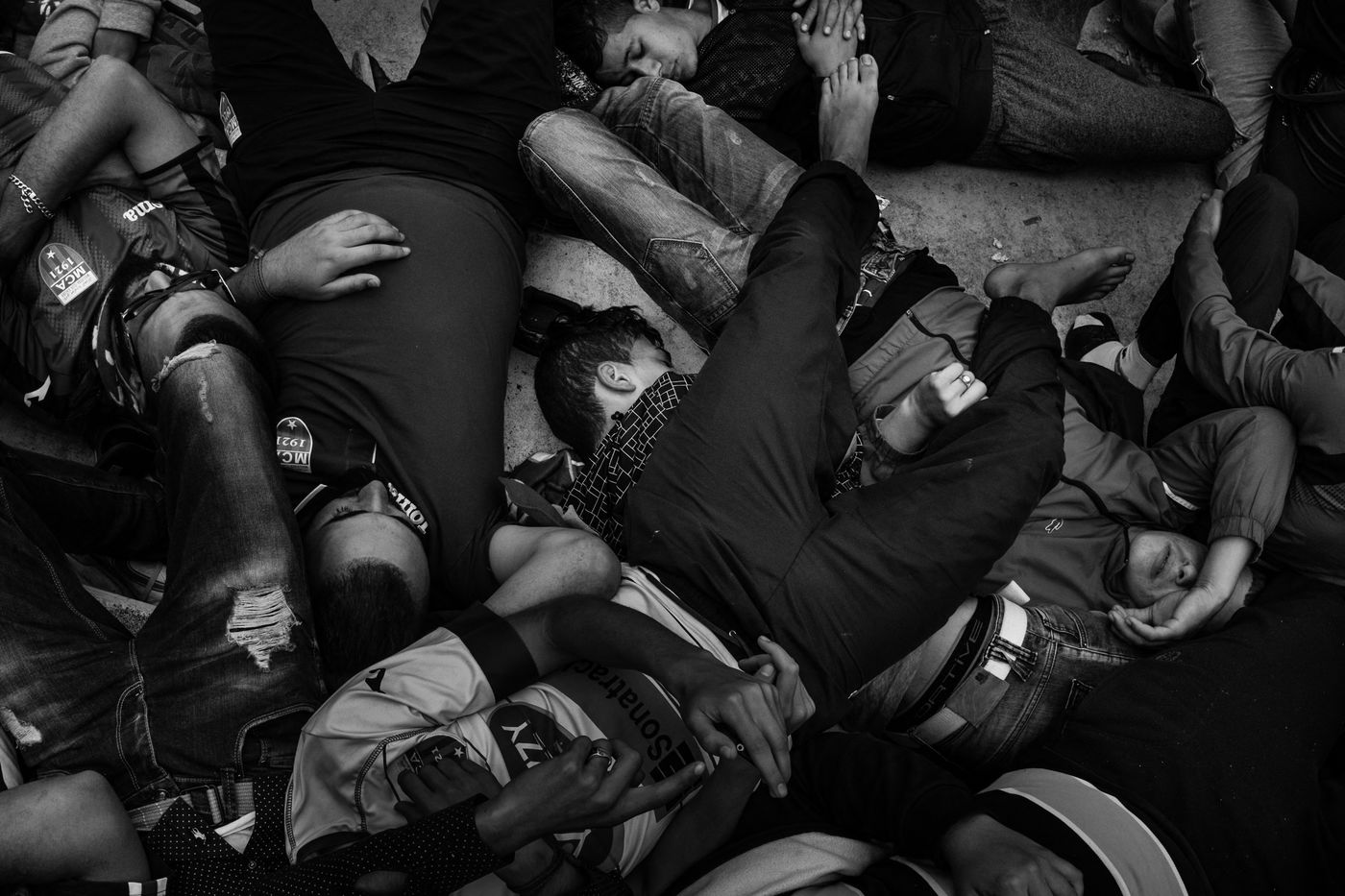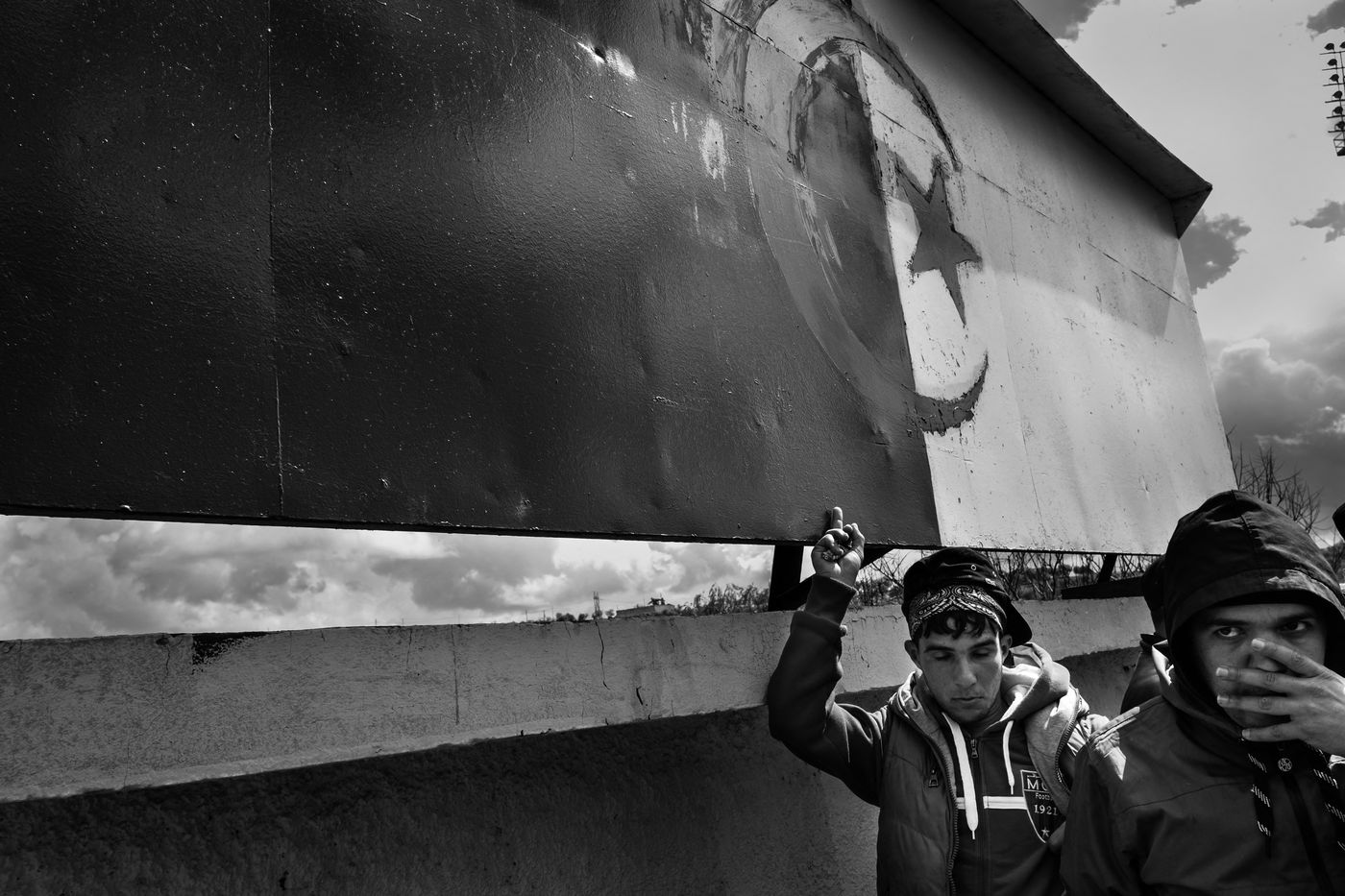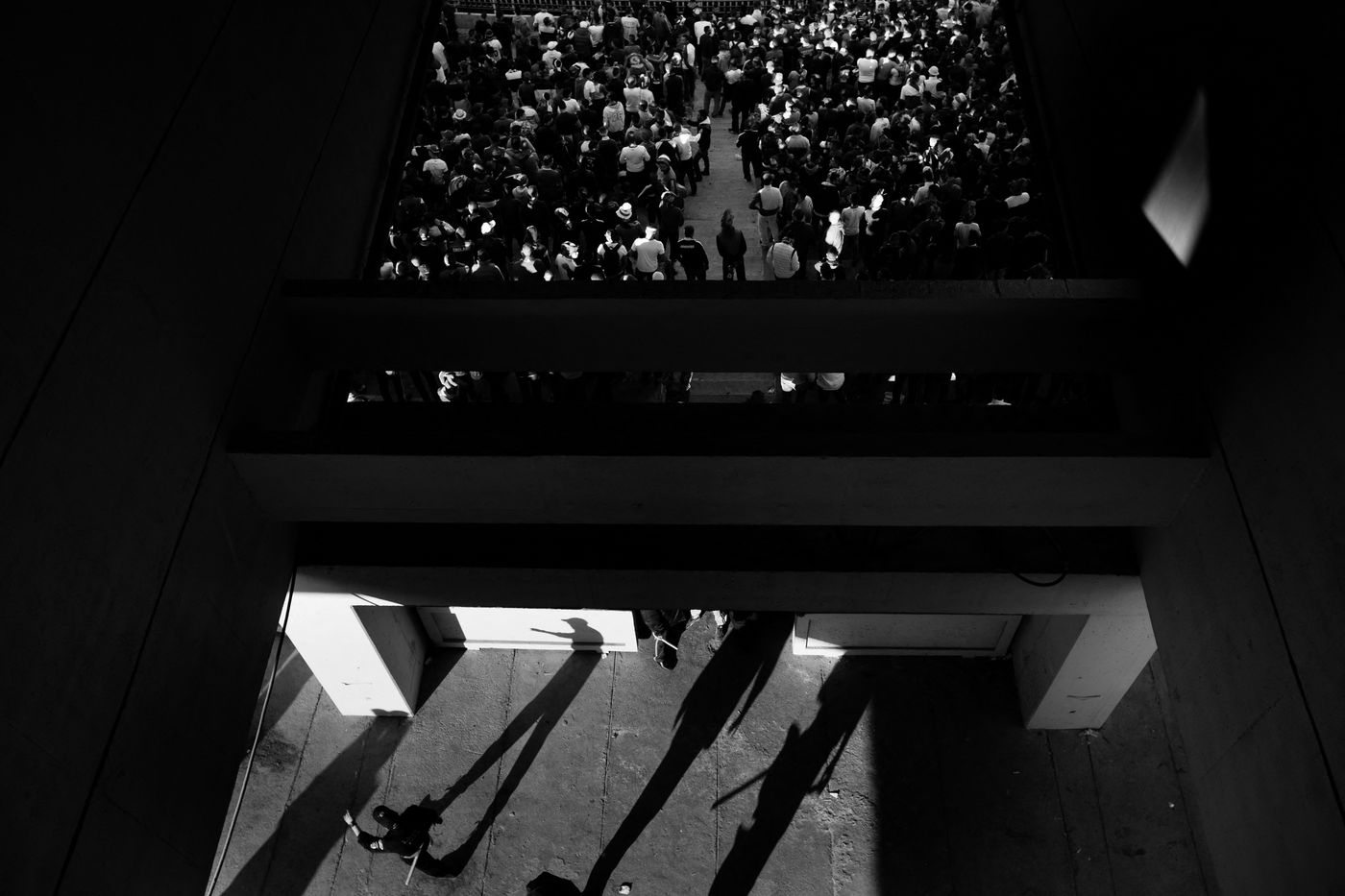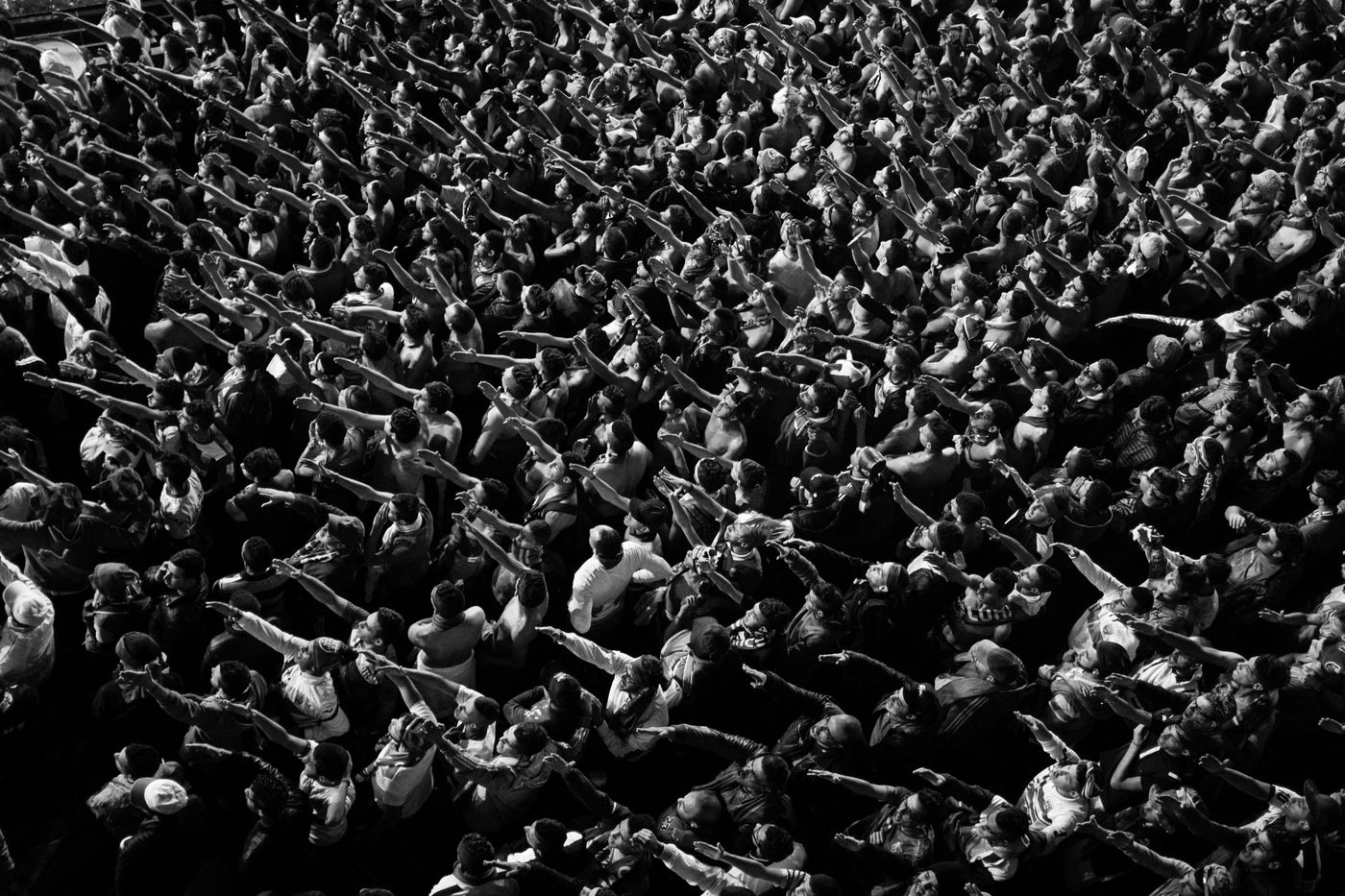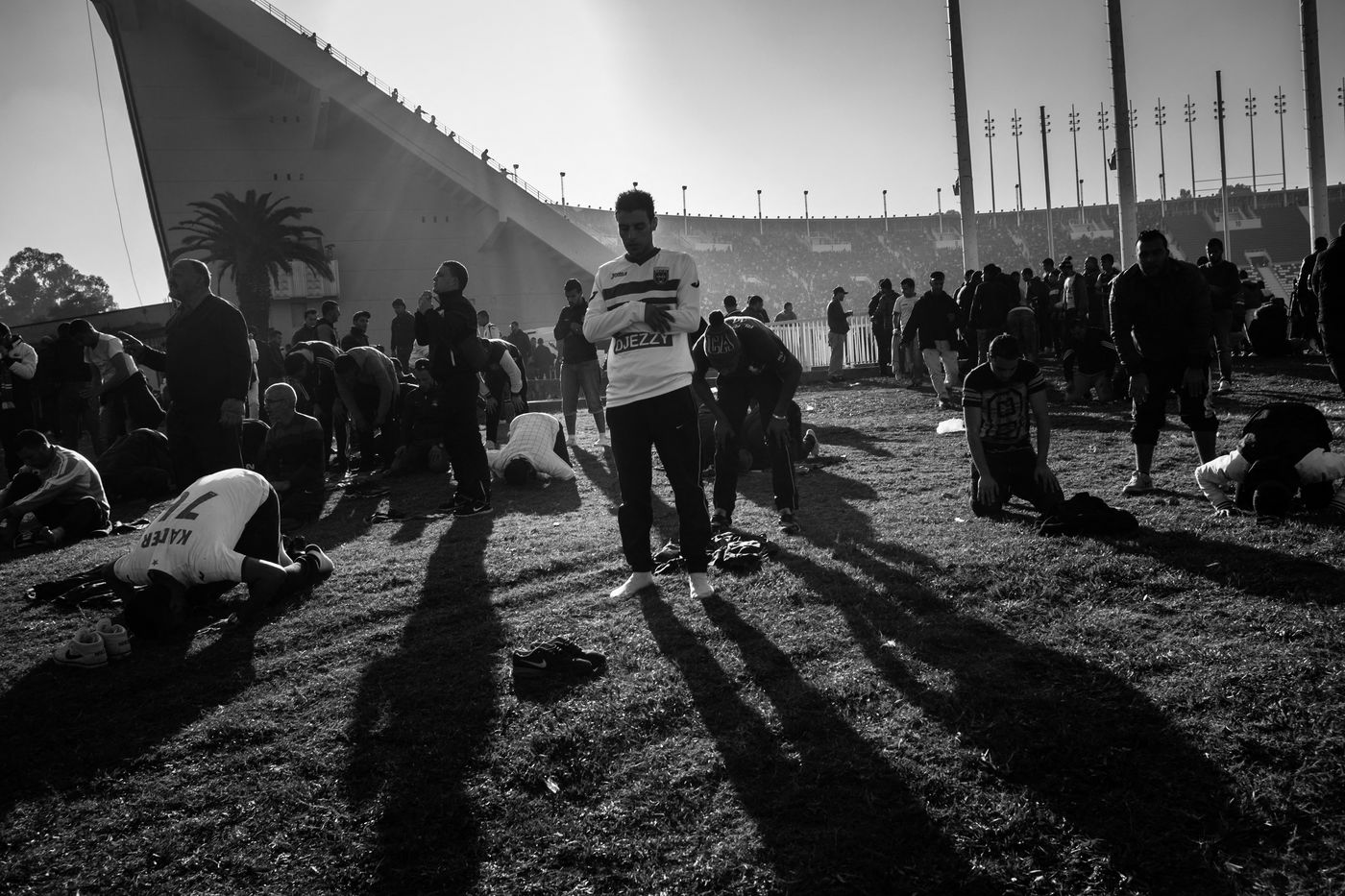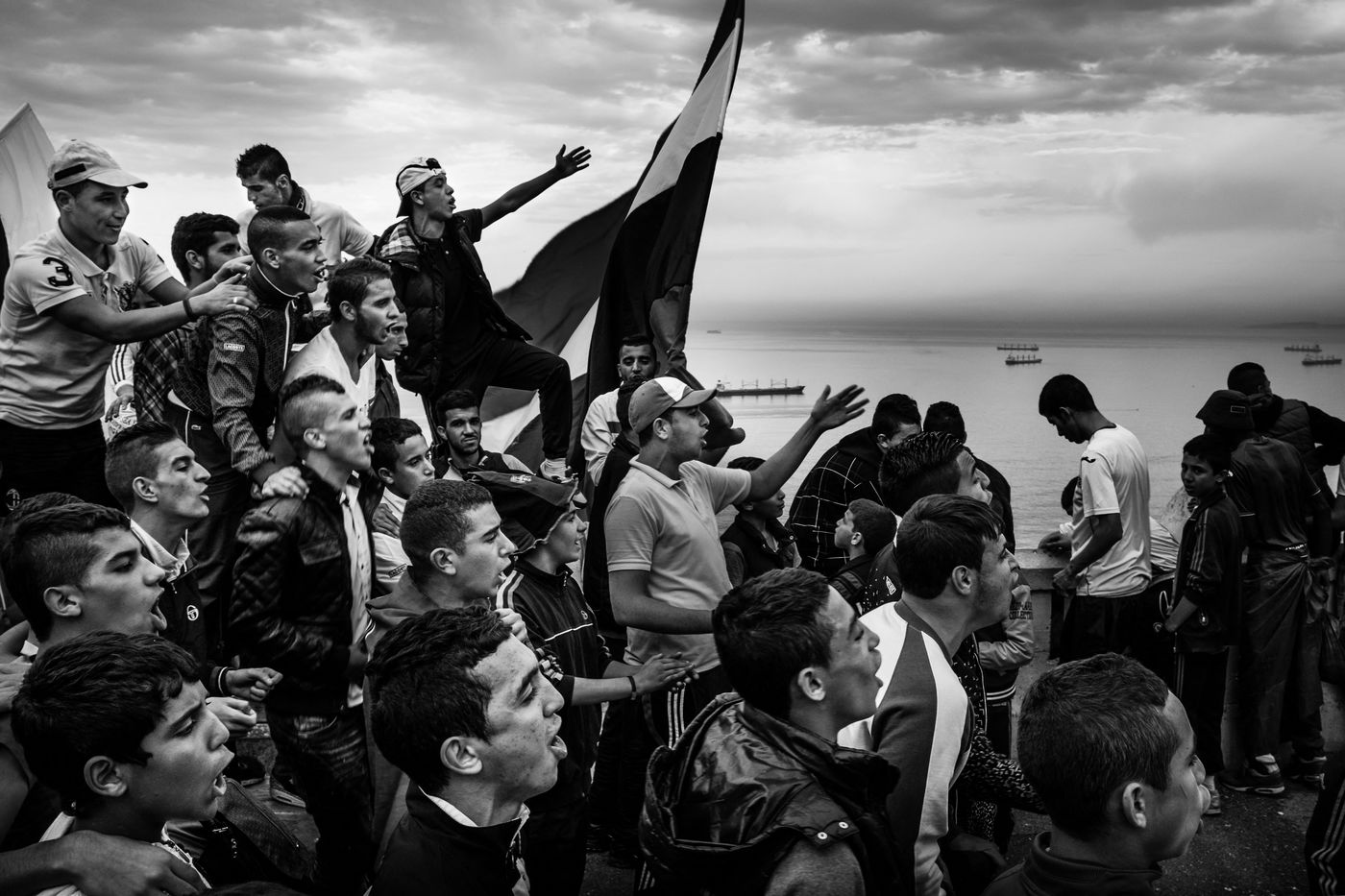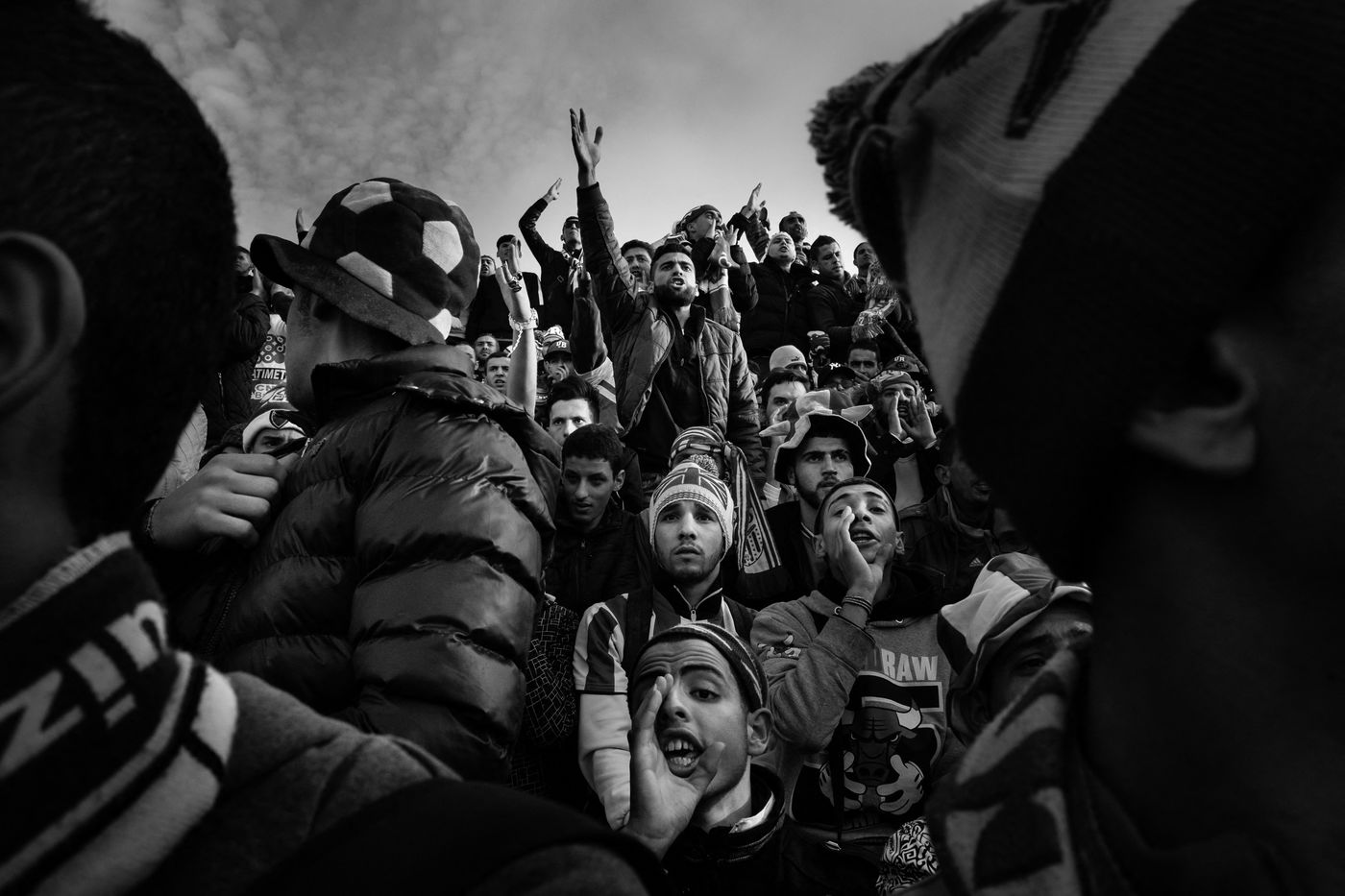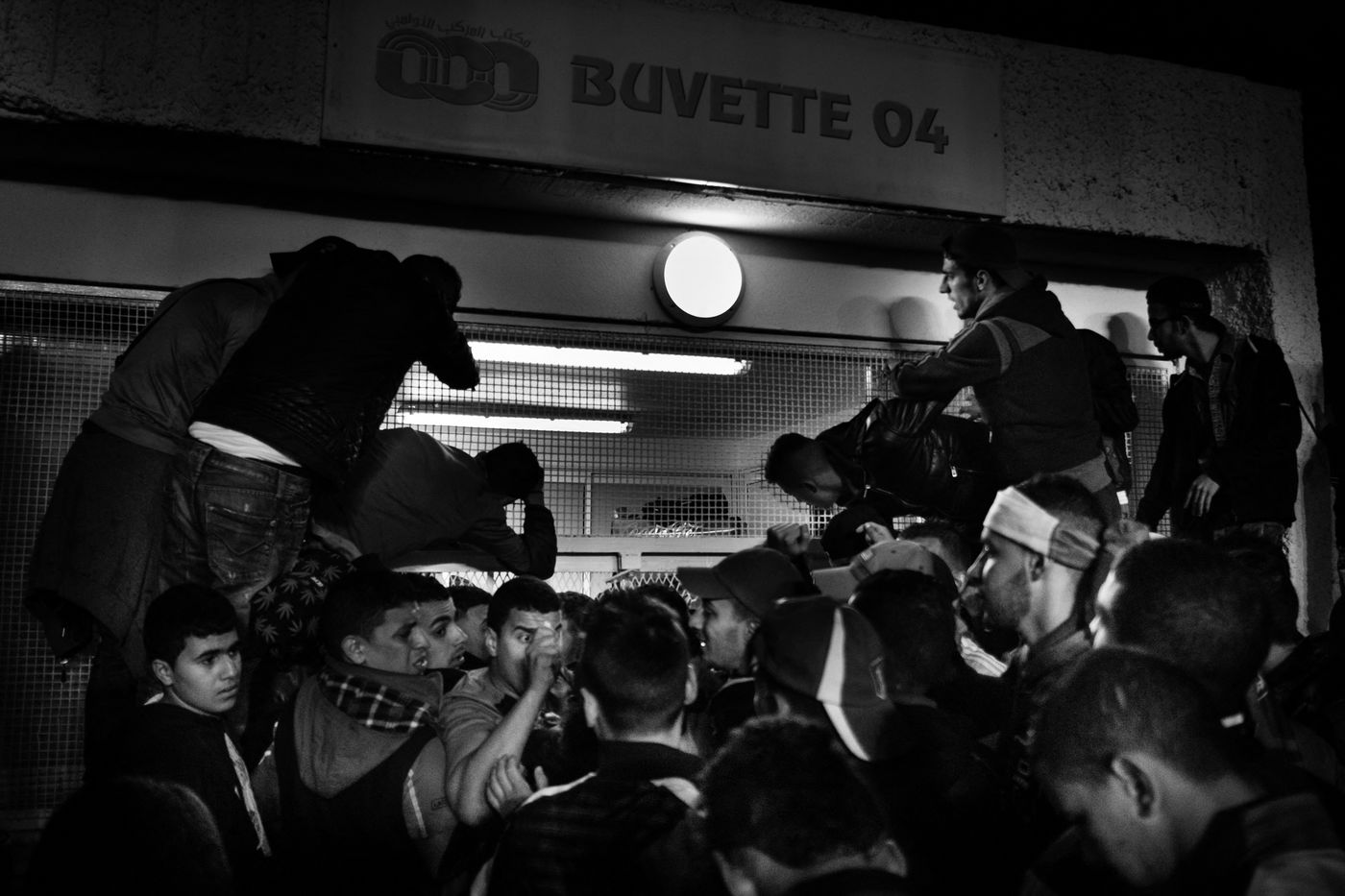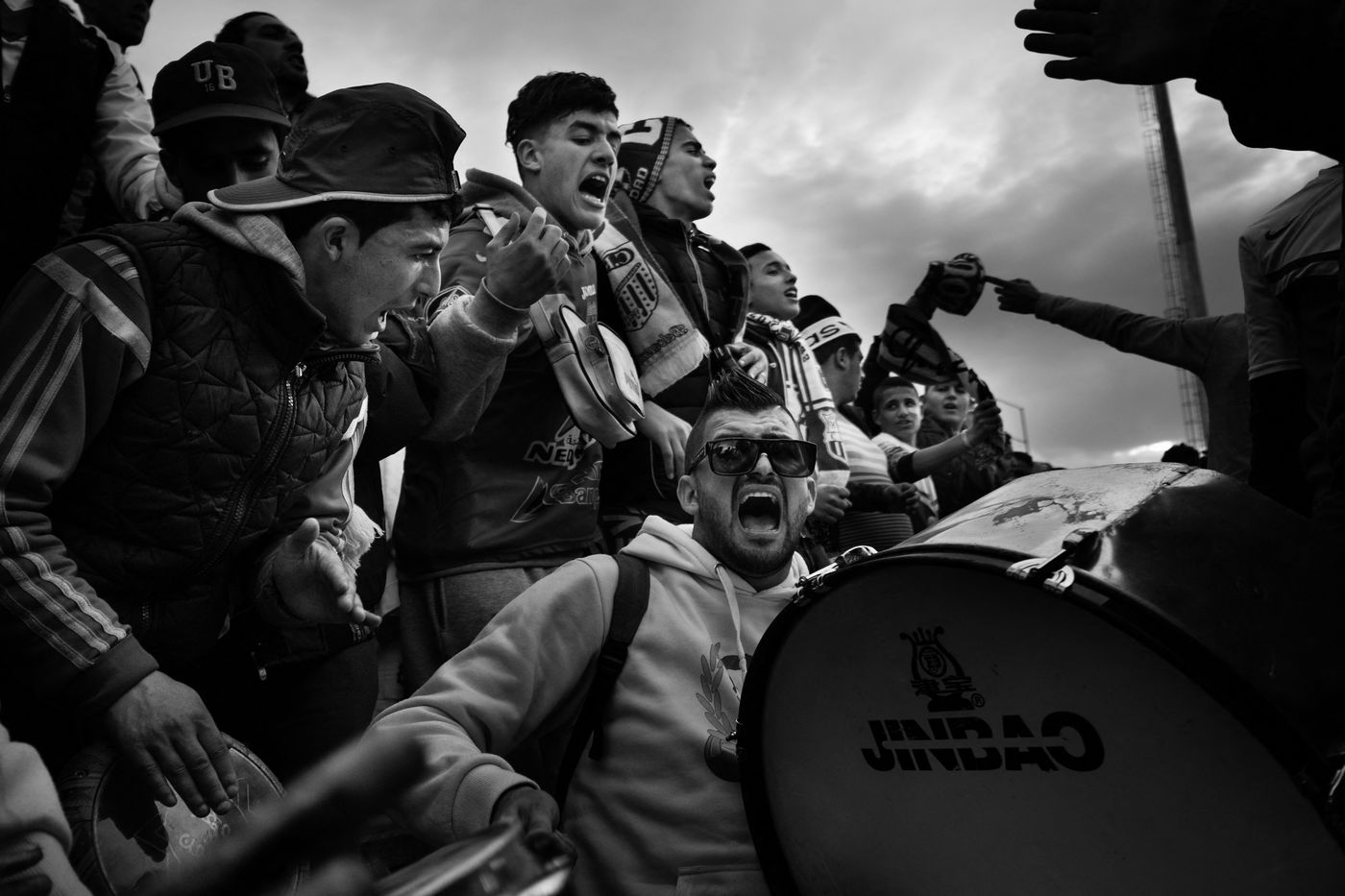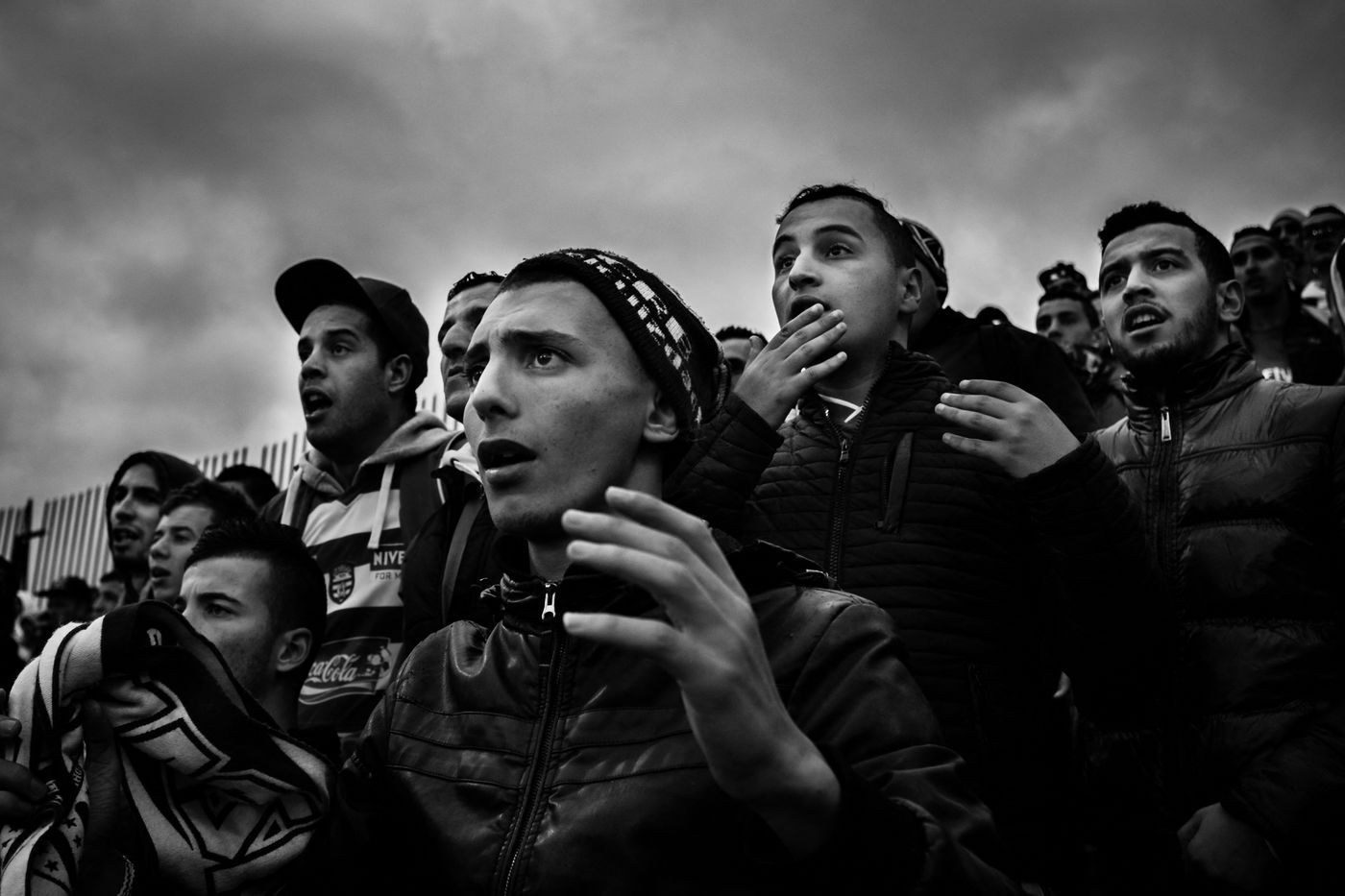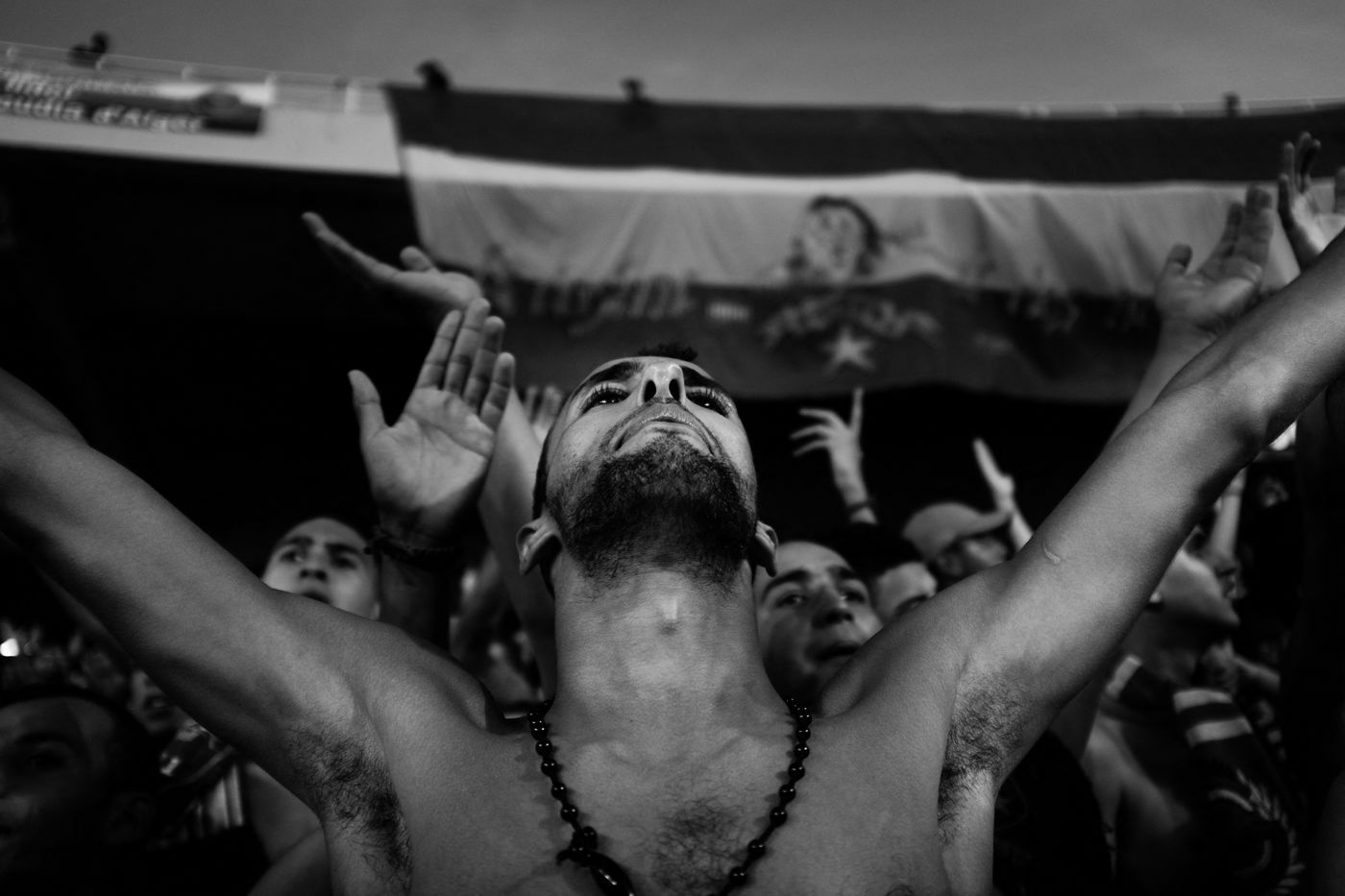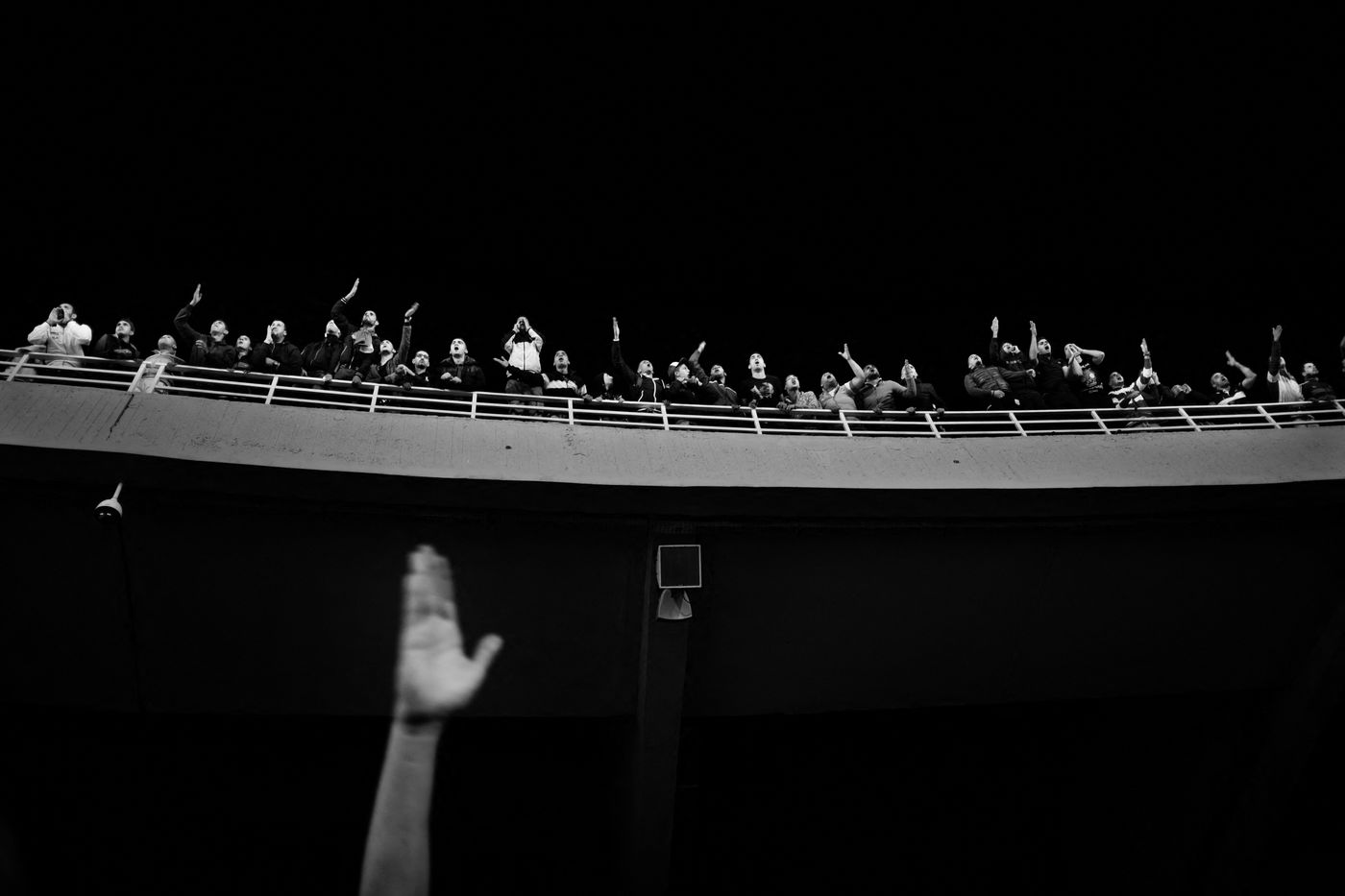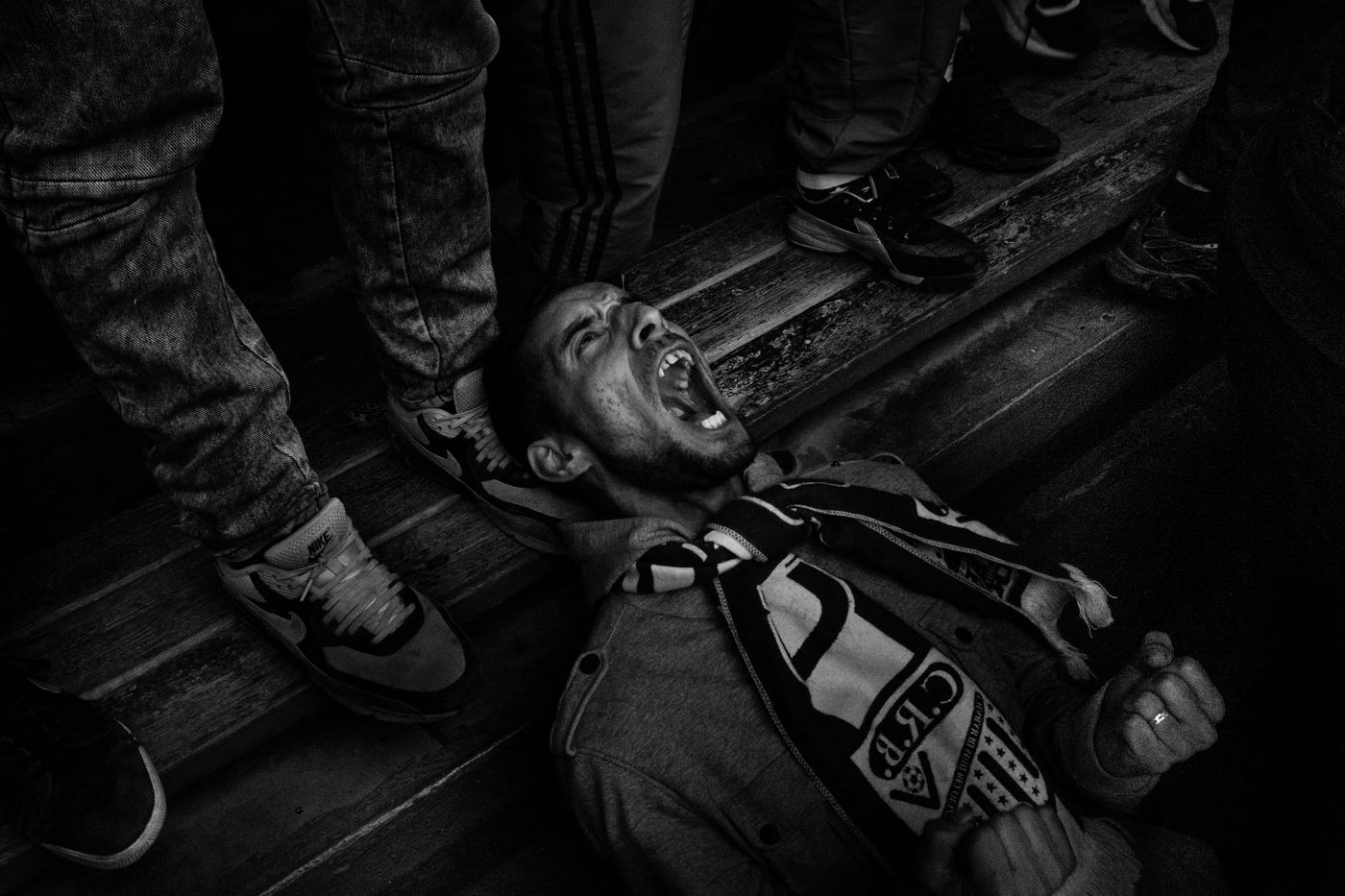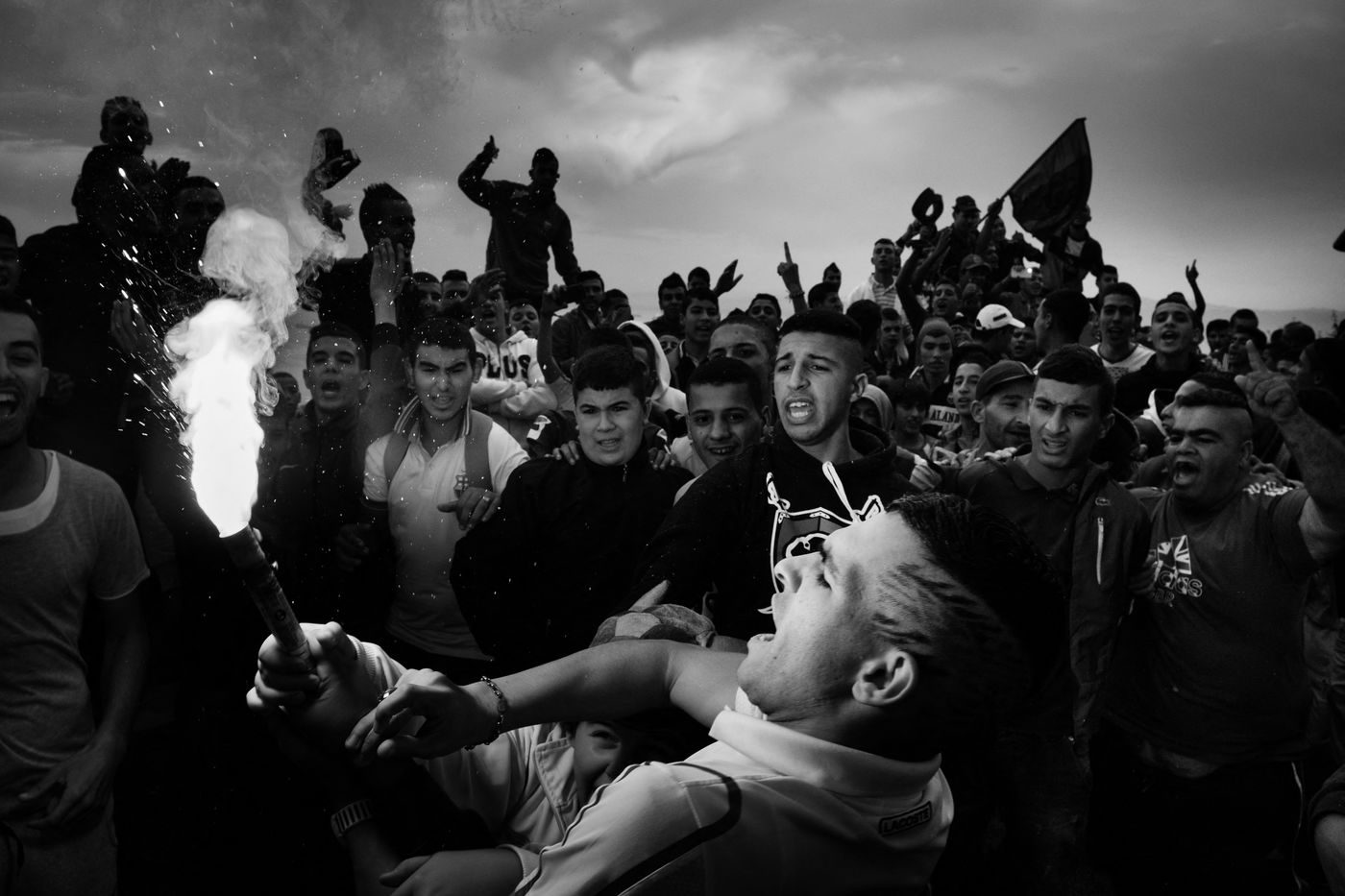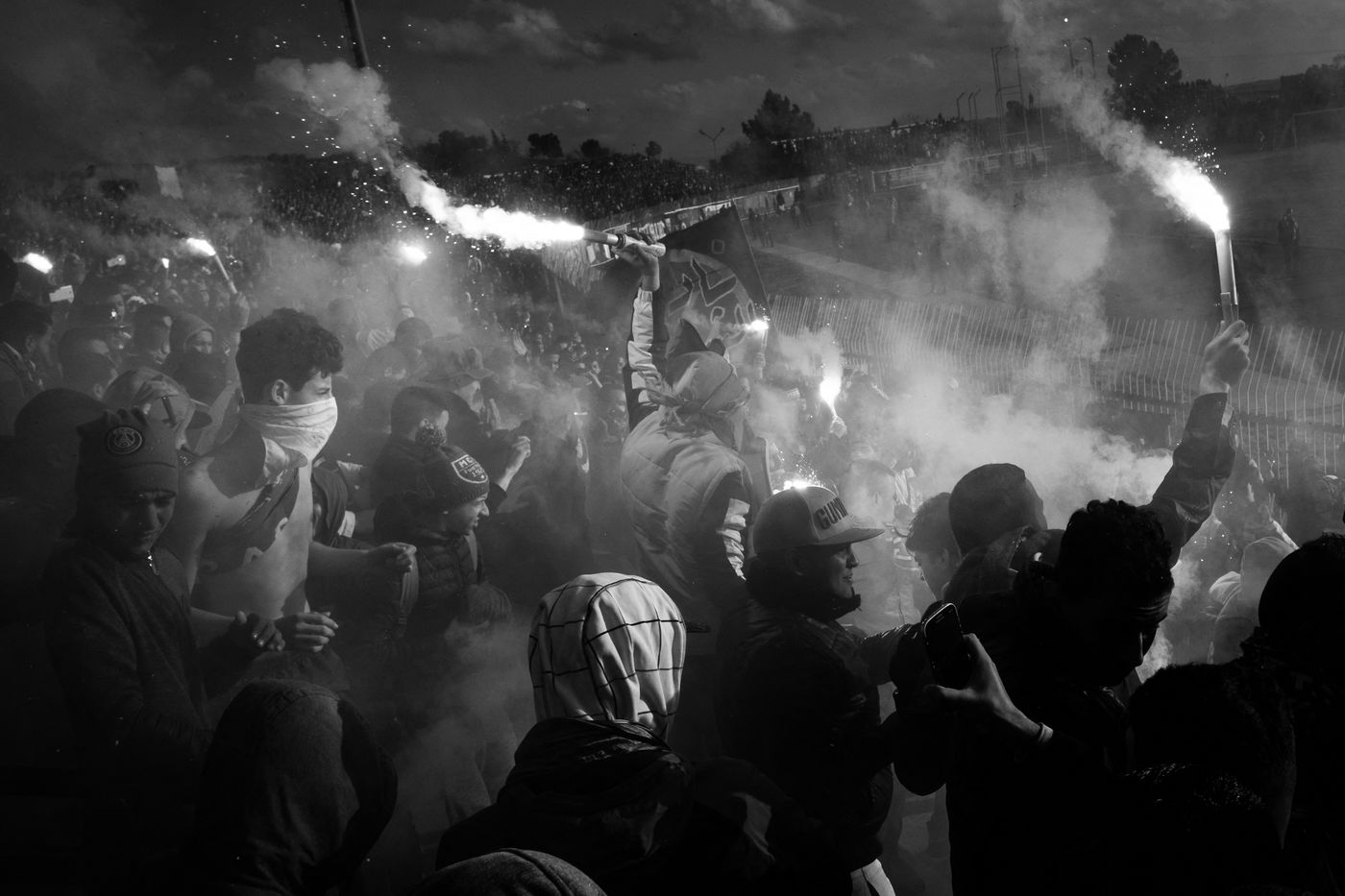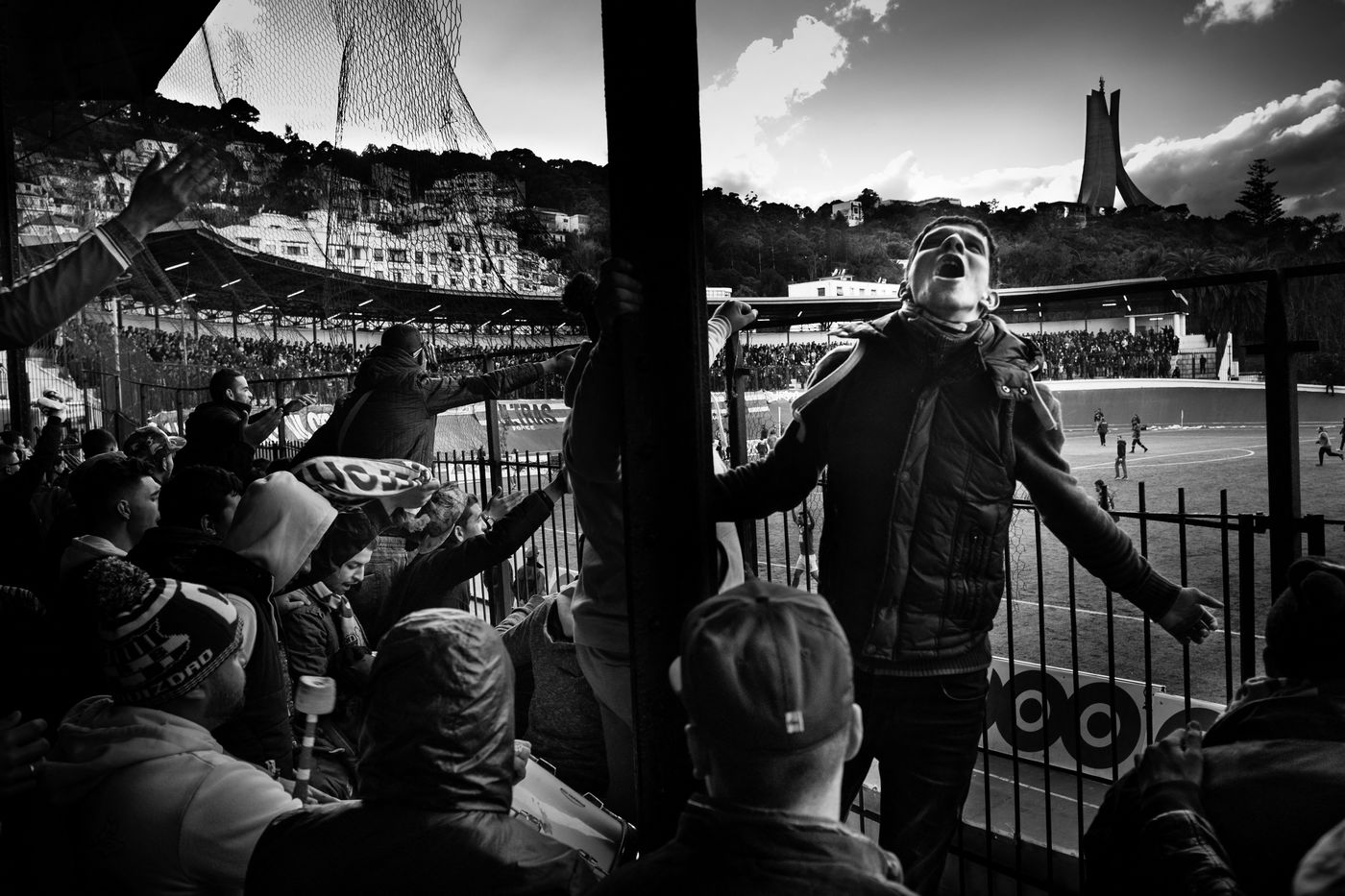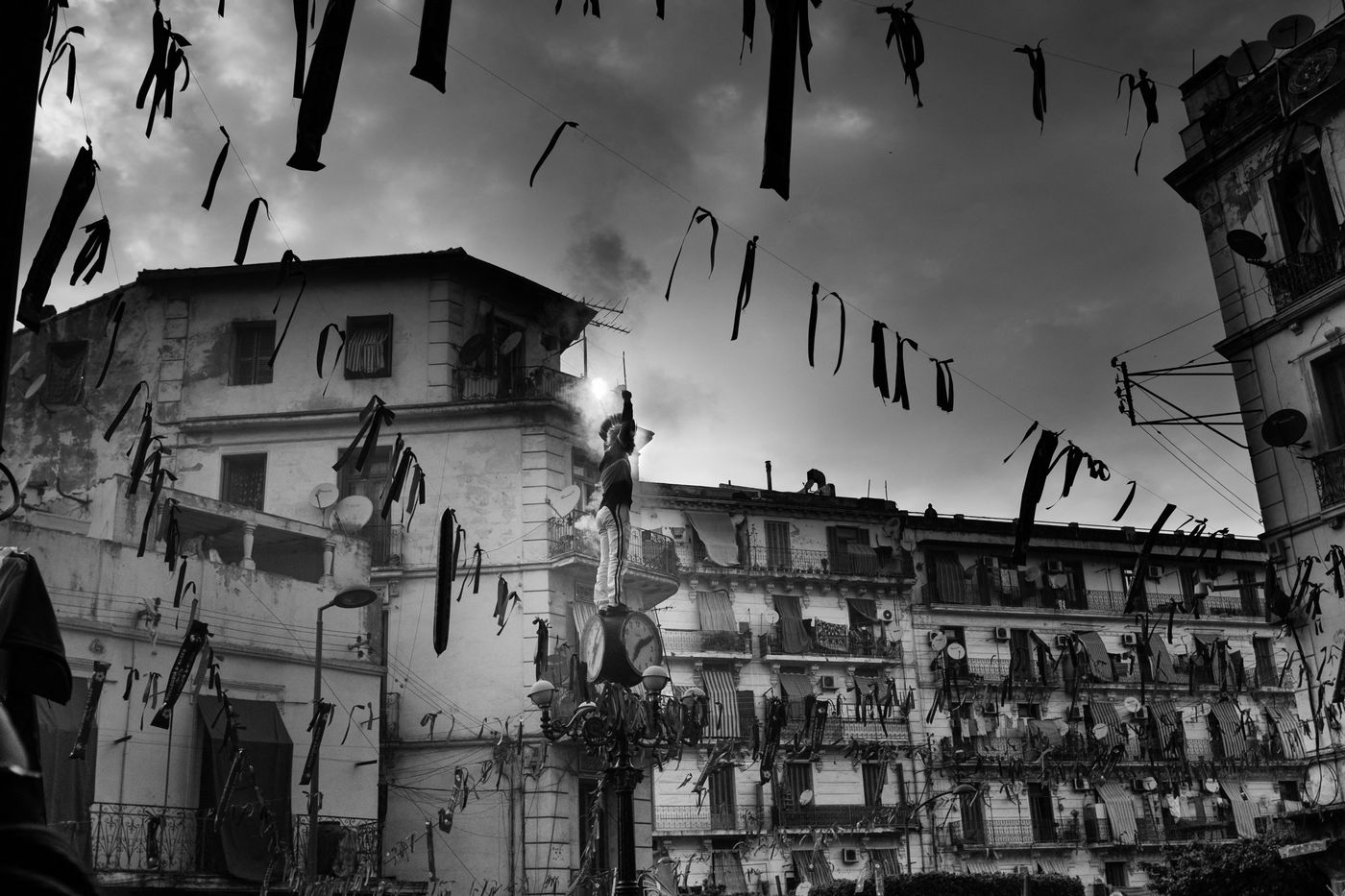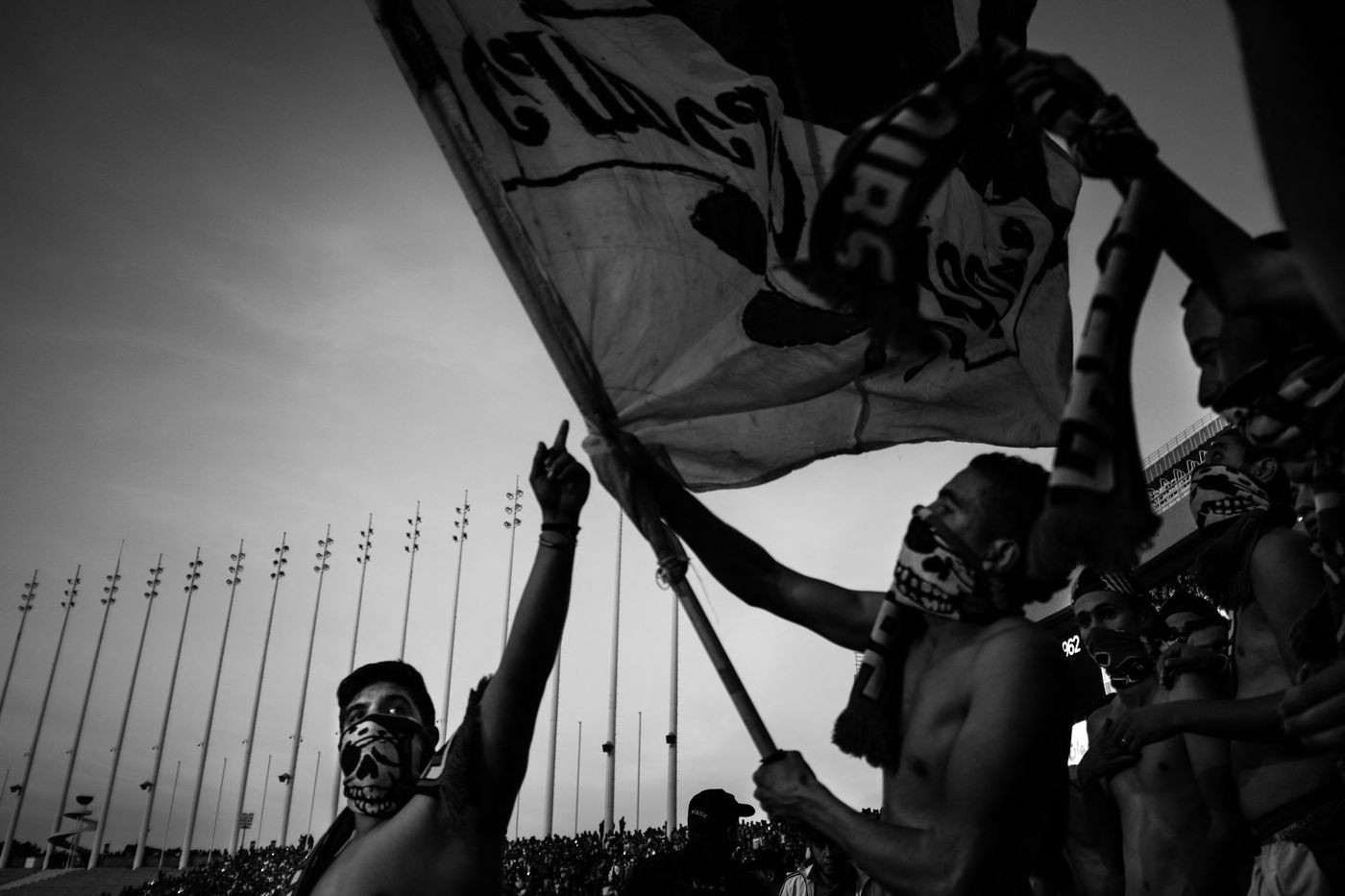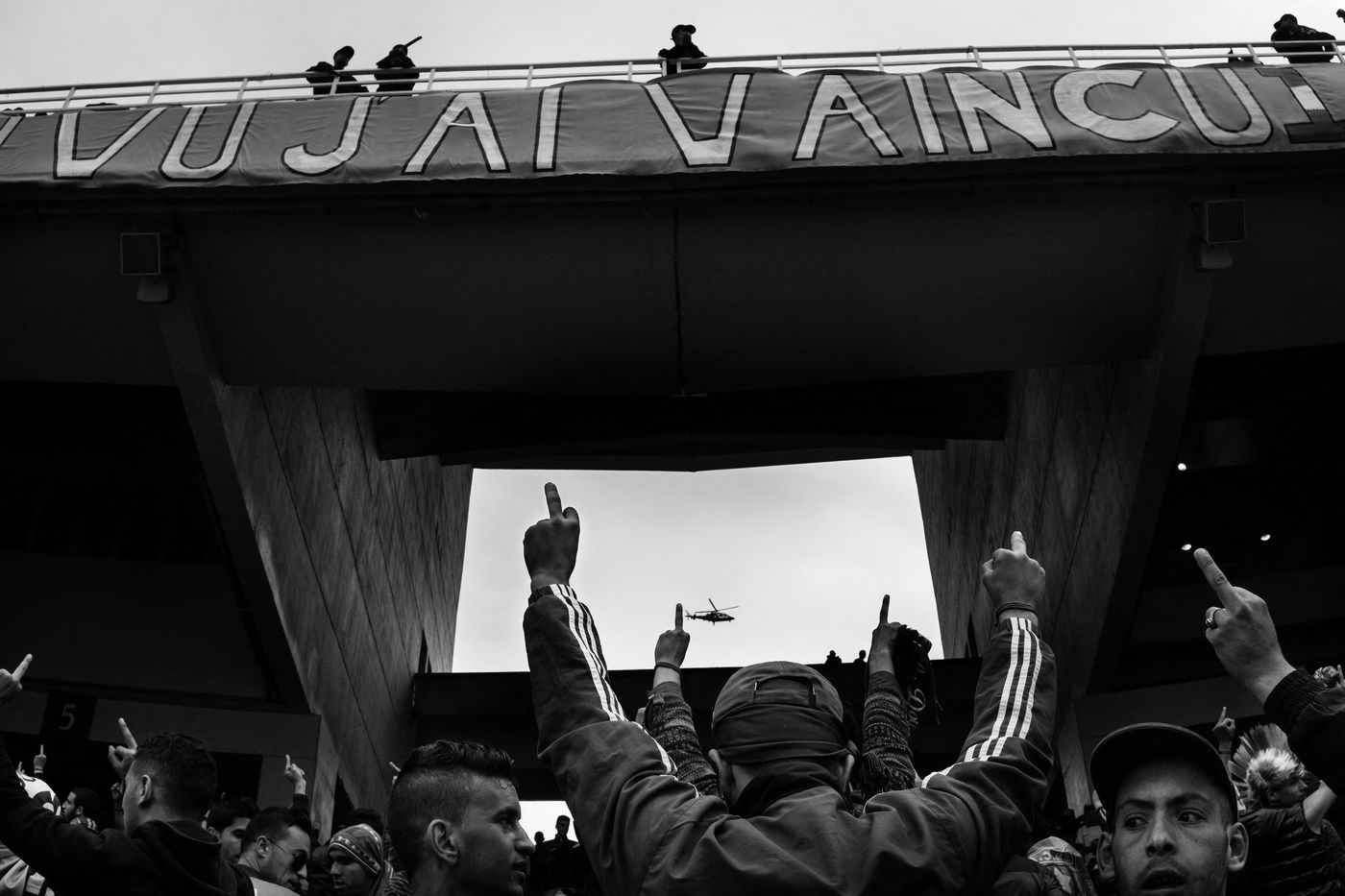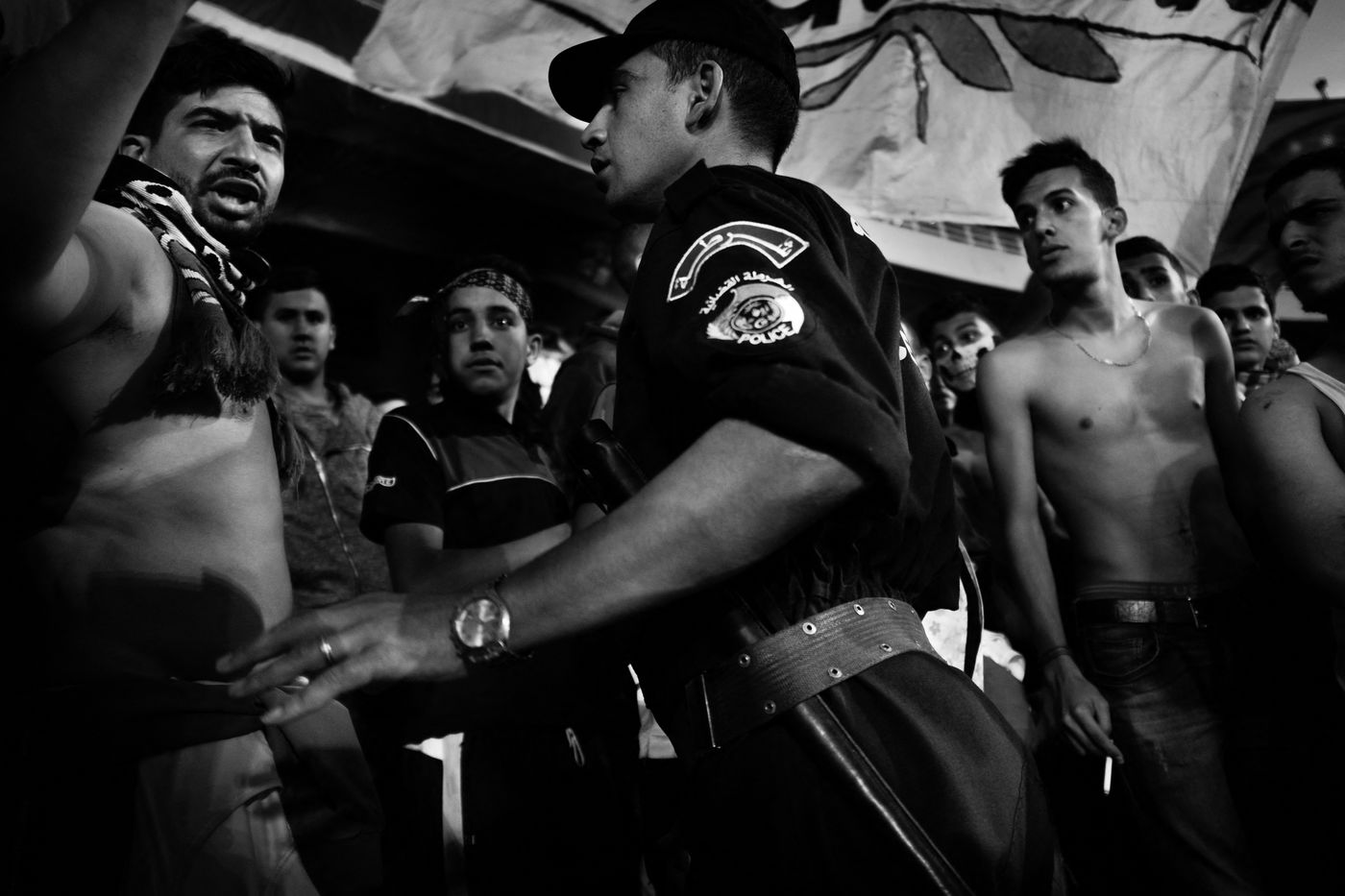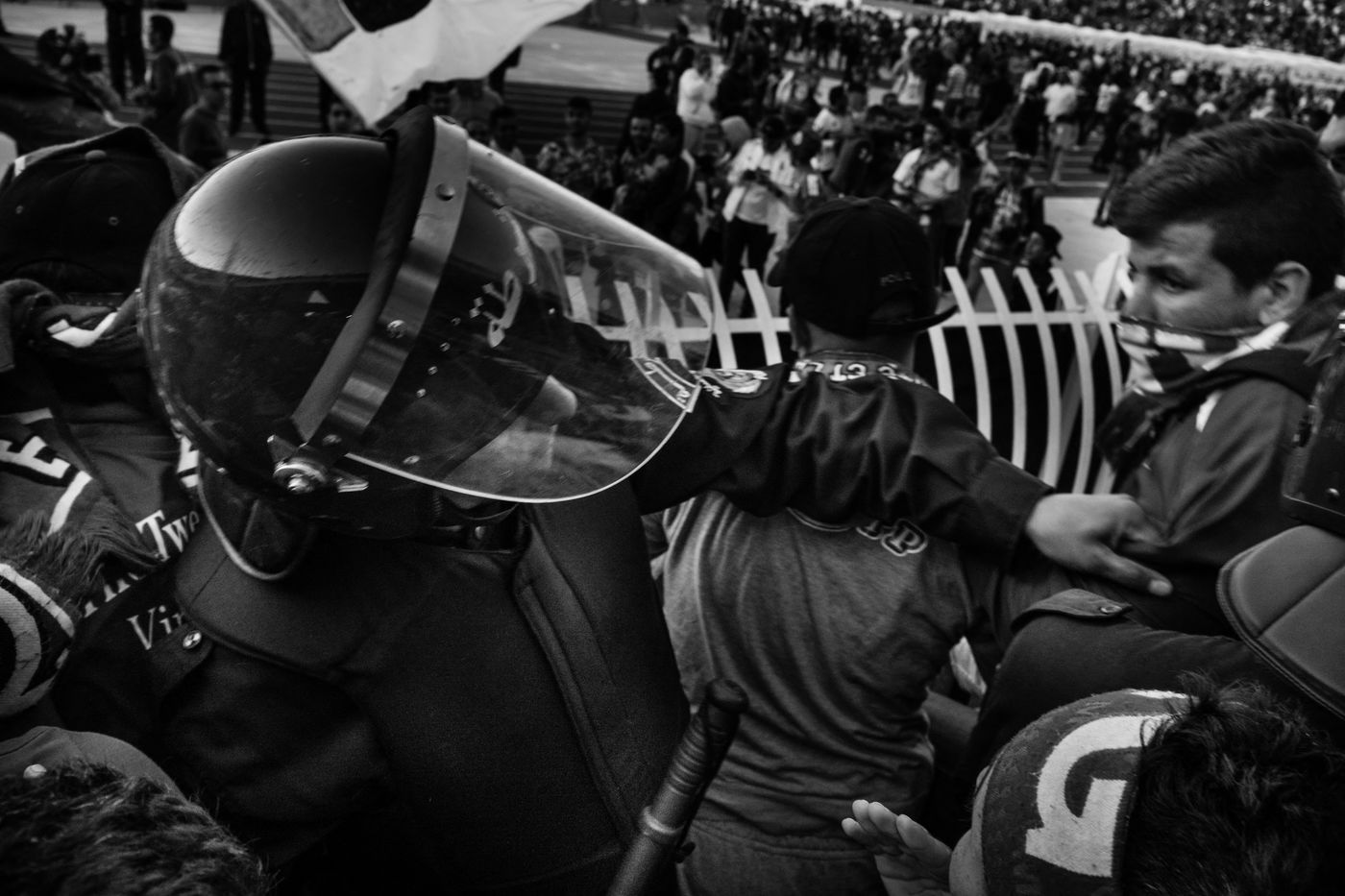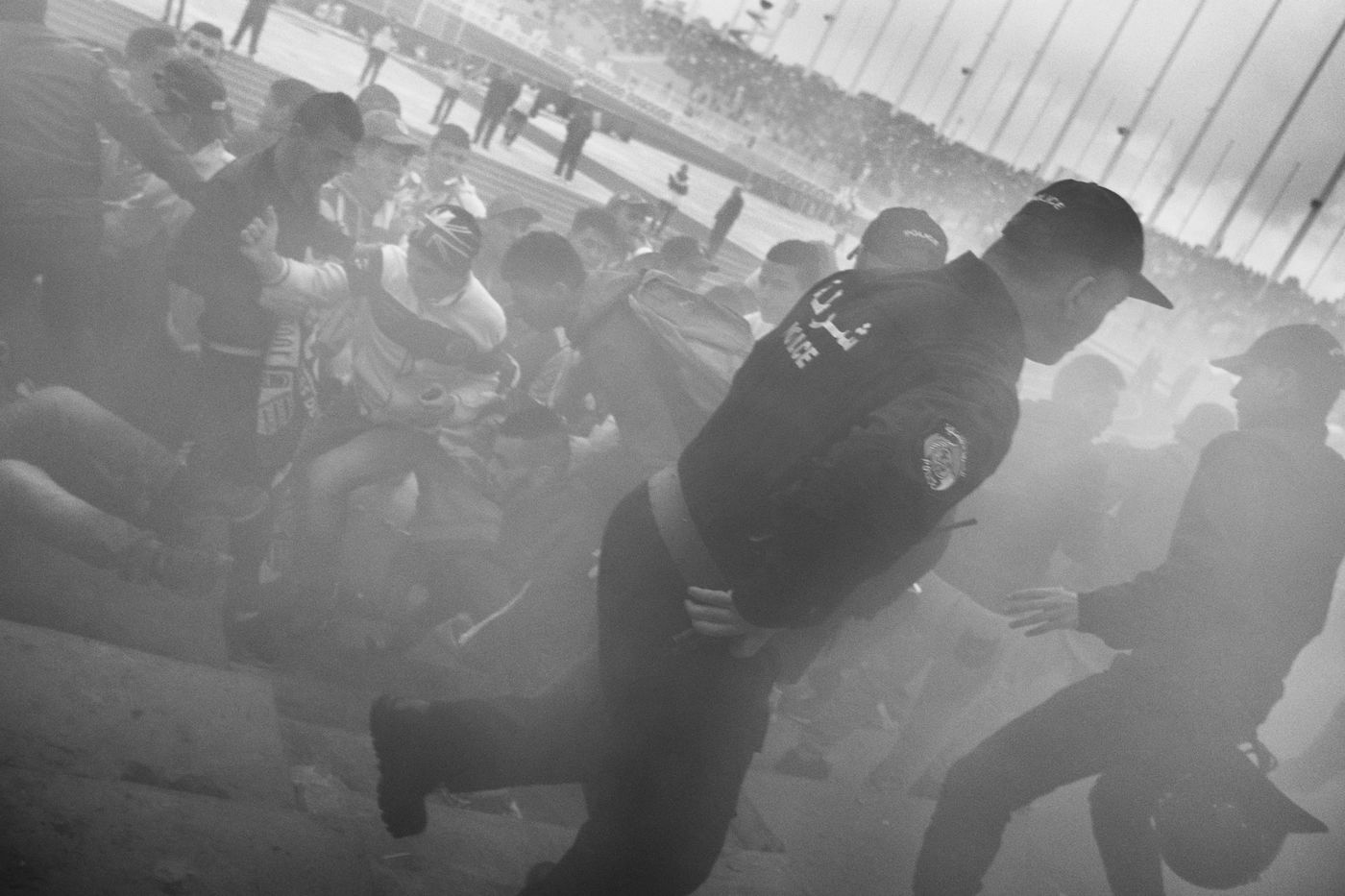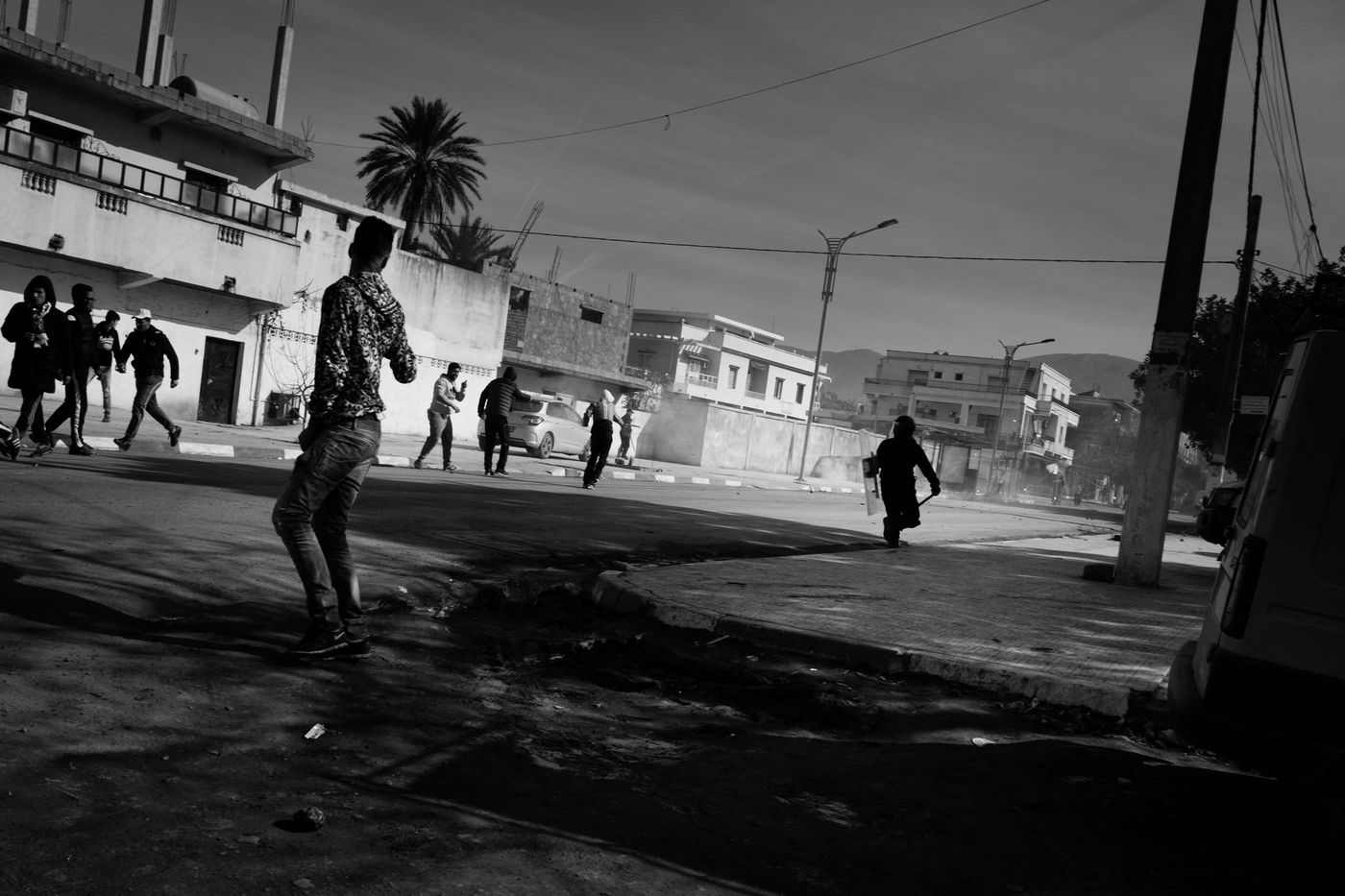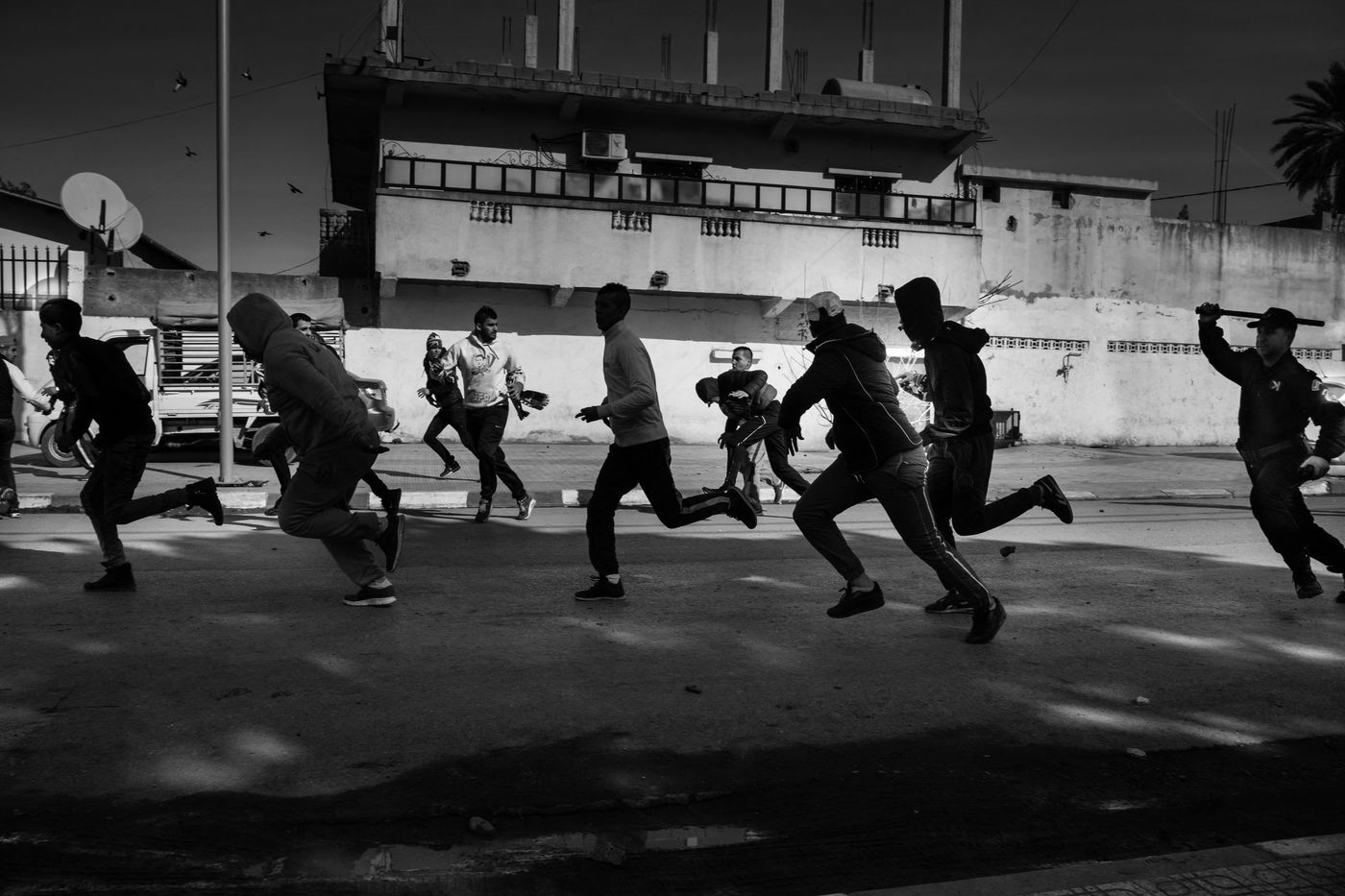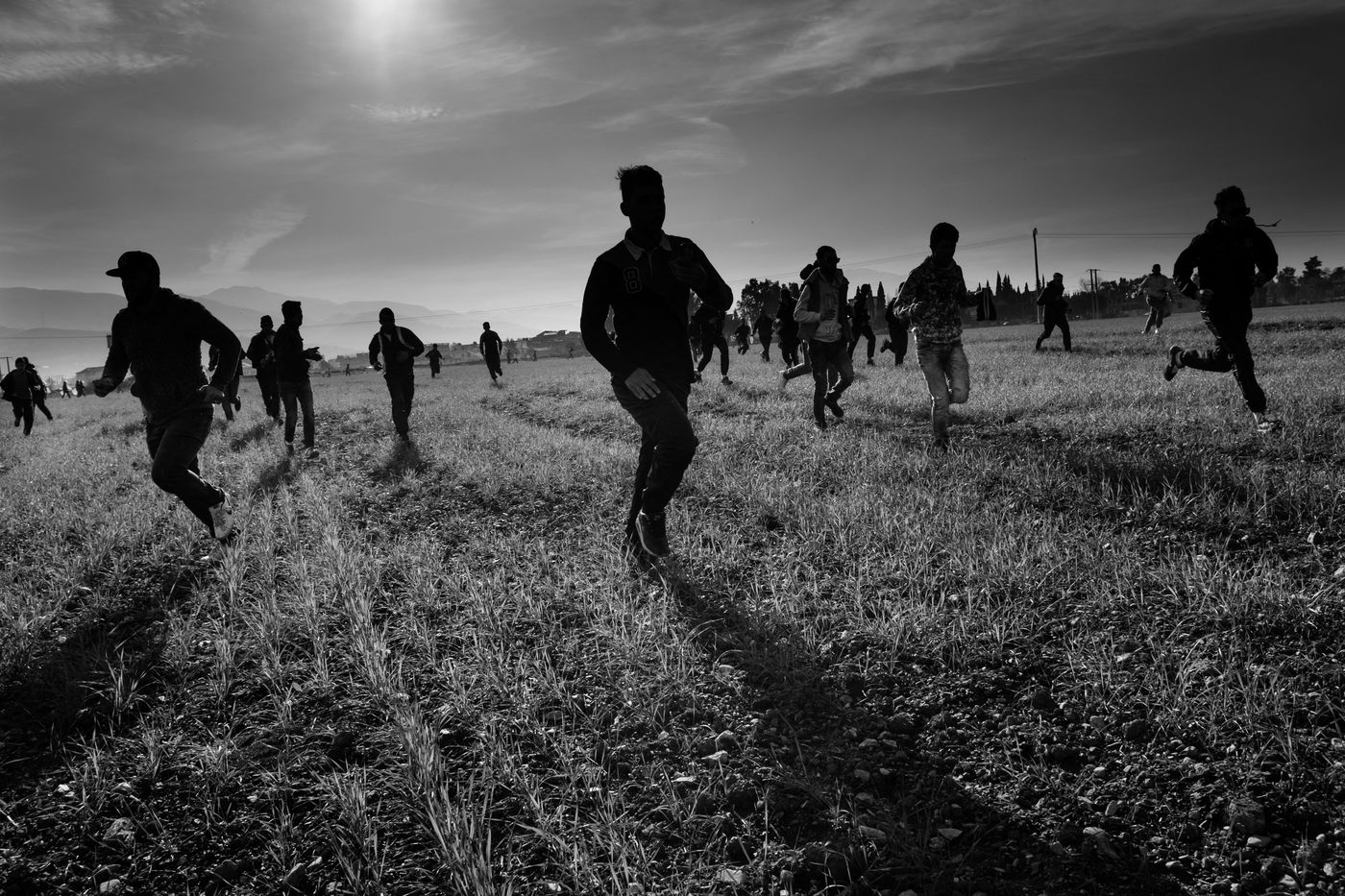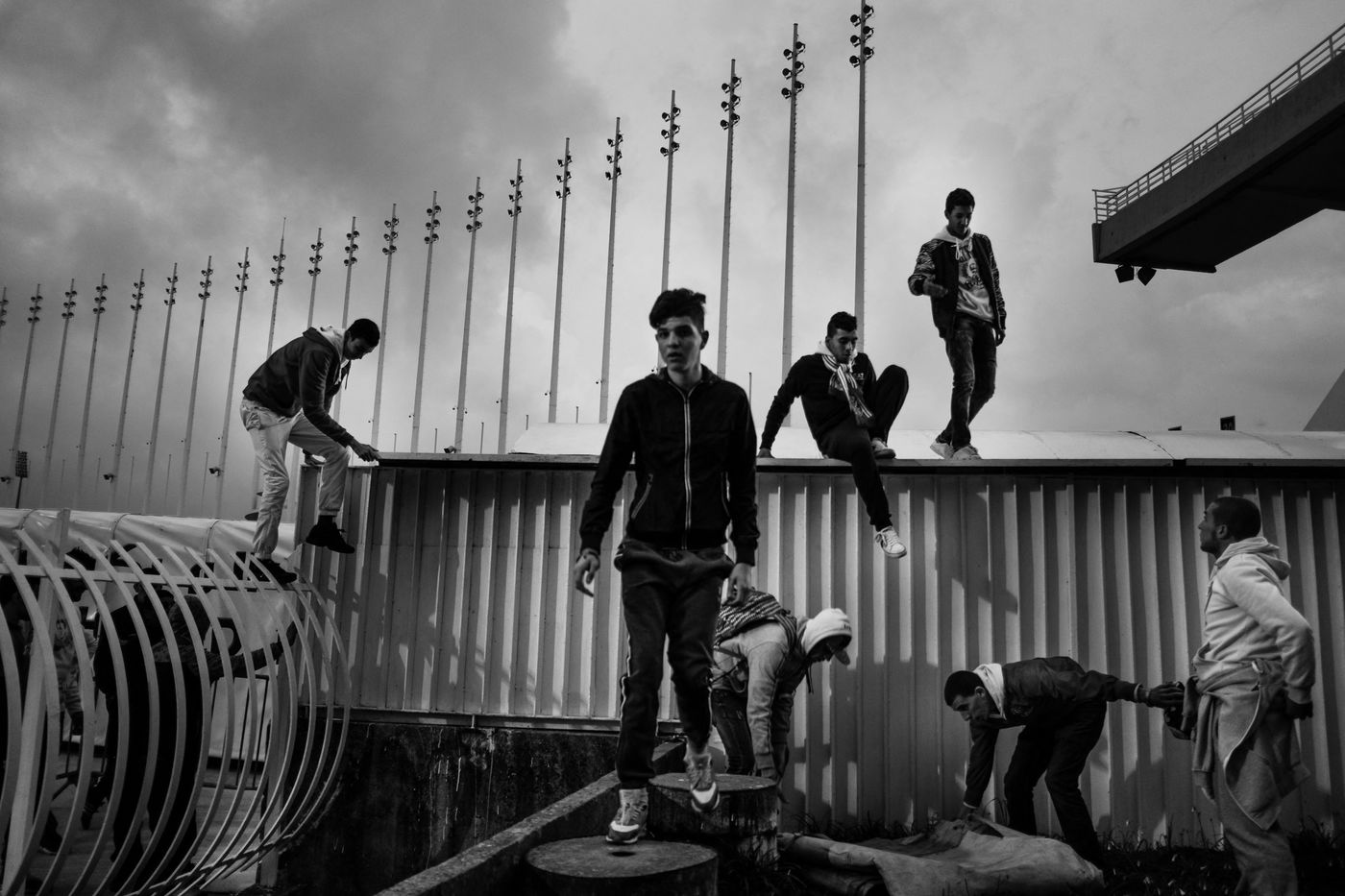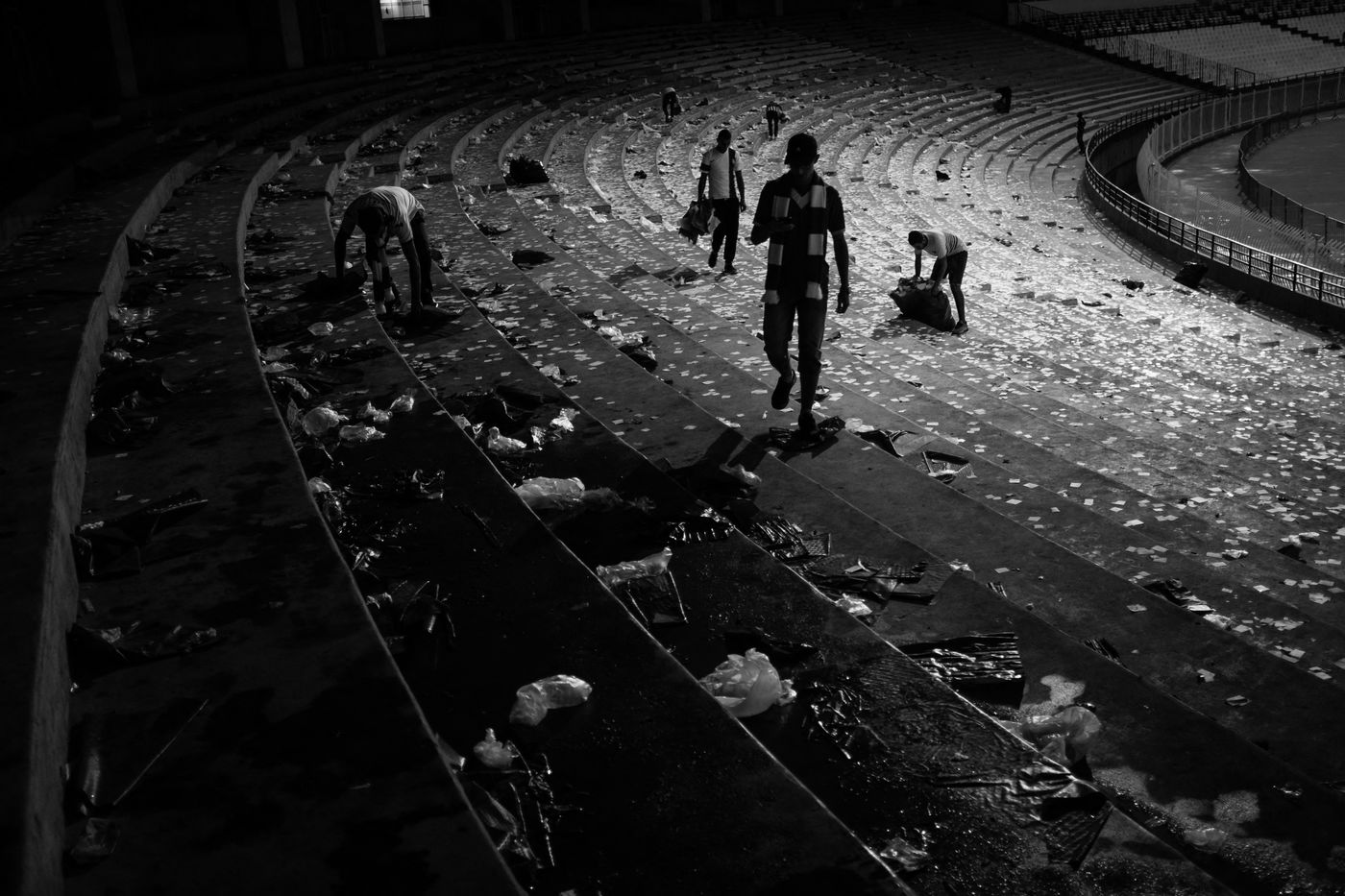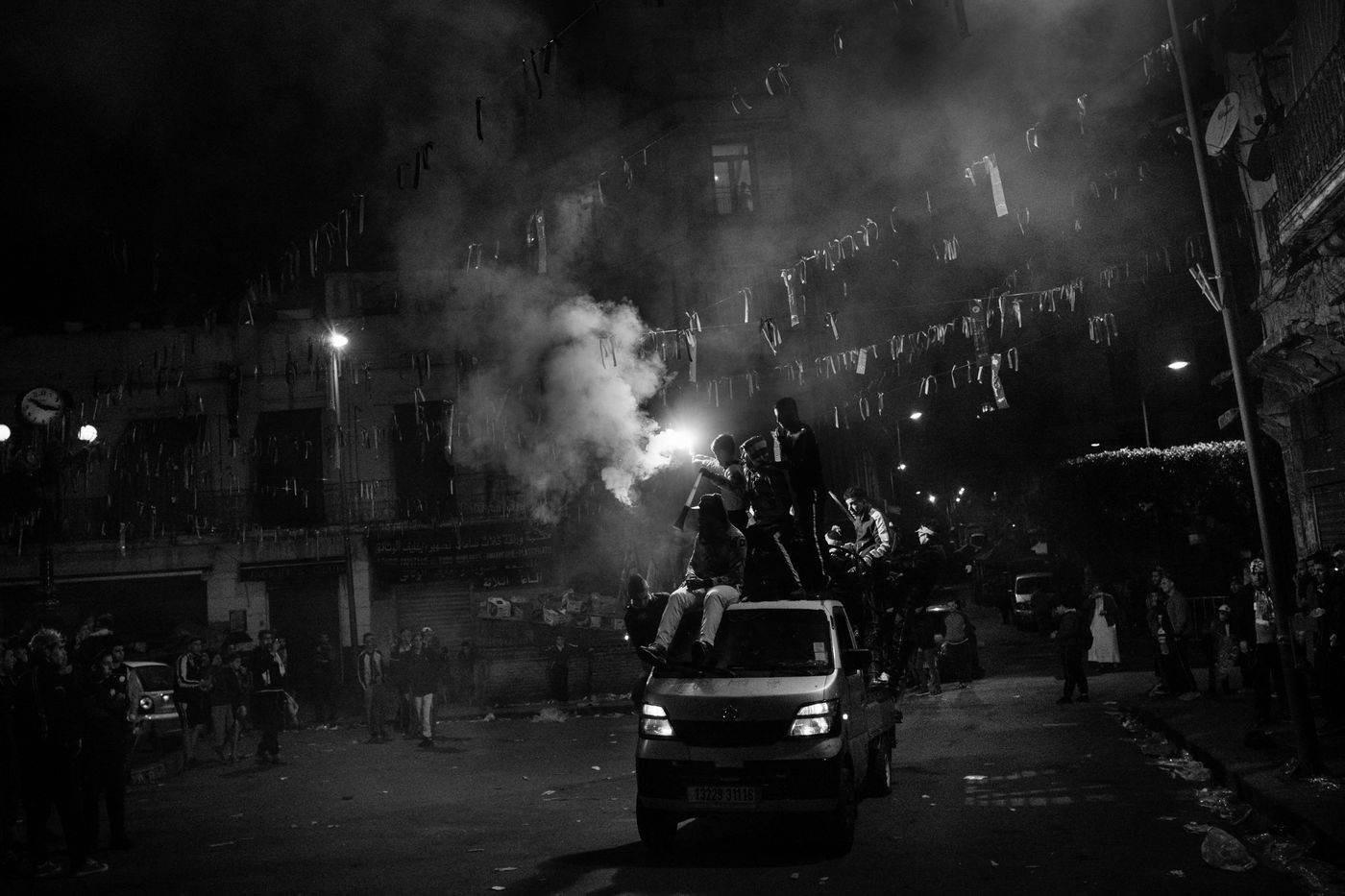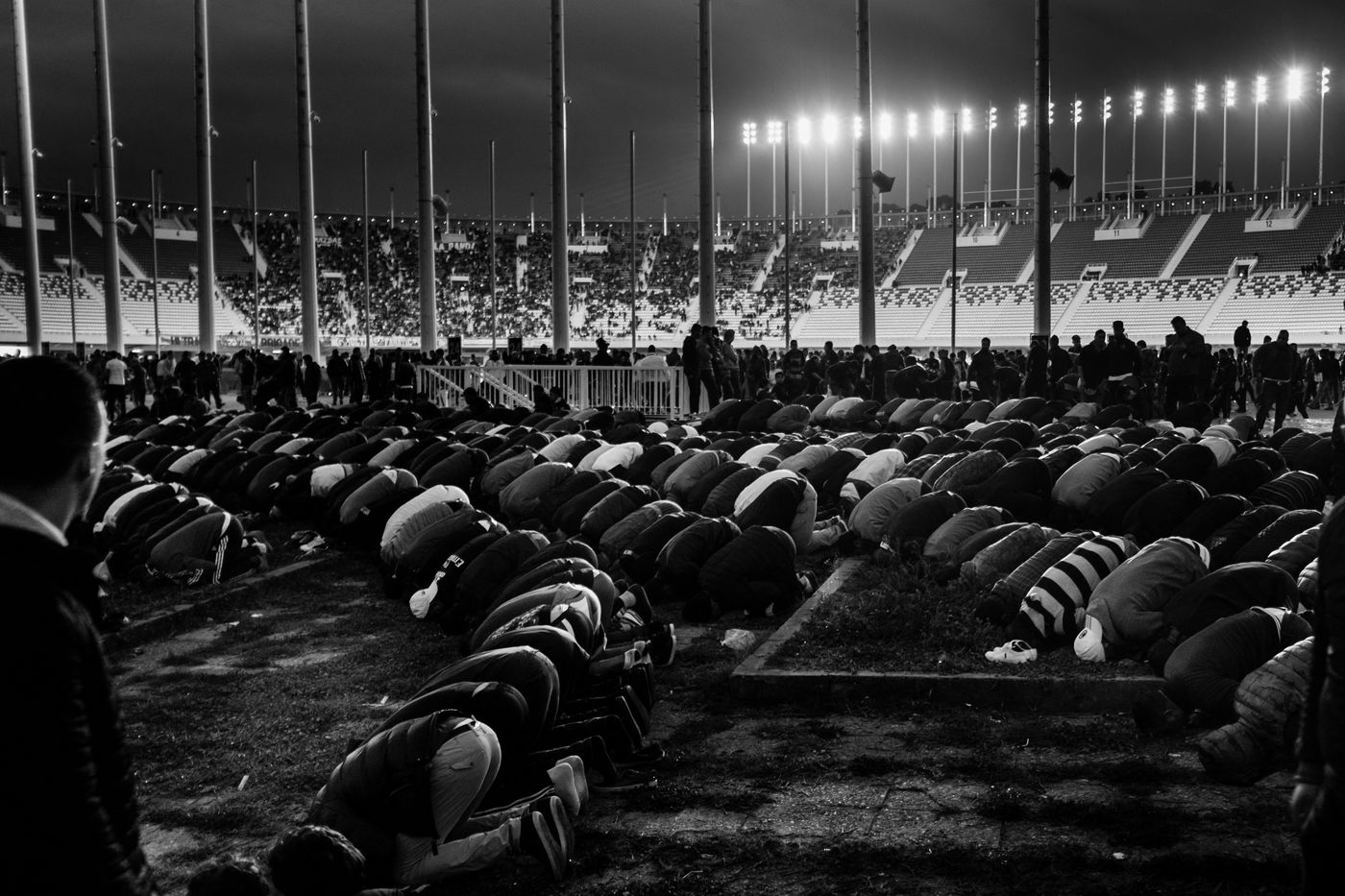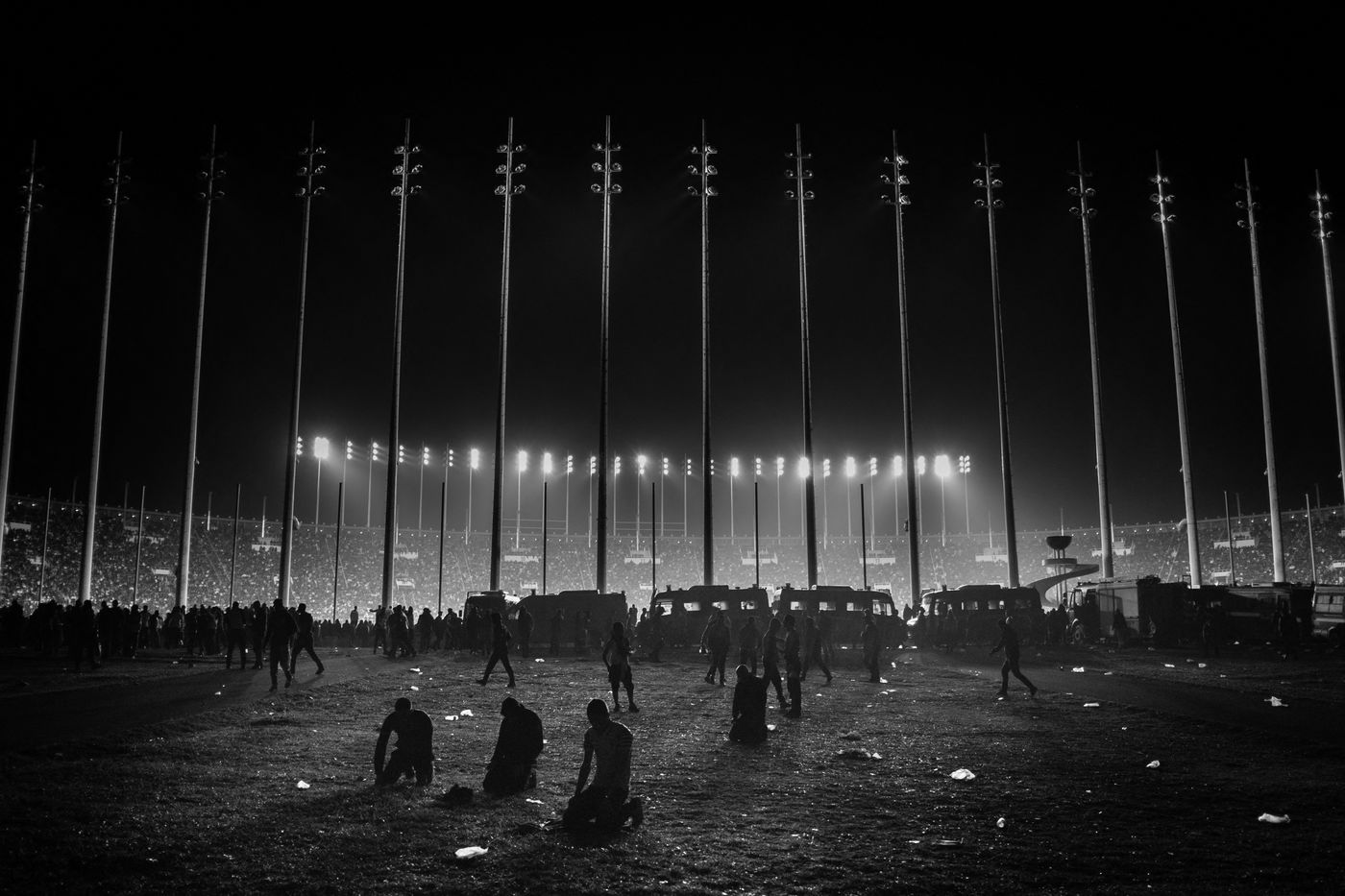Derby
« On a grandi avec le foot, le stade. Ça dépasse tout, même la religion. Au stade, on est libre »
En Algérie, le foot est partout. C'est le sujet favoris d'une jeunesse qui s'ennuie et qui ne se reconnaît ni dans l'état, ni dans ses institutions. Entre petits boulots, débrouille, les moeurs qui se radicalisent, elle est en proie à toutes les frustrations dans un pays où le droit de manifester dans la rue est quasi interdite.
Pourtant, un espace échappe à cette fatalité. Le stade devient une fois par semaine fureur et défoulement. Mais cela dépasse de très loin les pratiques partisanes que l'on retrouve chez tous les supporters.
Ensemble, ils existent. Ils chantent le chômage, la pauvreté, l'Europe où ils rêvent d'aller. Ils défient l'état ou les généraux qu'ils tiennent responsables de la ruine du pays. Ils affirment leur appartenance à leur quartier, véritable identité empreinte des valeurs qui jadis libérèrent l'Algérie mais qui ont, à leurs yeux, été trahis par le pouvoir. Au stade, ils goûtent à la liberté.
Derby
?We grew up with football; the stadium. It takes over everything, even religion. At the stadium we are free.?
In Algeria football is everywhere. It is the favourite passion of bored youth that does not identify itself neither with the government nor with its institutions. Coping between small jobs and radicalised traditions, the youngsters are frustrated in a country where protesting in the streets is almost totally forbidden.
One place, though, escapes this fatality. Once a week the stadium becomes a place of furious release. But this goes further than the usual partisan ways we find in other football supporters. In the stadium, people can be whoever they want. They sing about unemployment, poverty and the Europe they dream to expatriate to. They defy the government and generals whom they hold responsible for the decline of the country. They affirm their allegiance to a neighbourhood ? to a true identity from the values which once freed the country ? but which has been, in their eyes, betrayed by the power in place. In the stadium they taste freedom.
For many years, top-down power has used football as a tool to separate the population from politics. Today, however, it has lost control of it. As it was during the time of colonialism, the stadium is once again a space of national togetherness and resistance. What was a Roman circus for those in power has again become a Greek agora. At least for the duration of a game...
